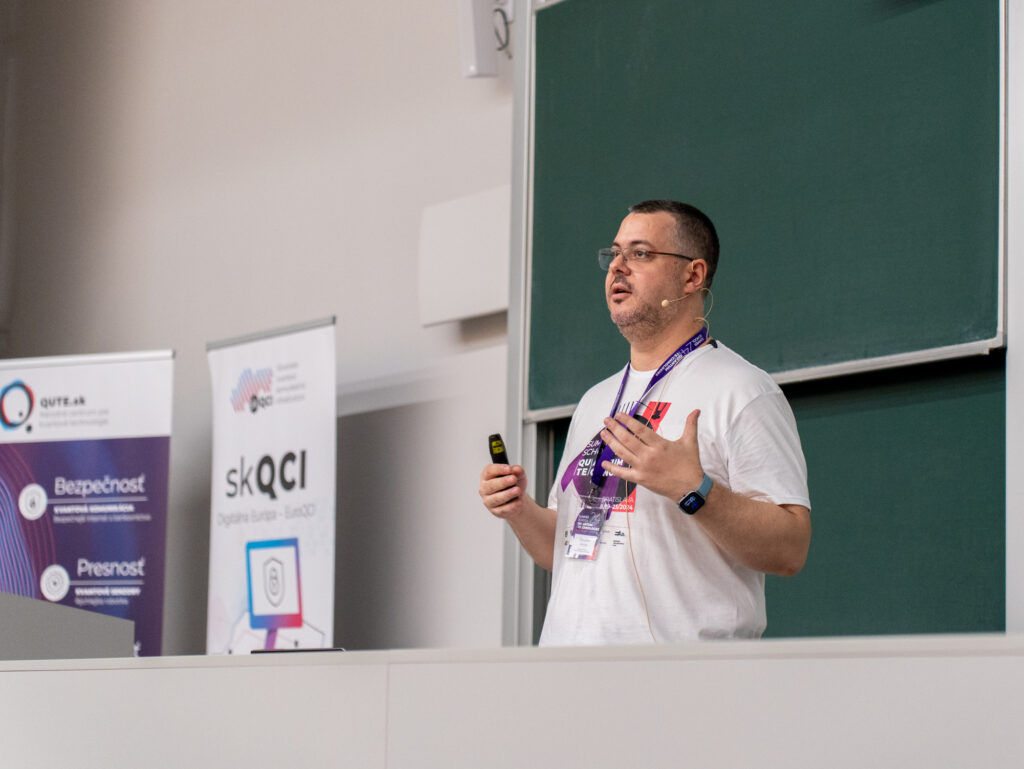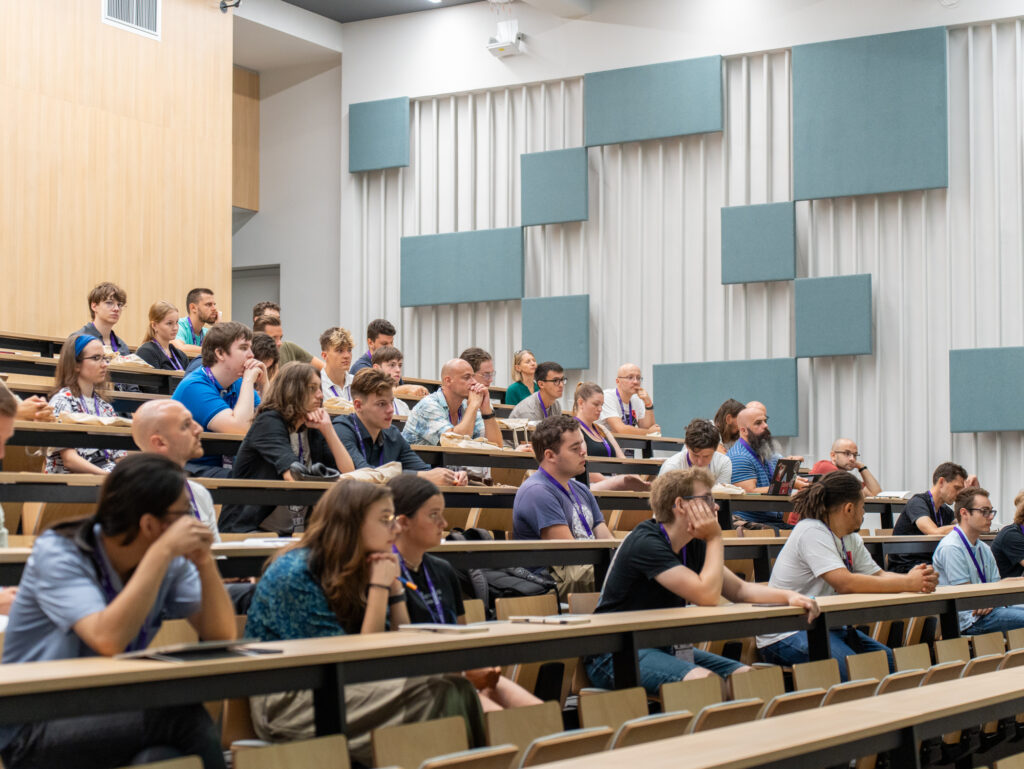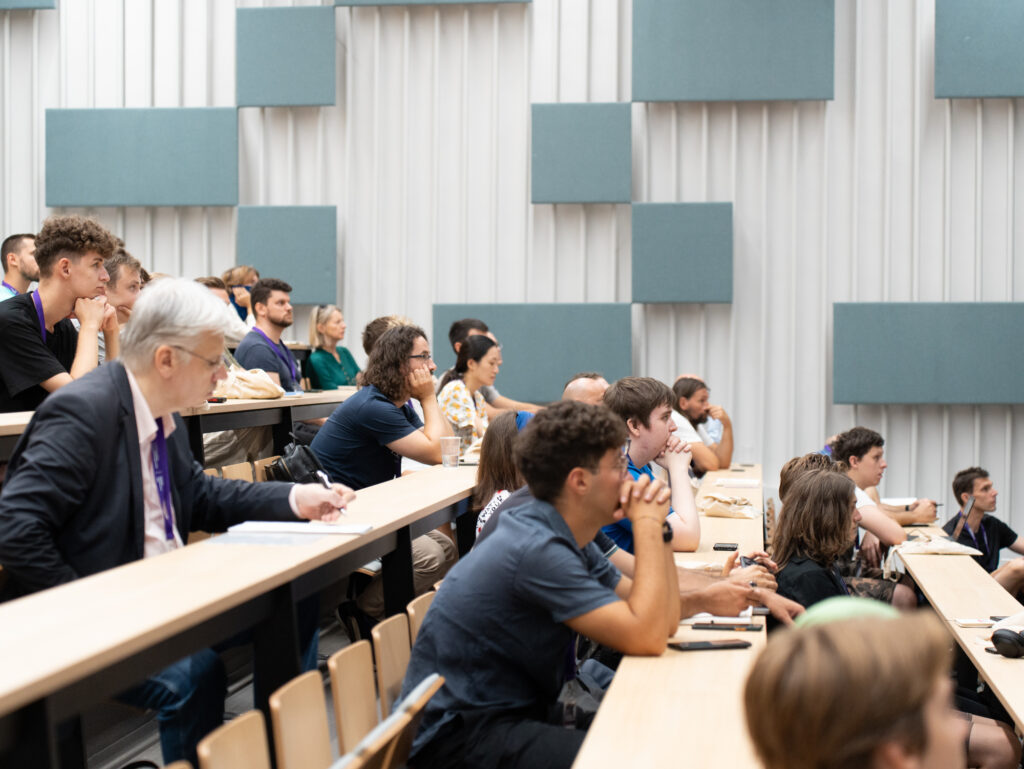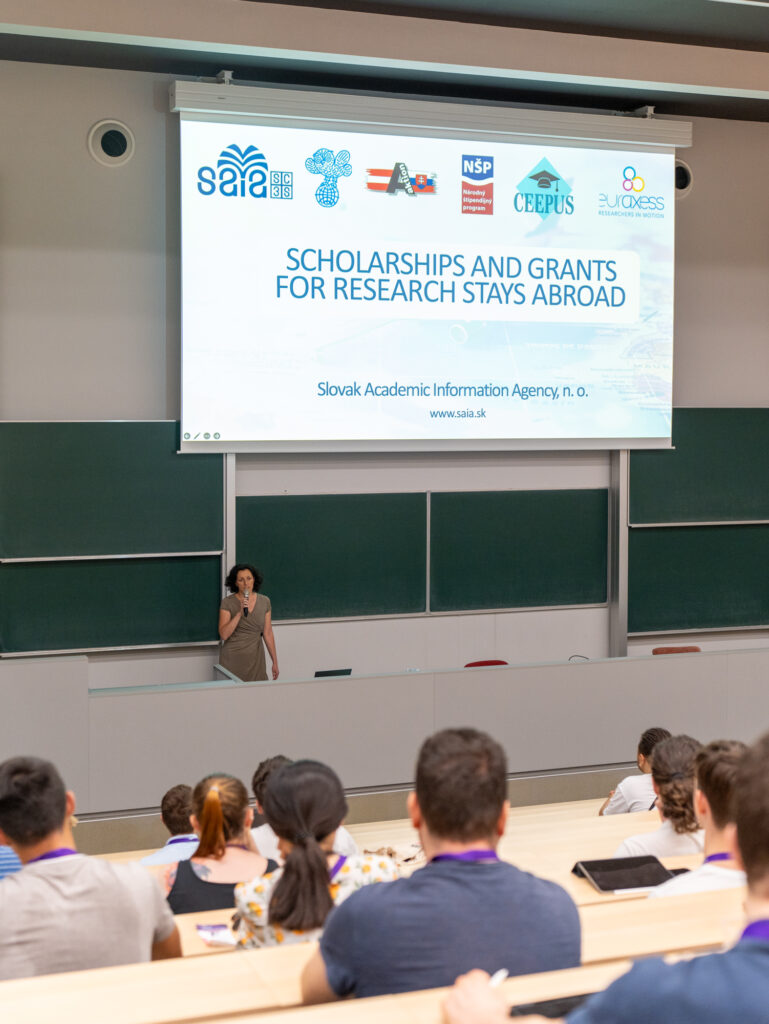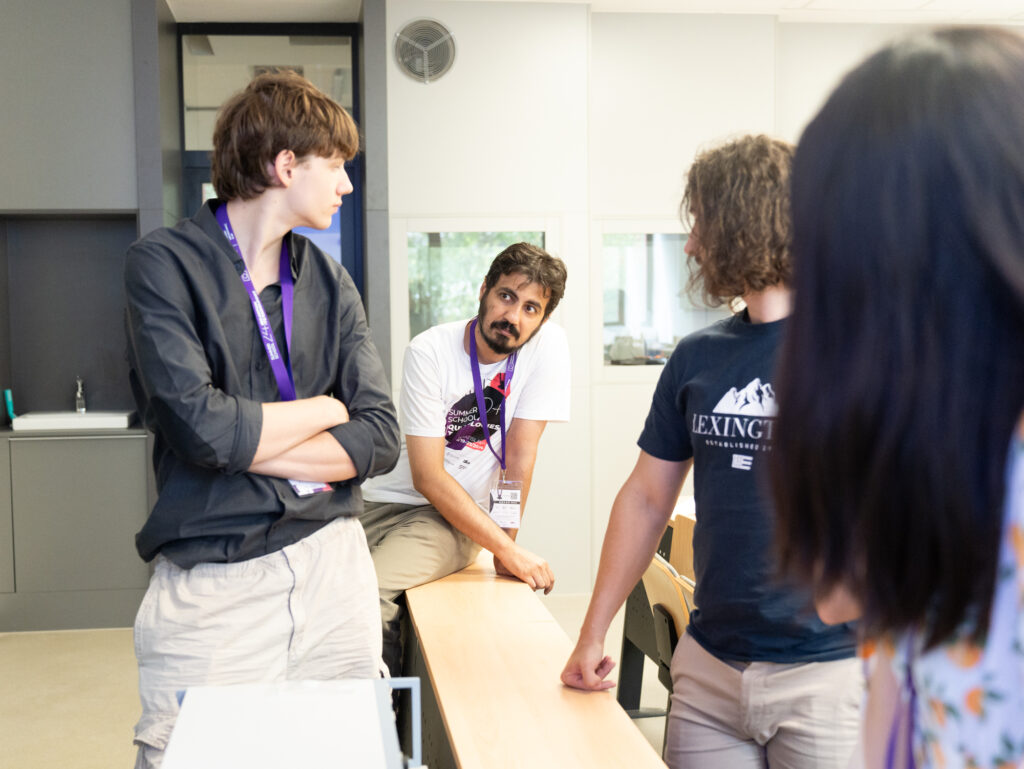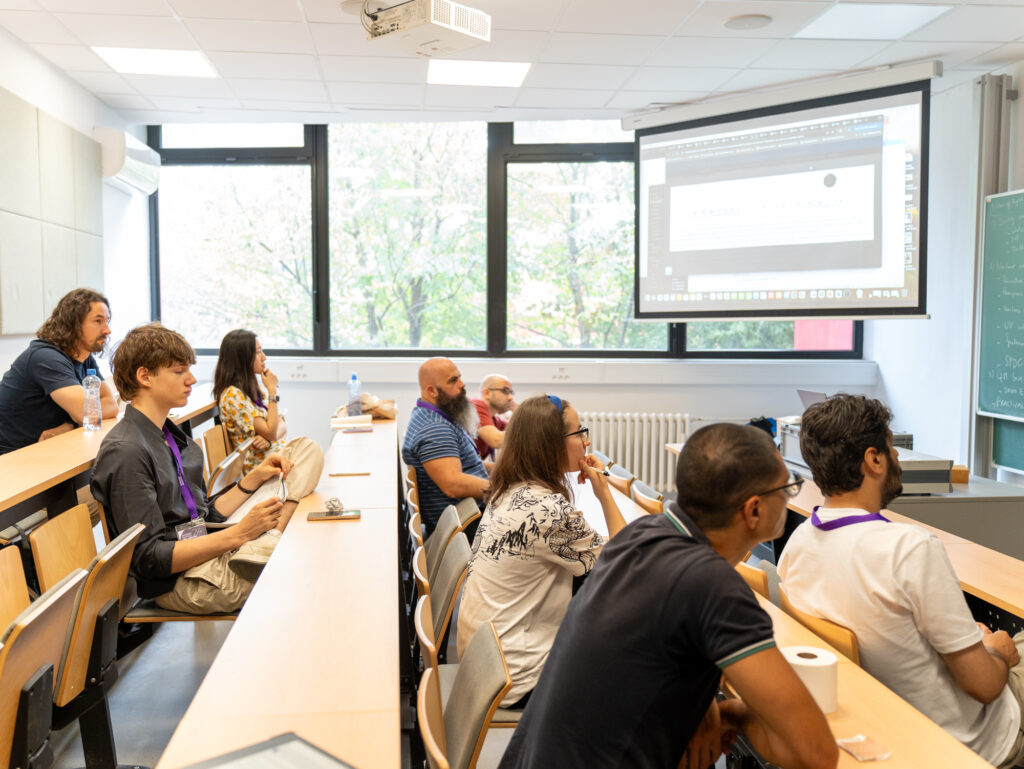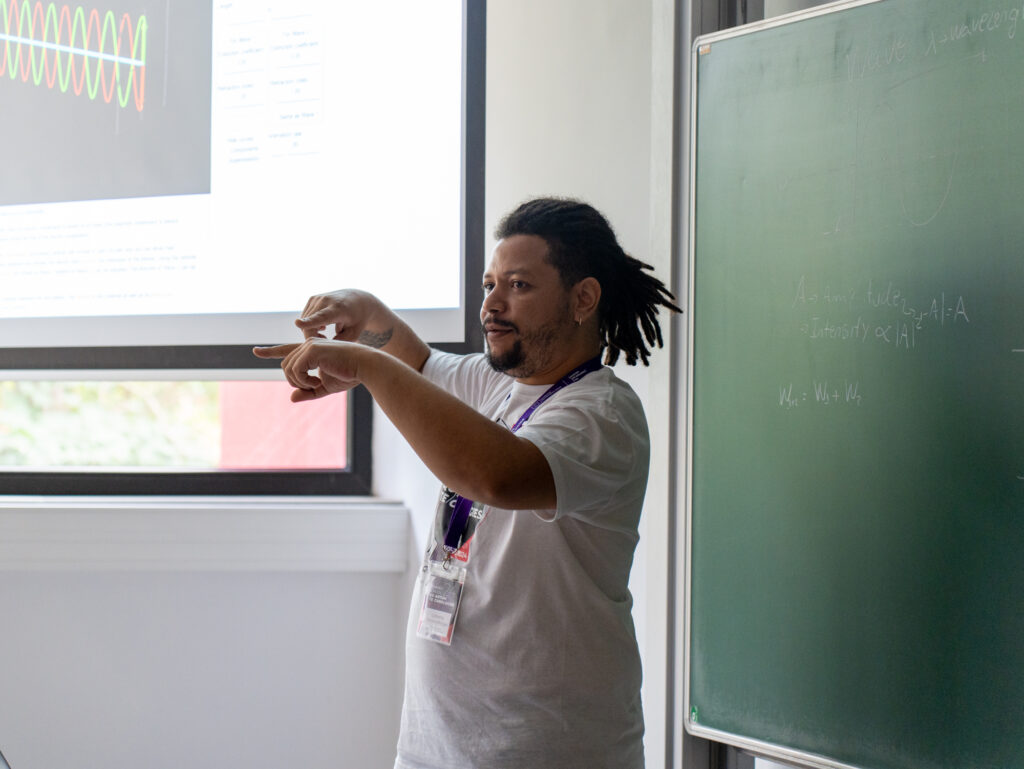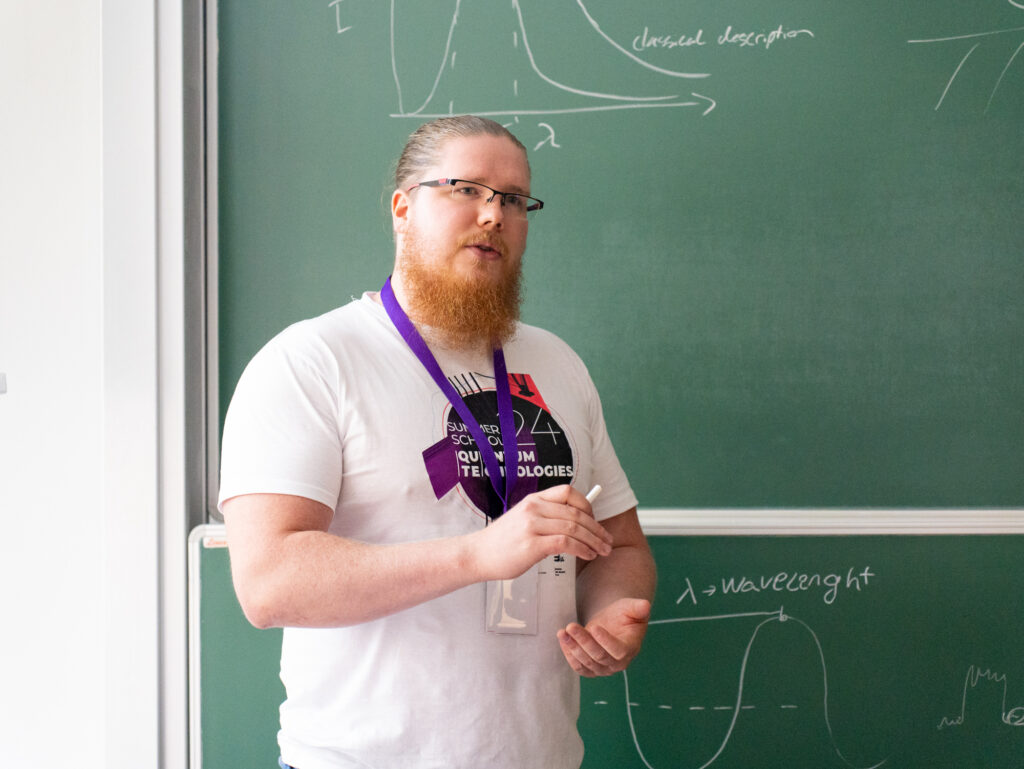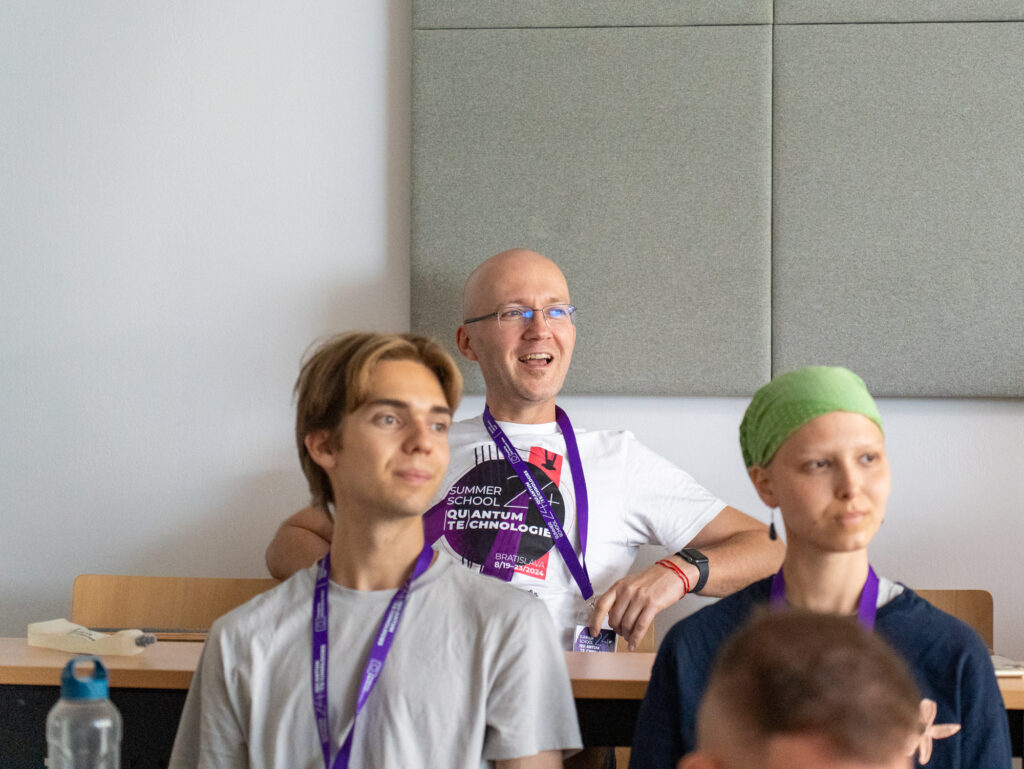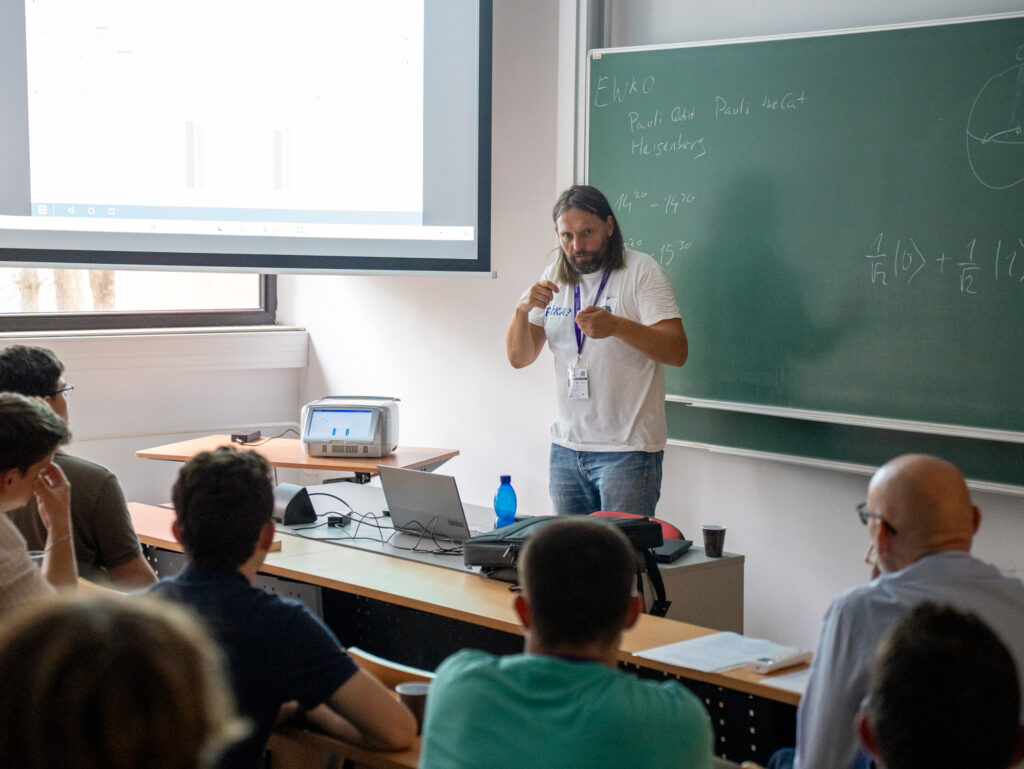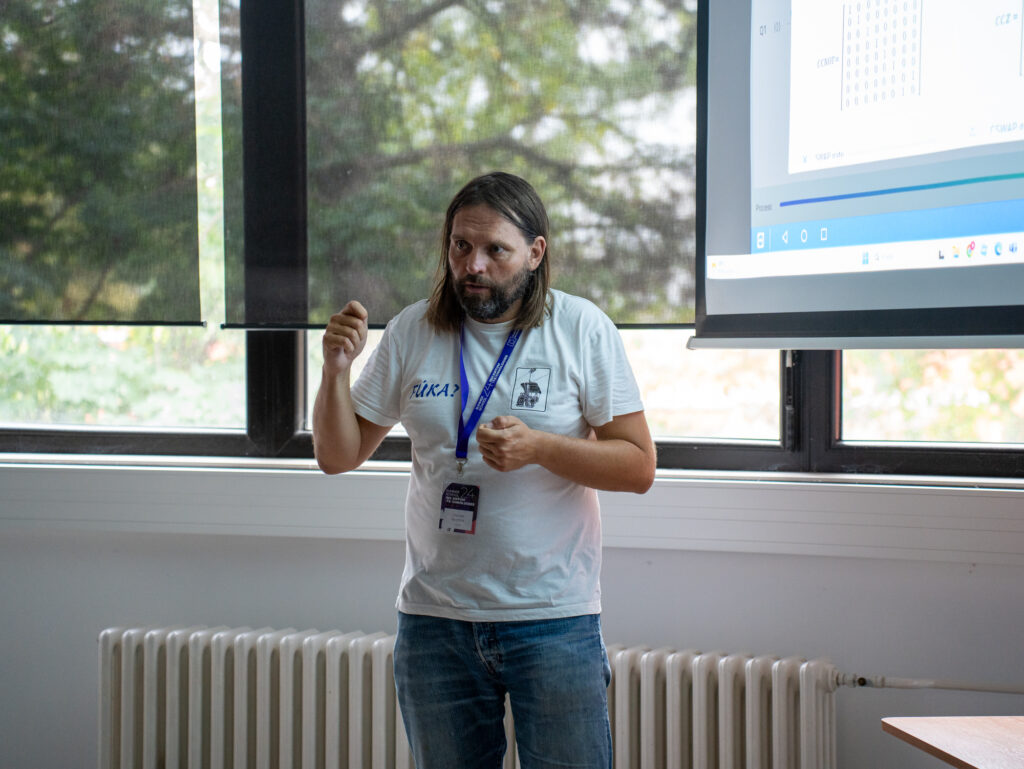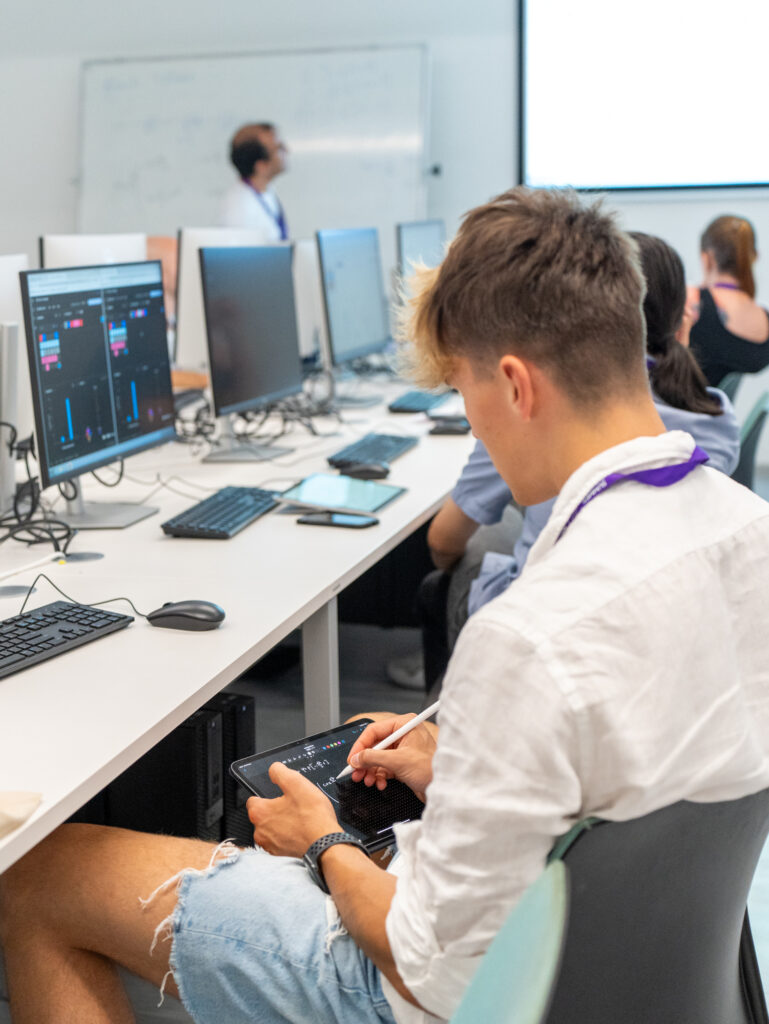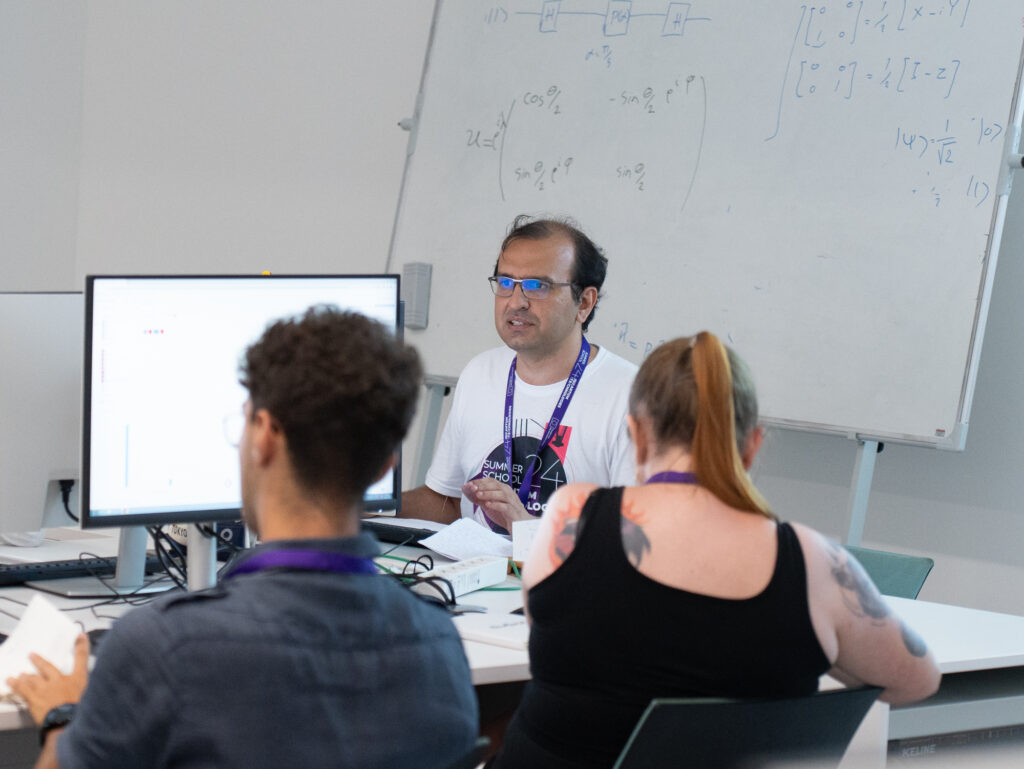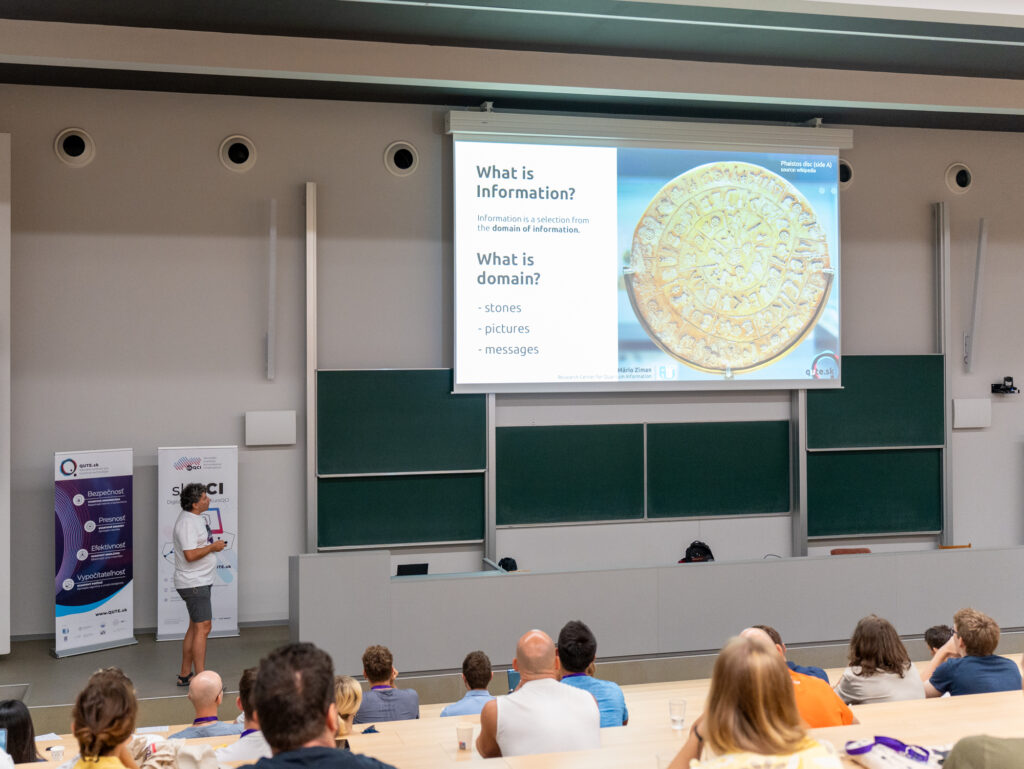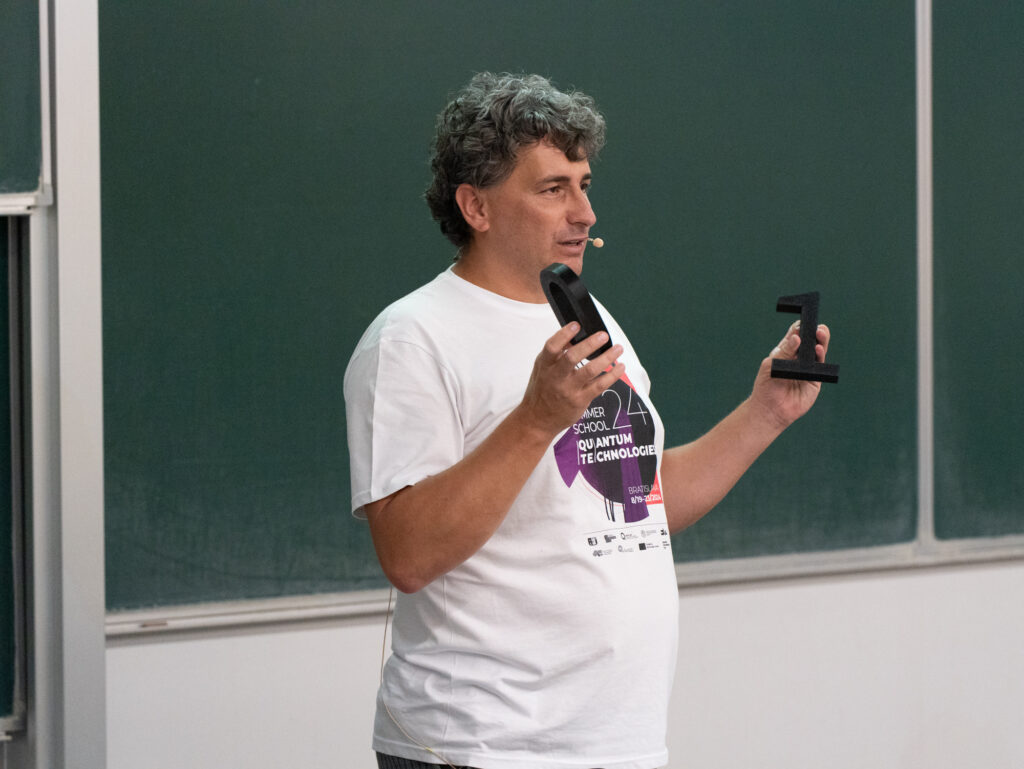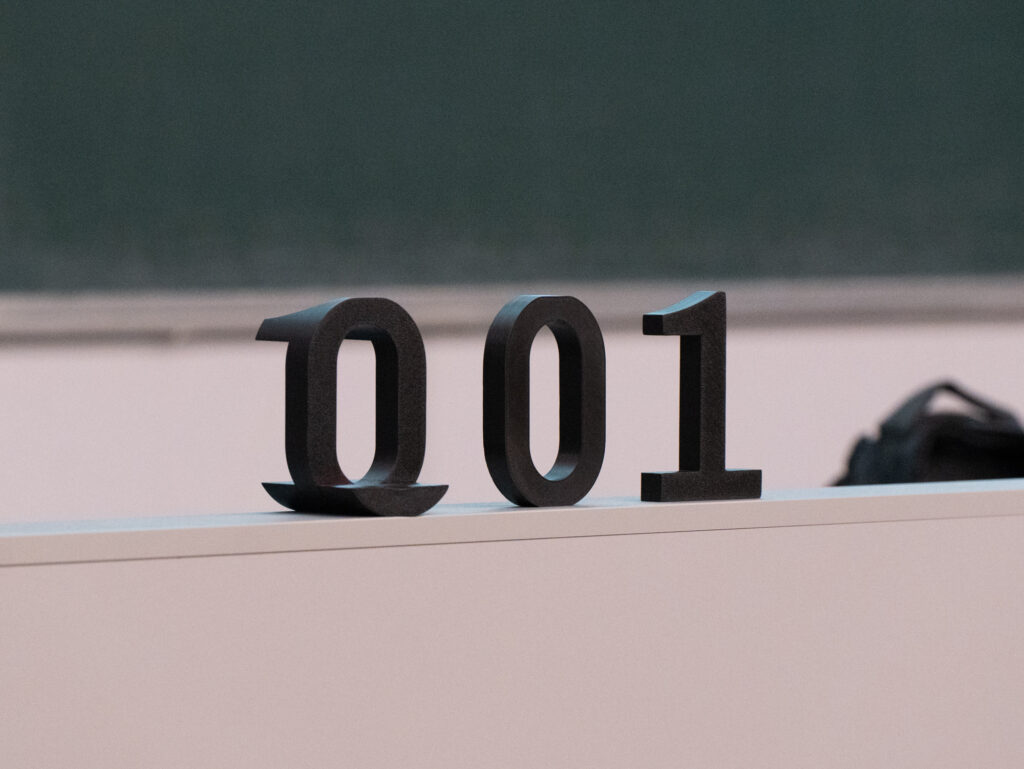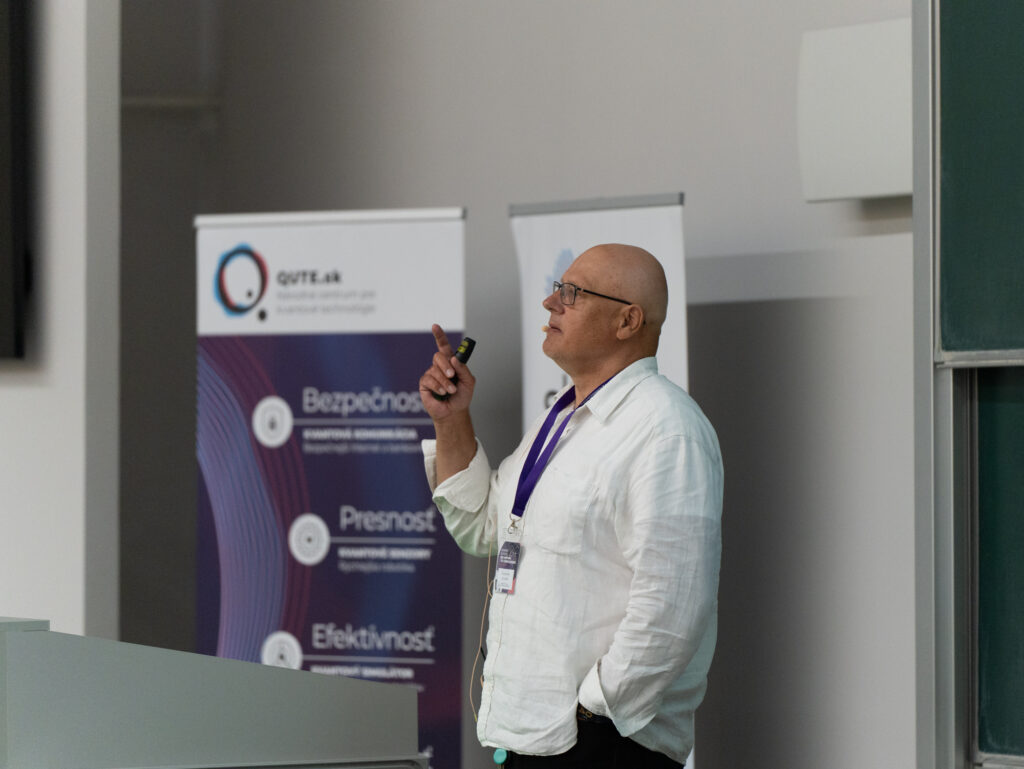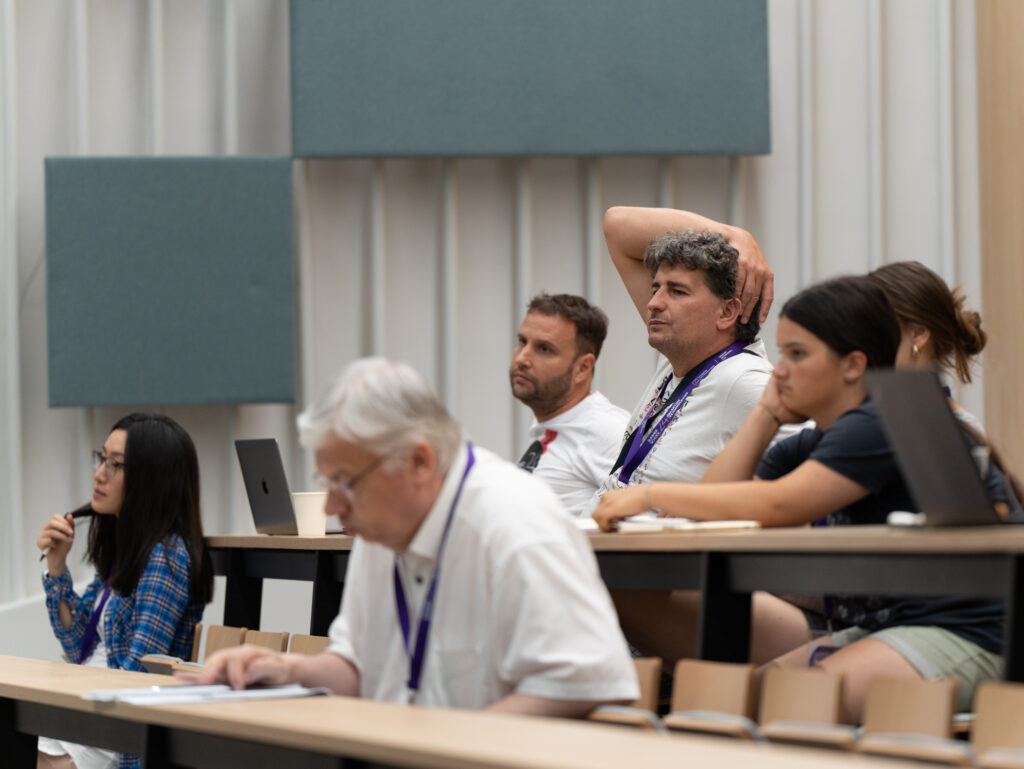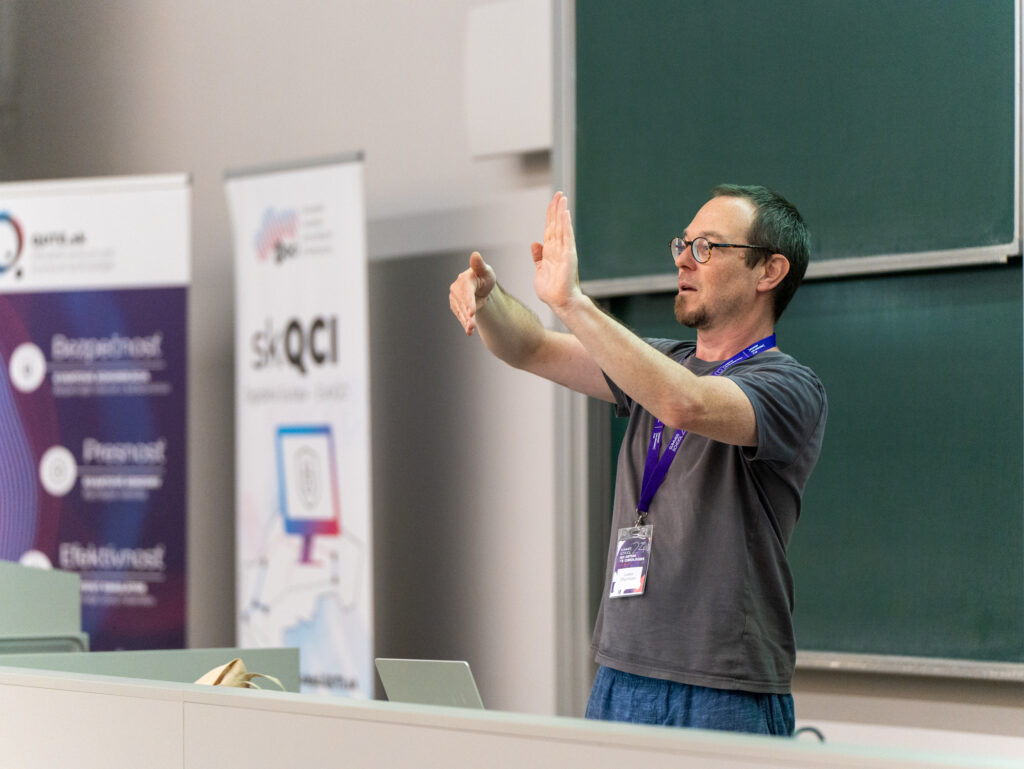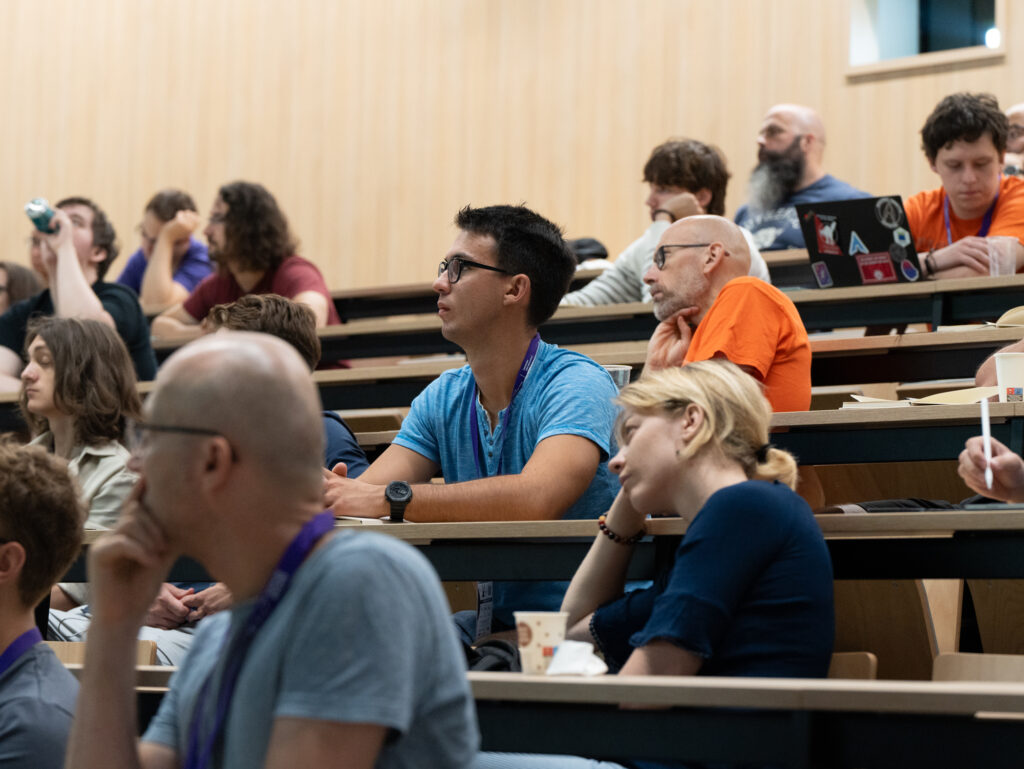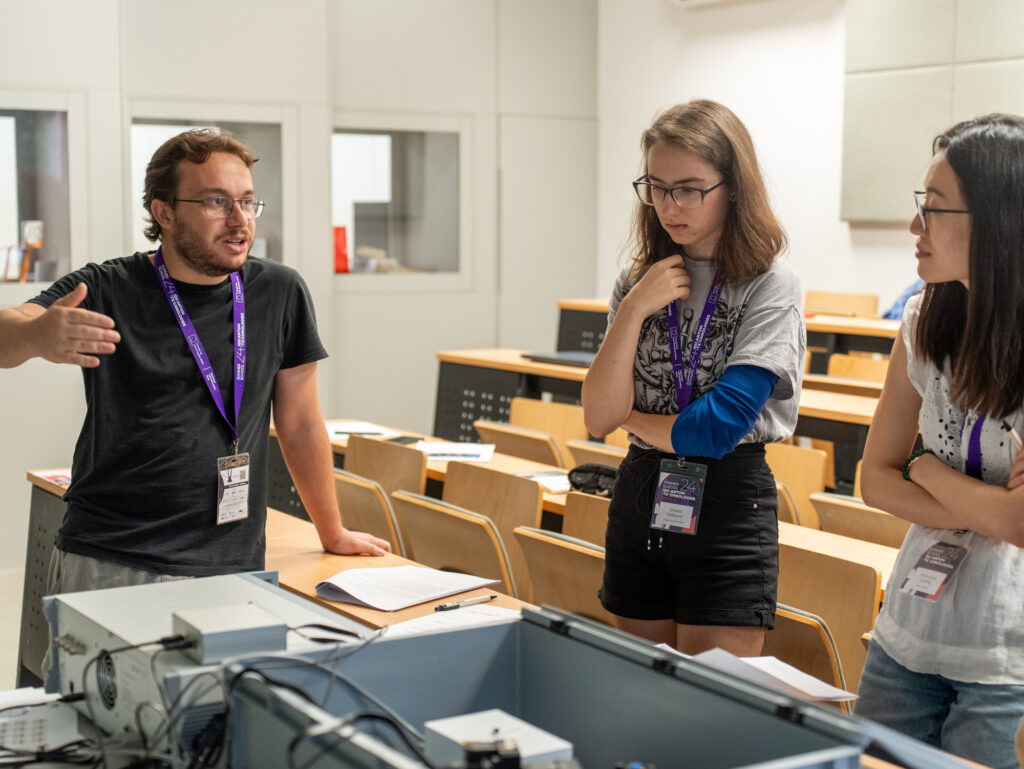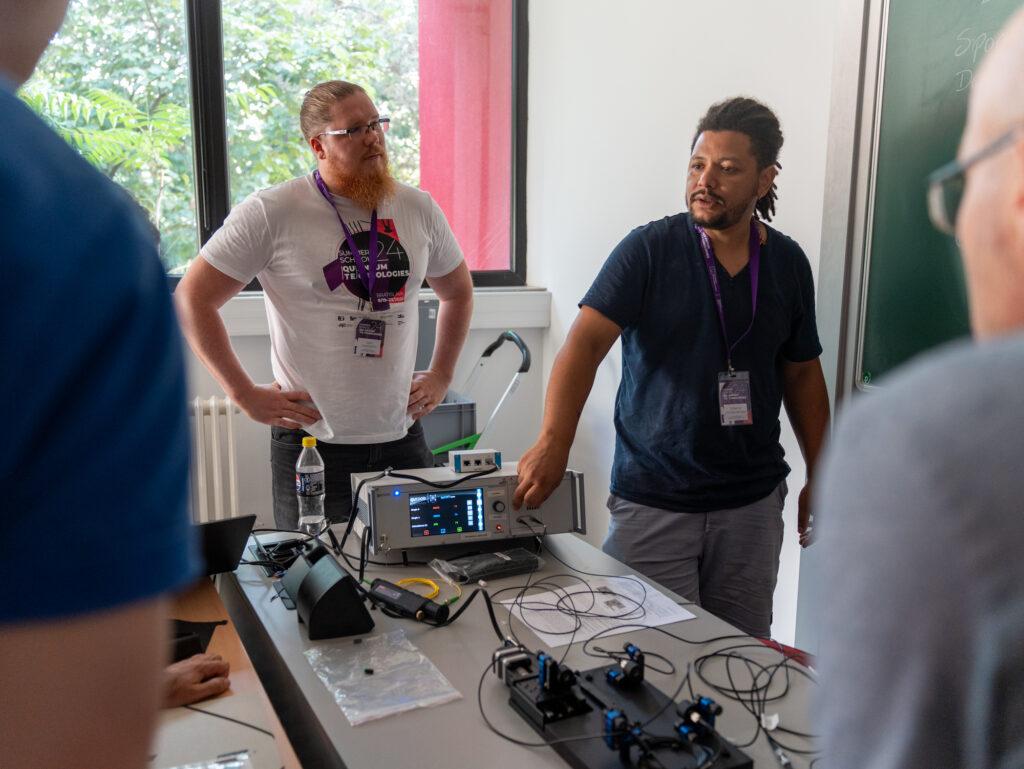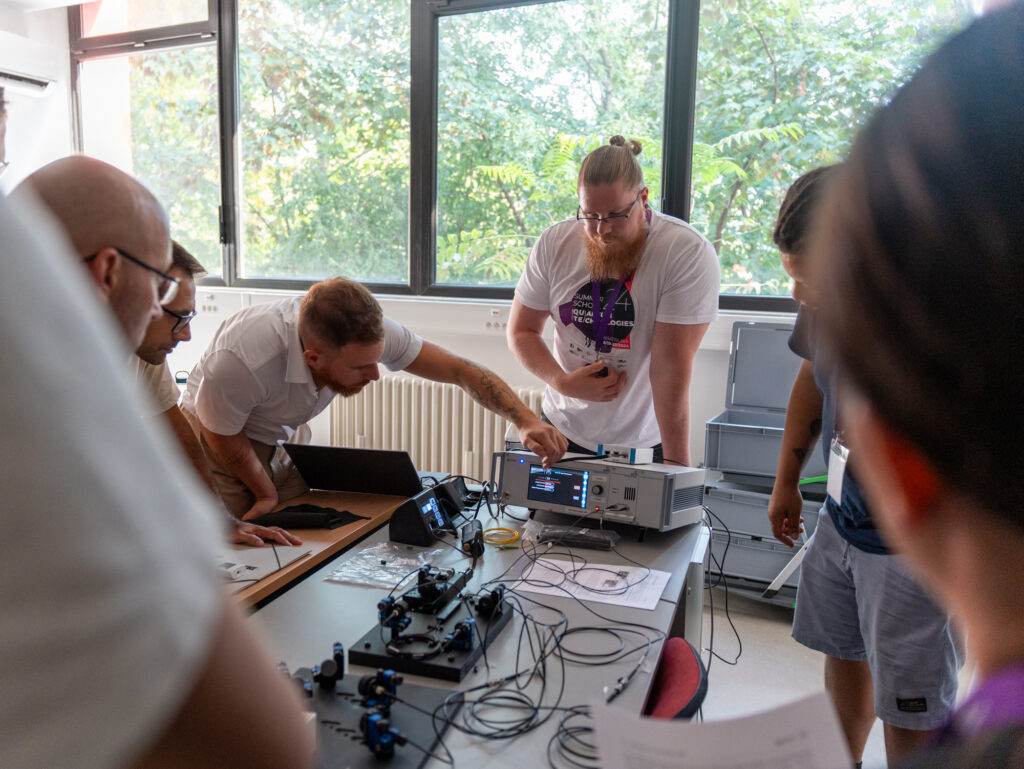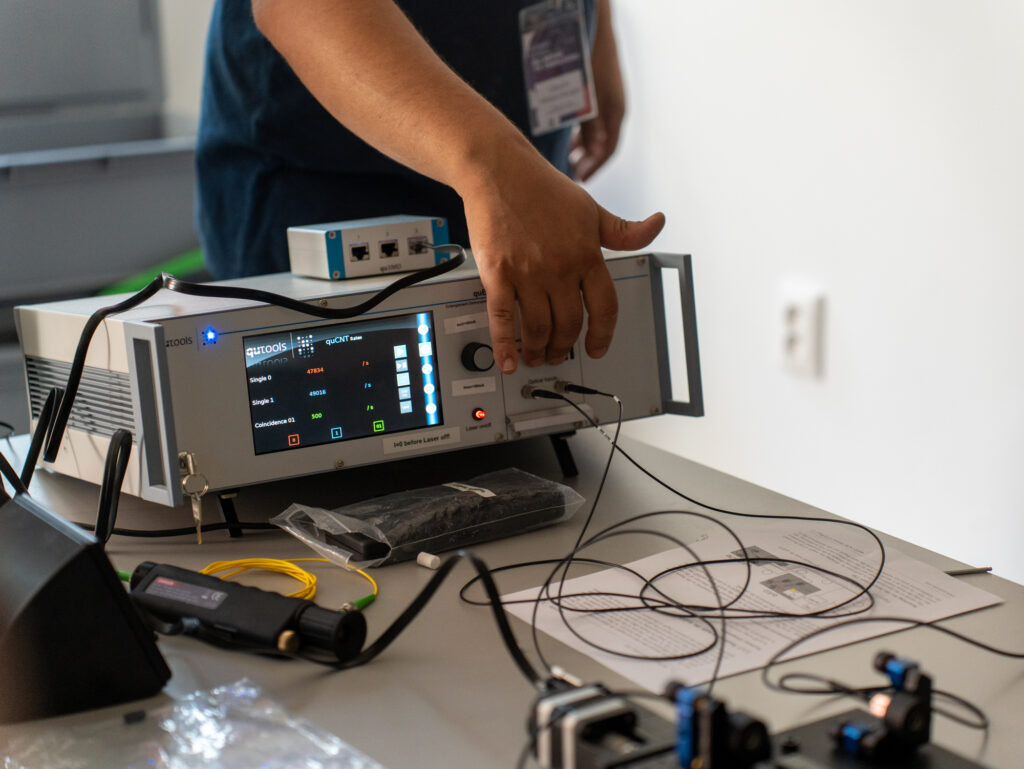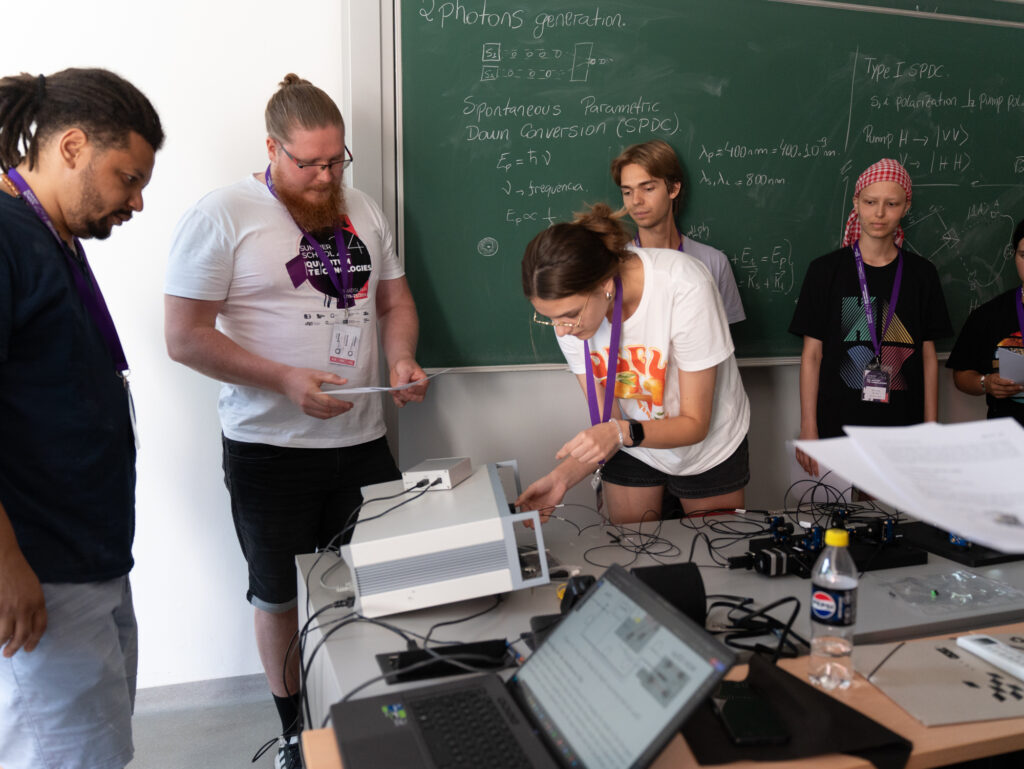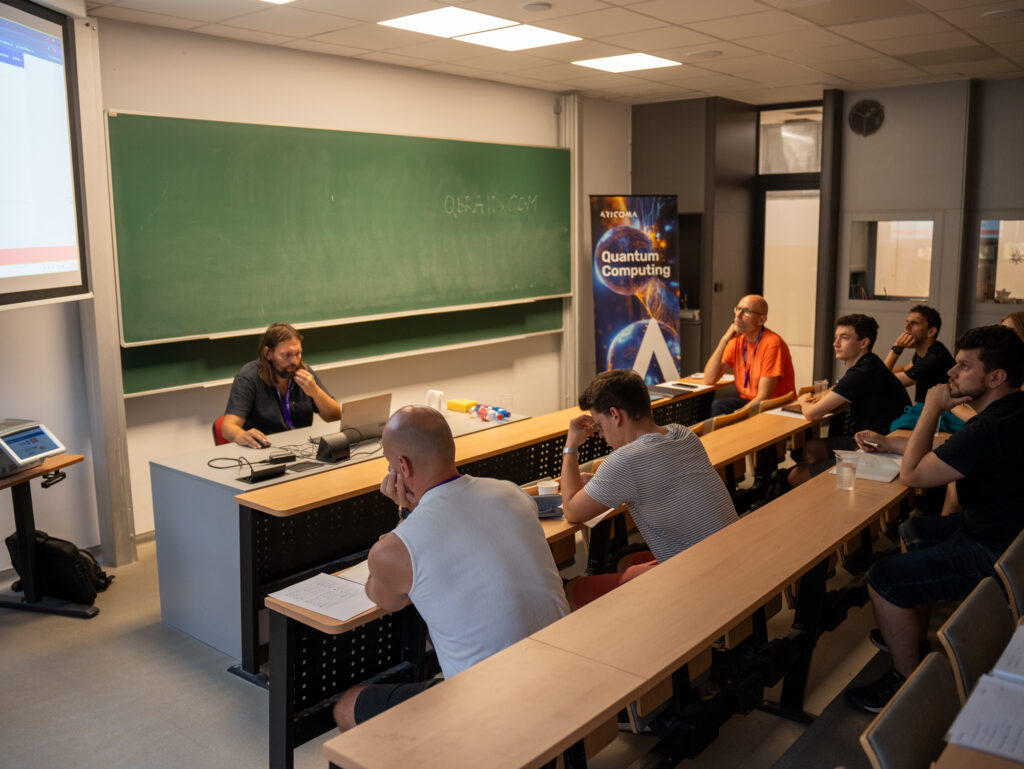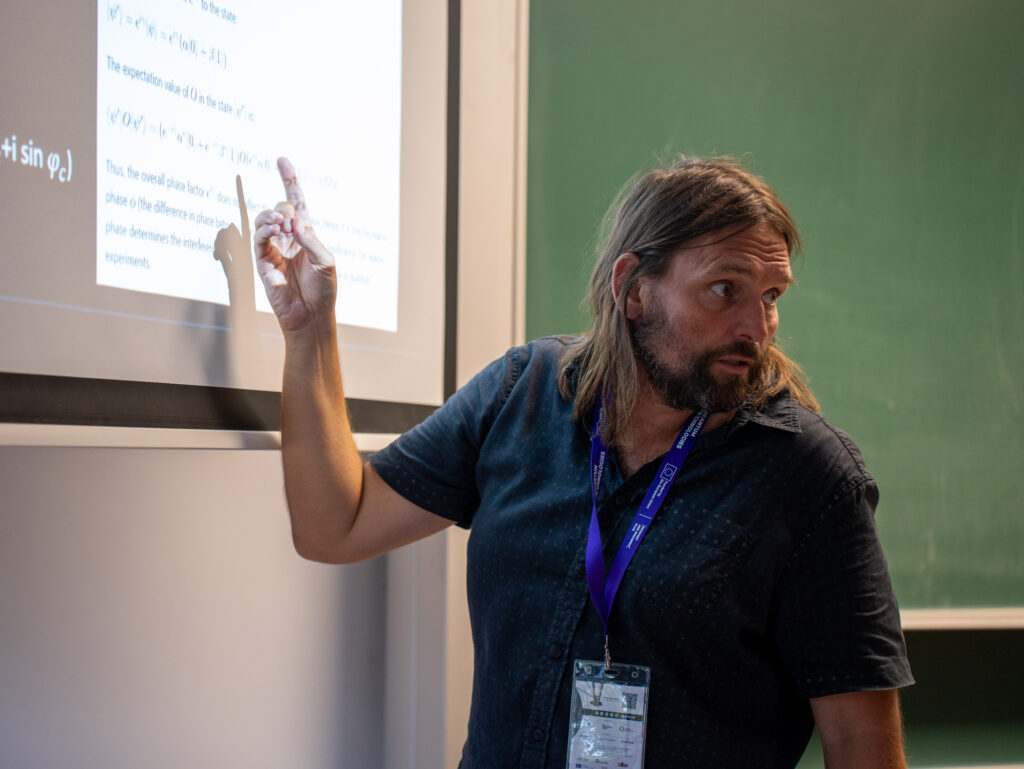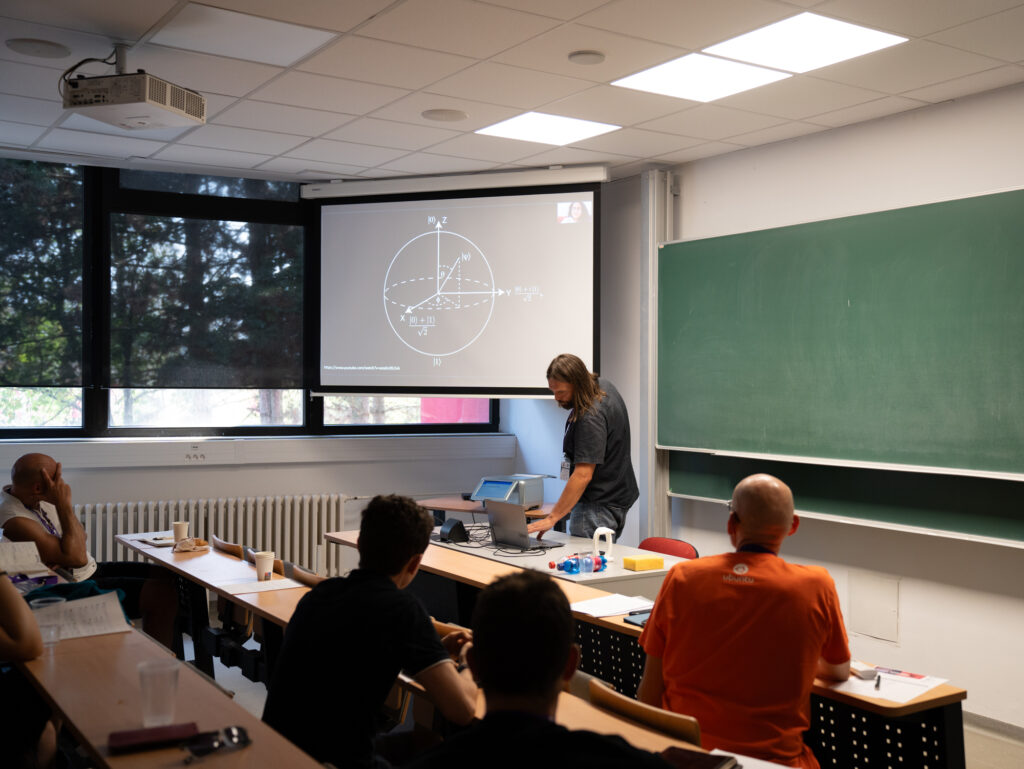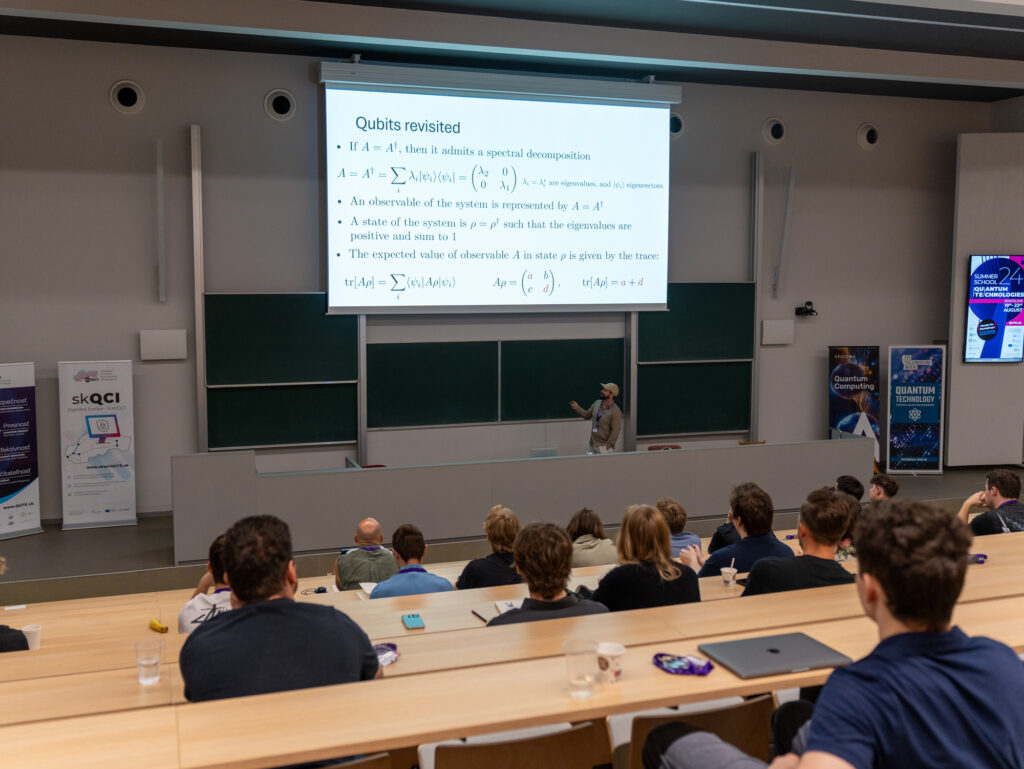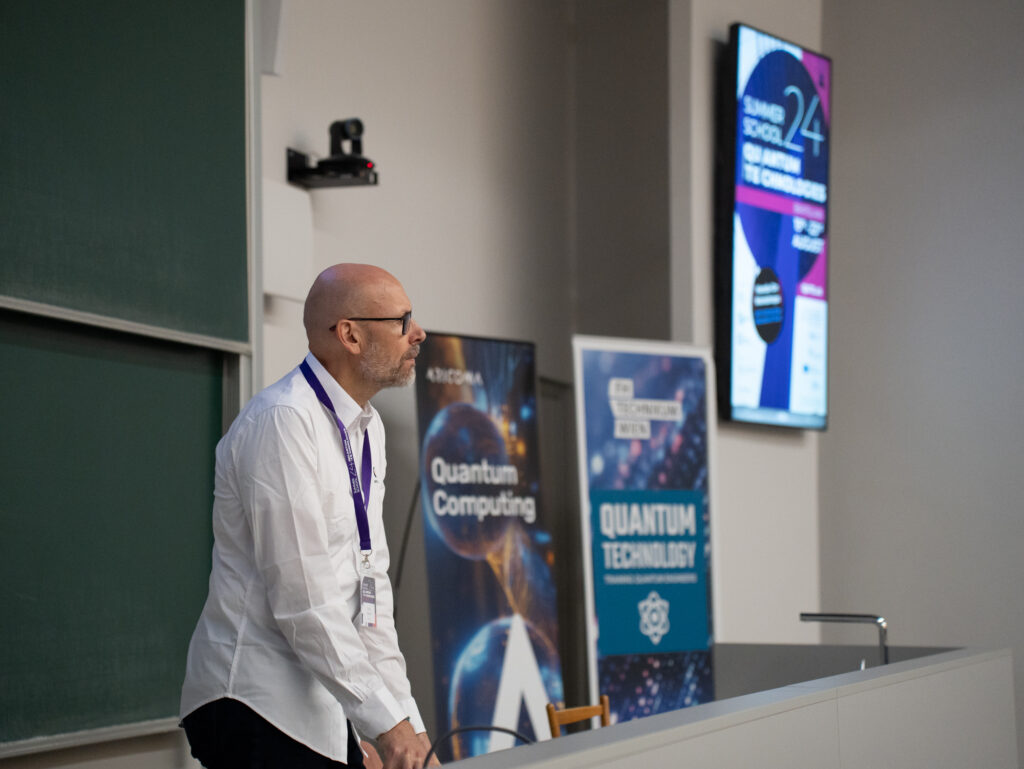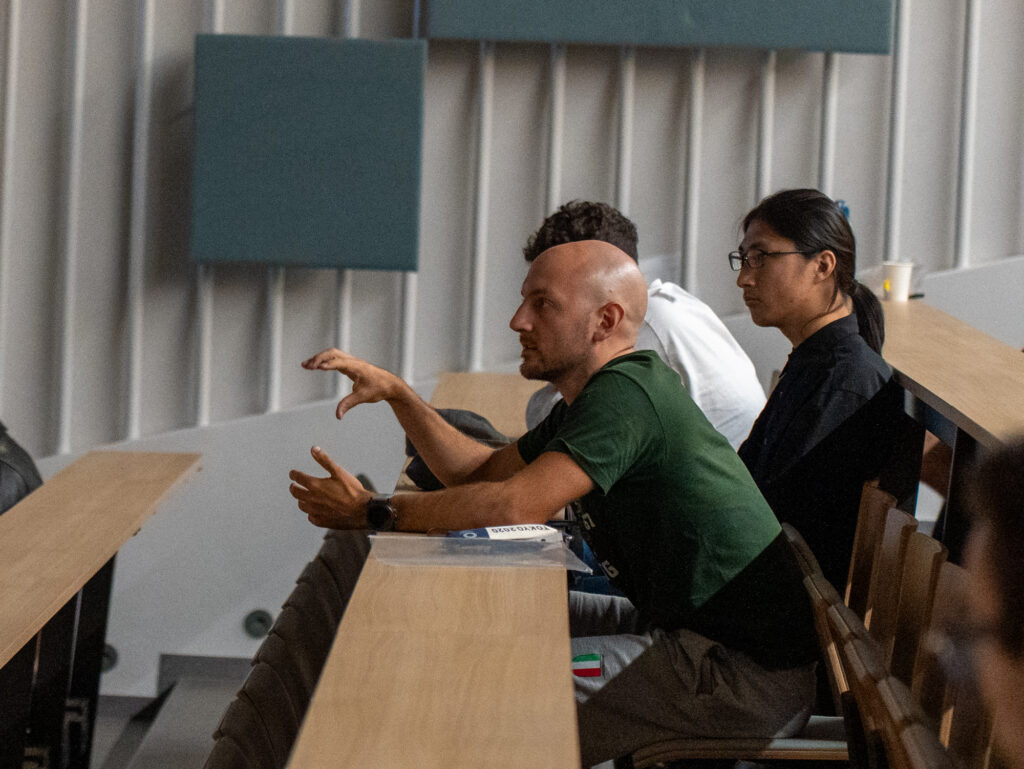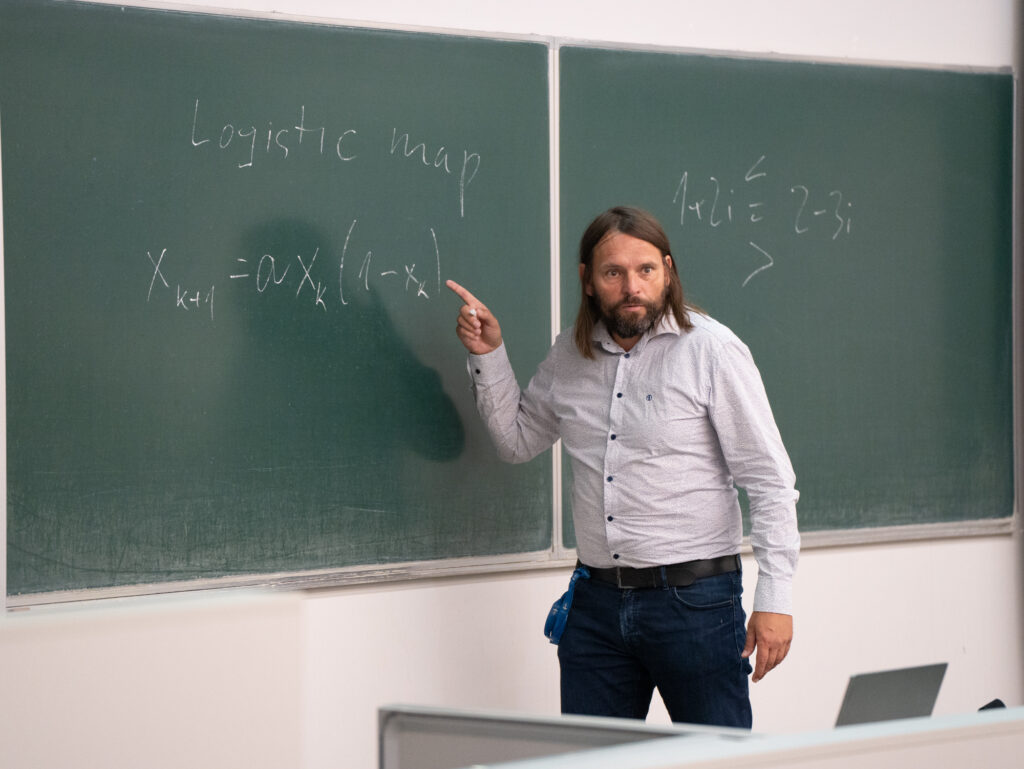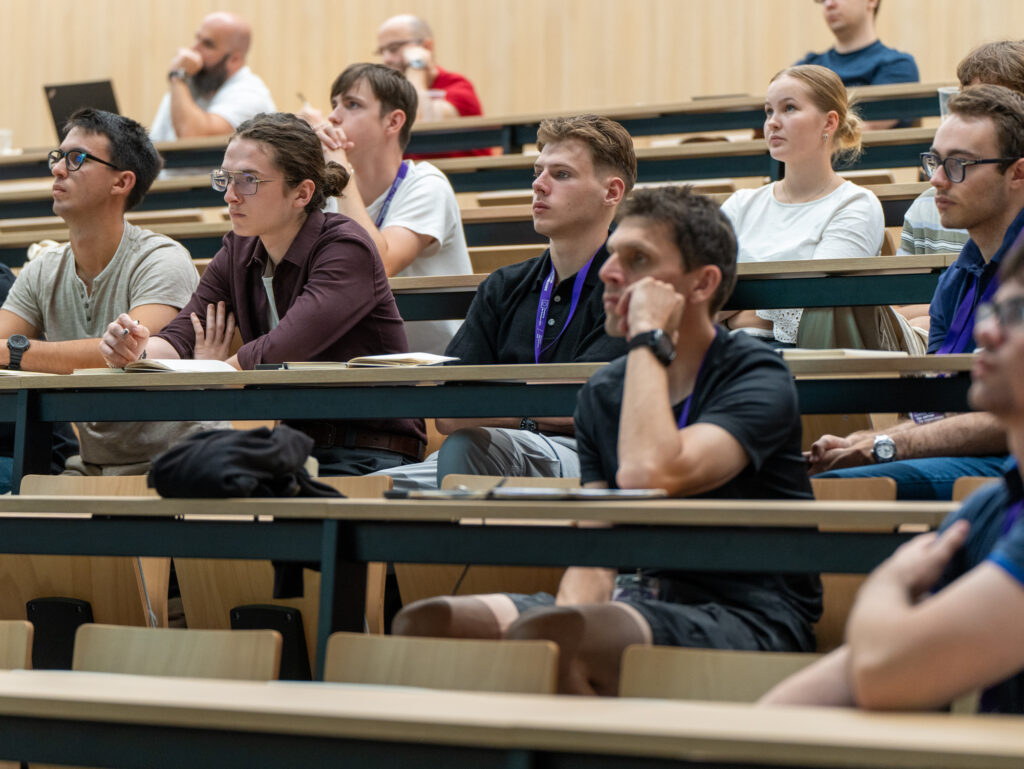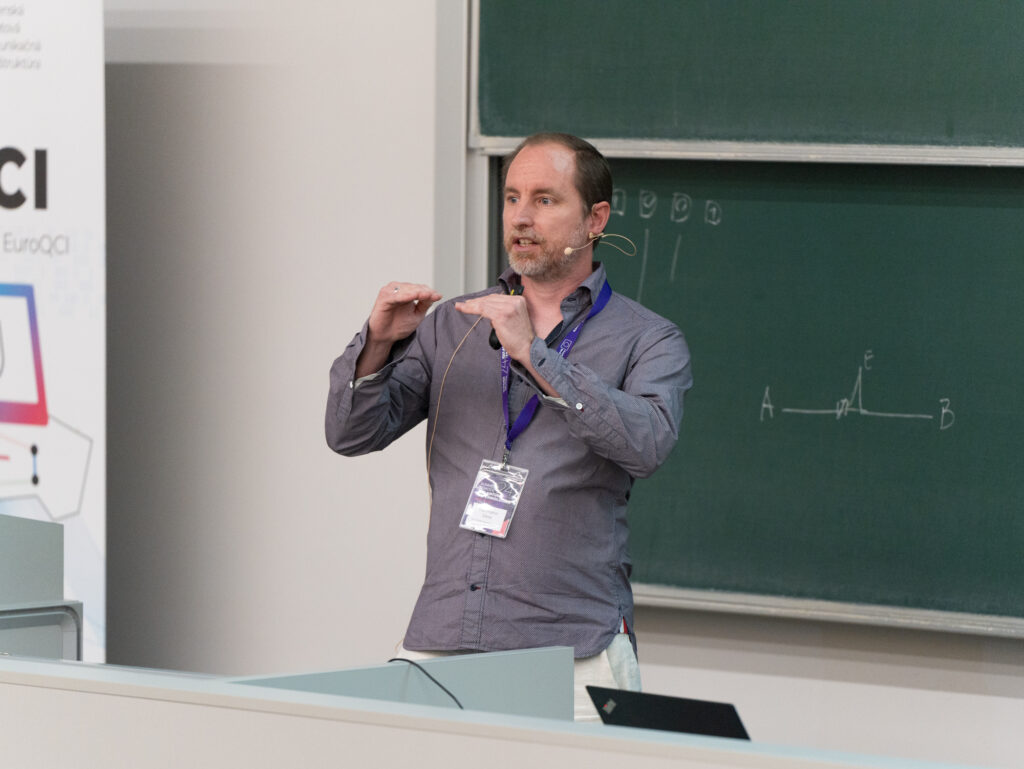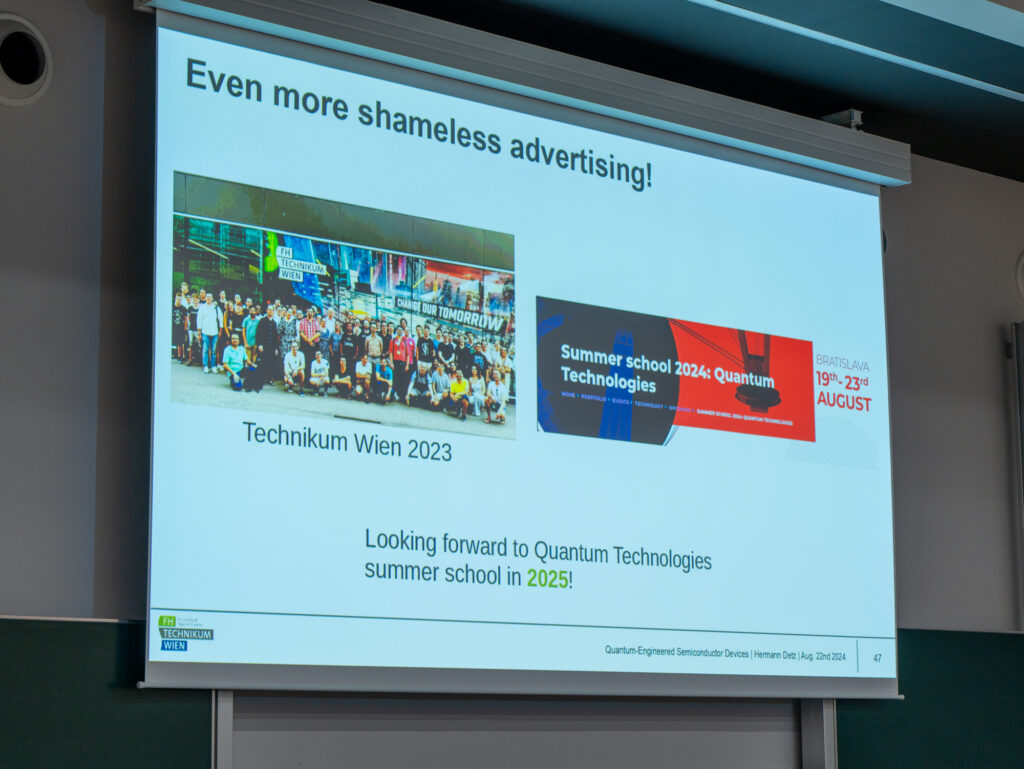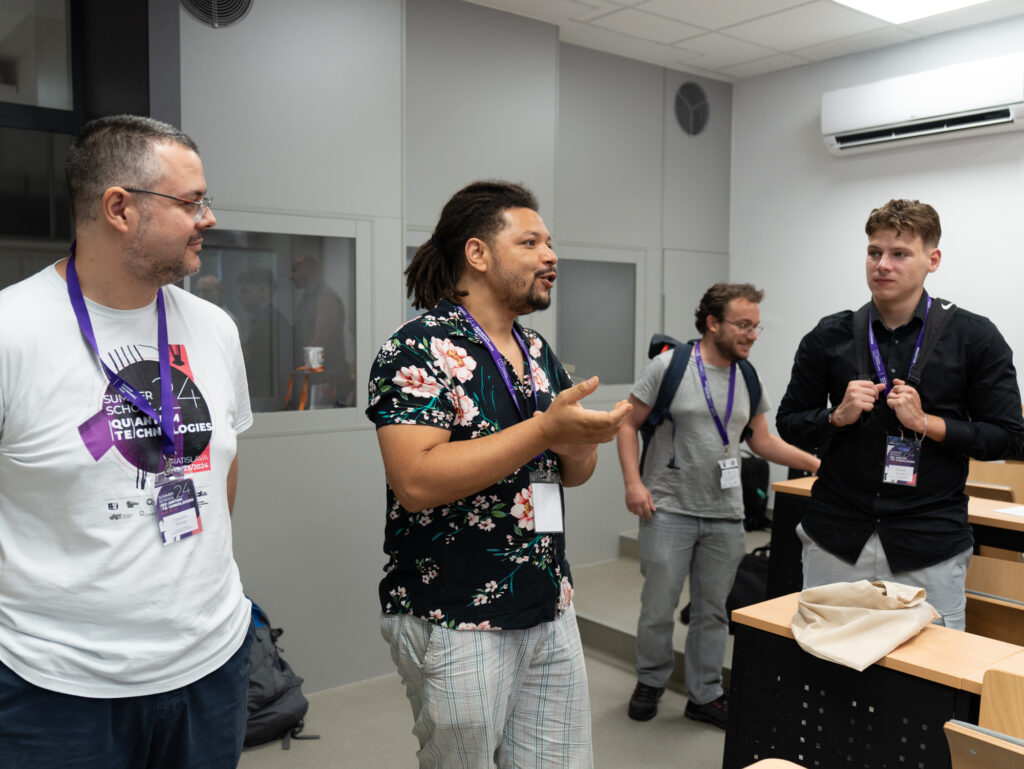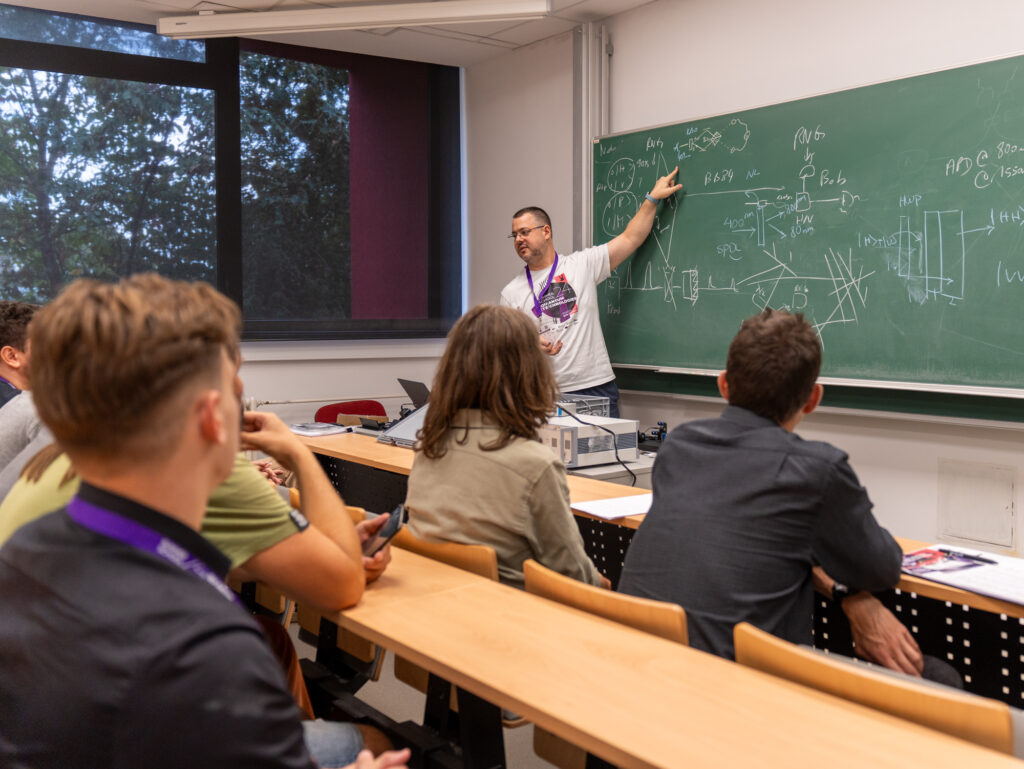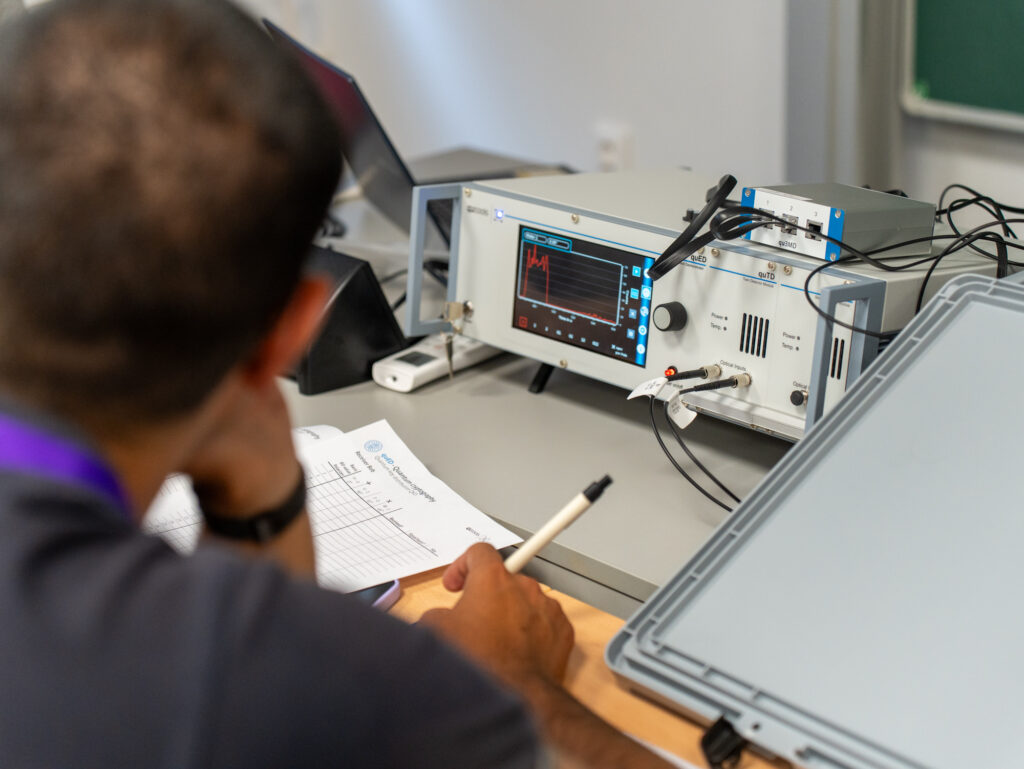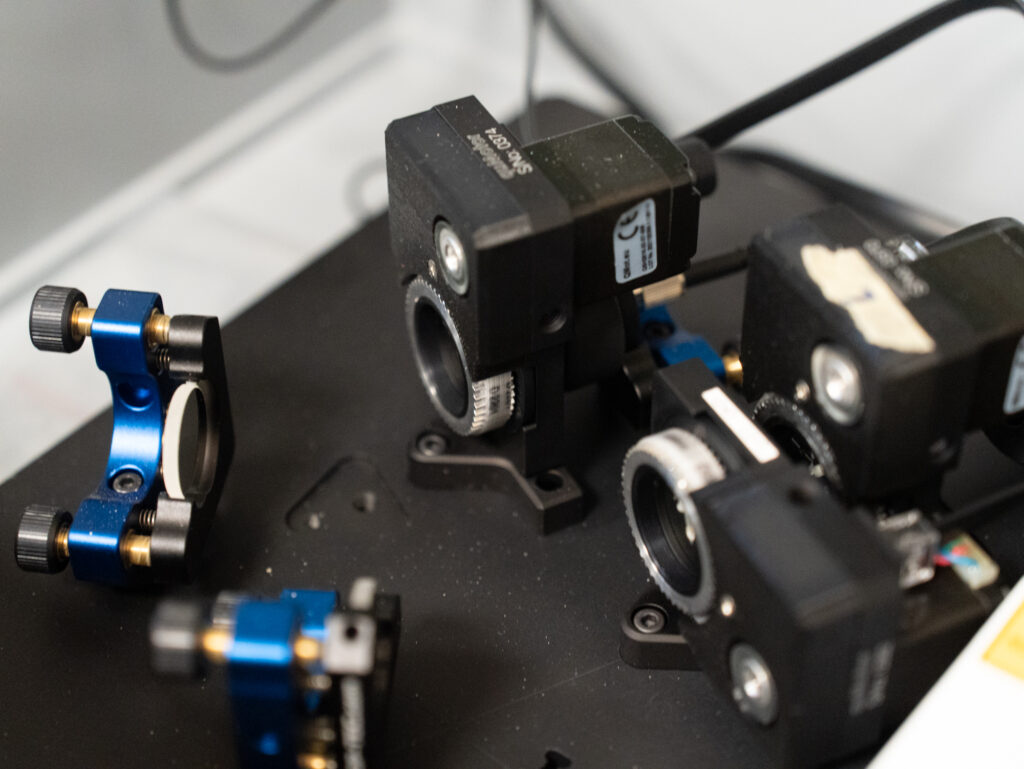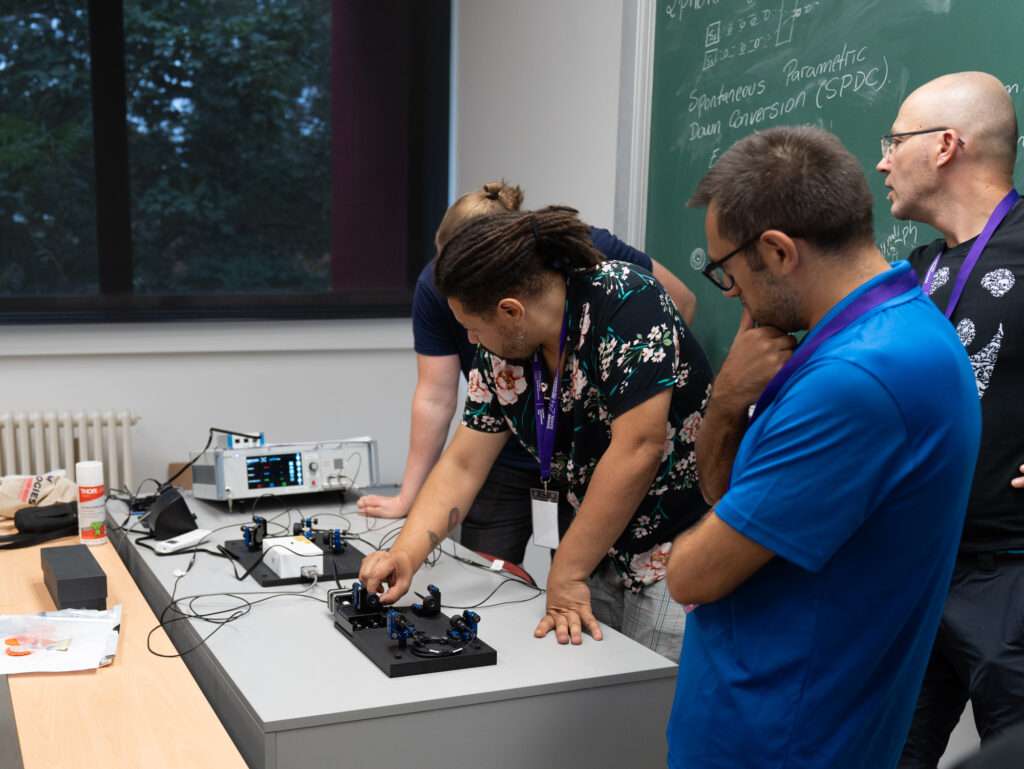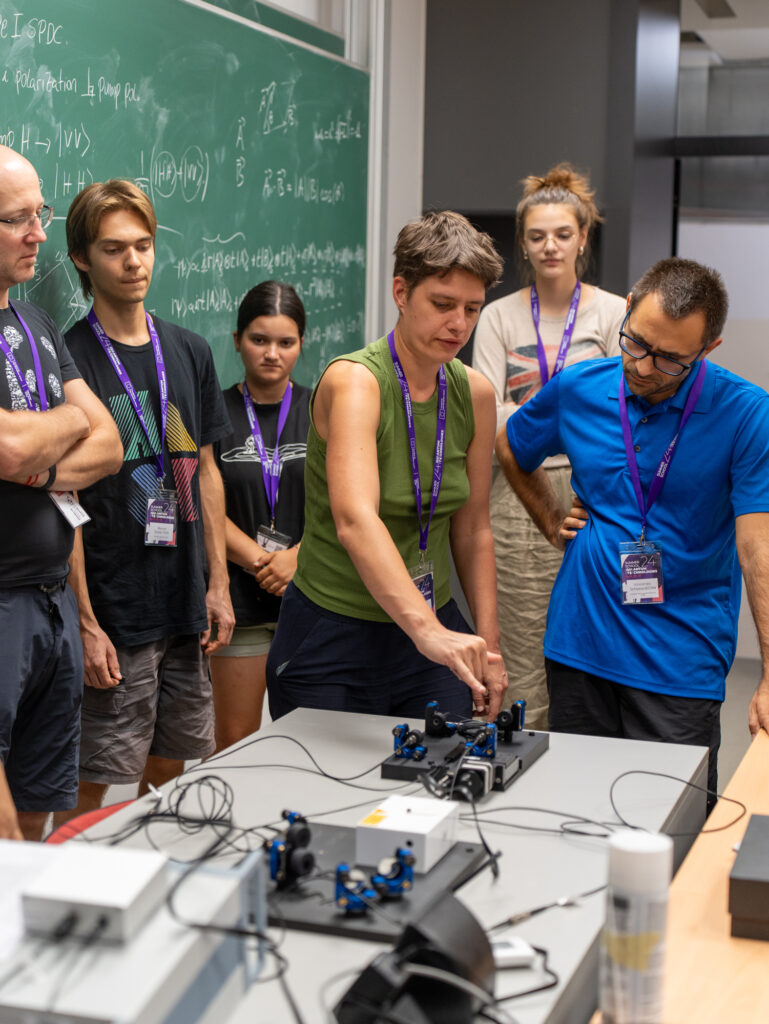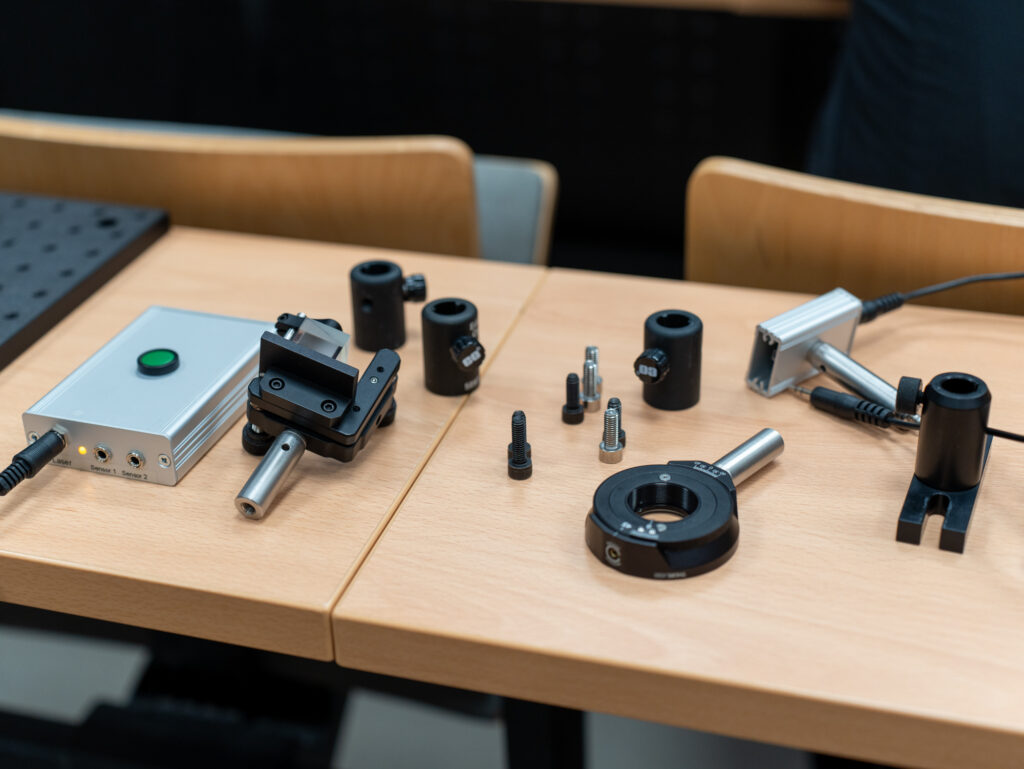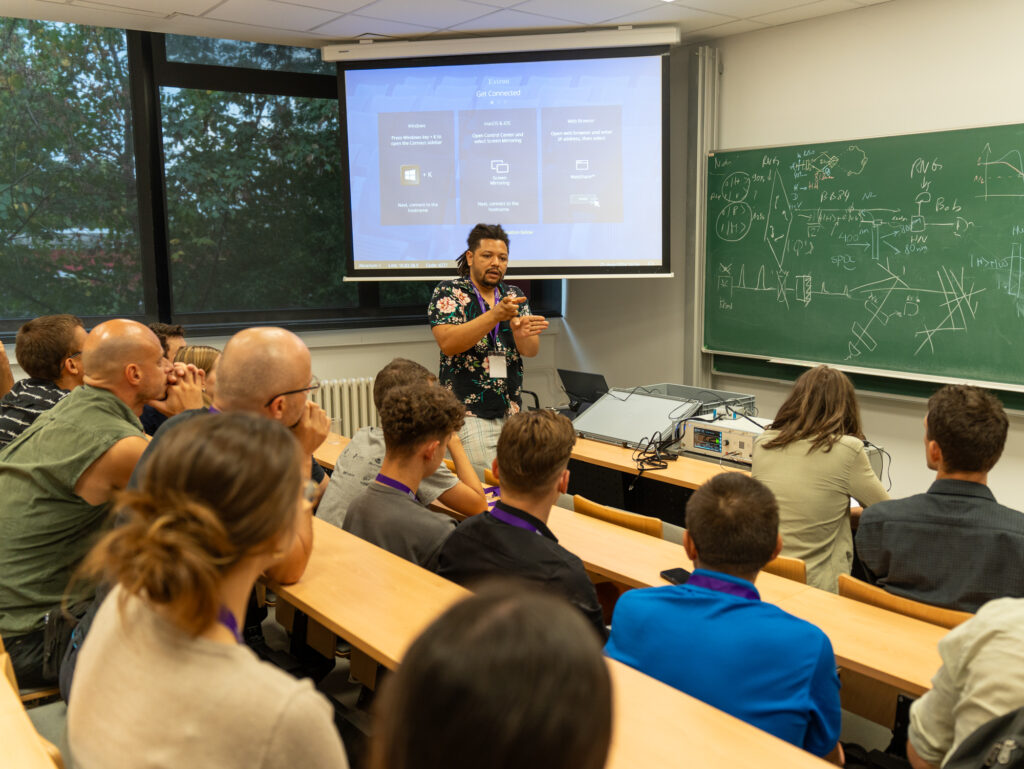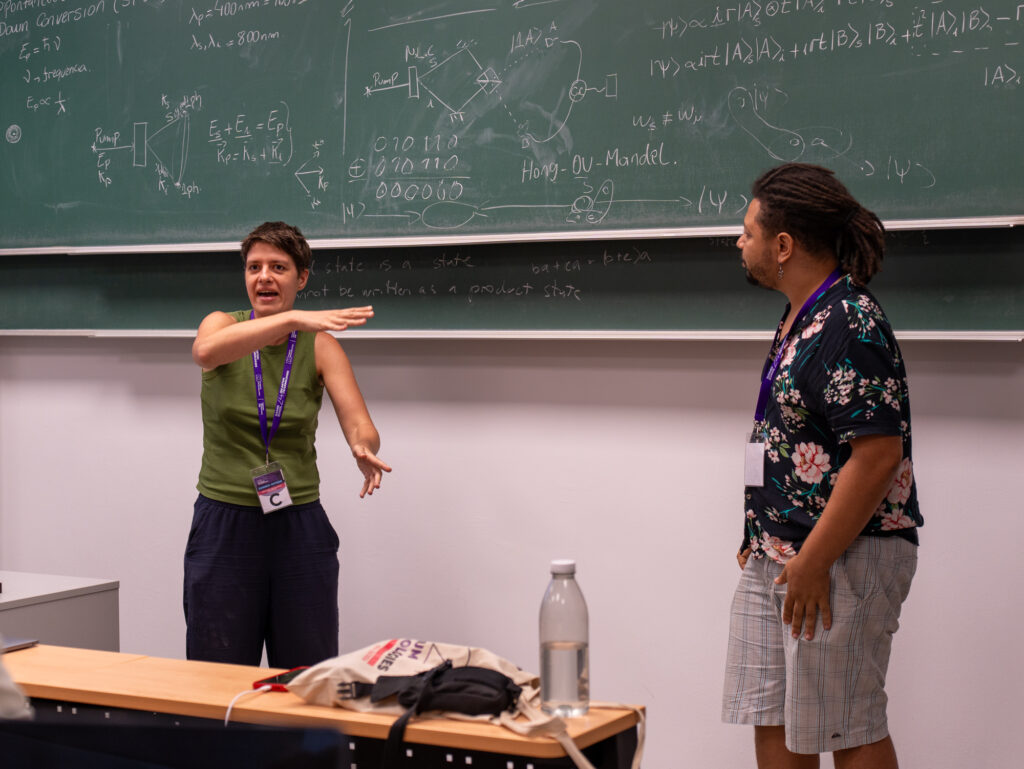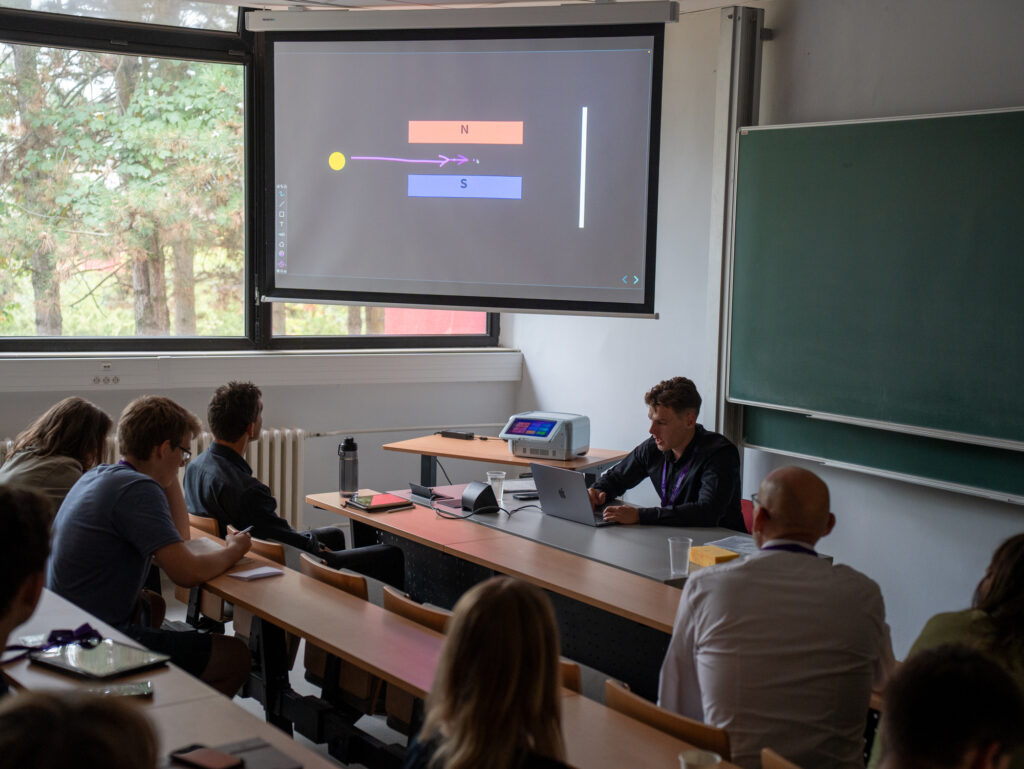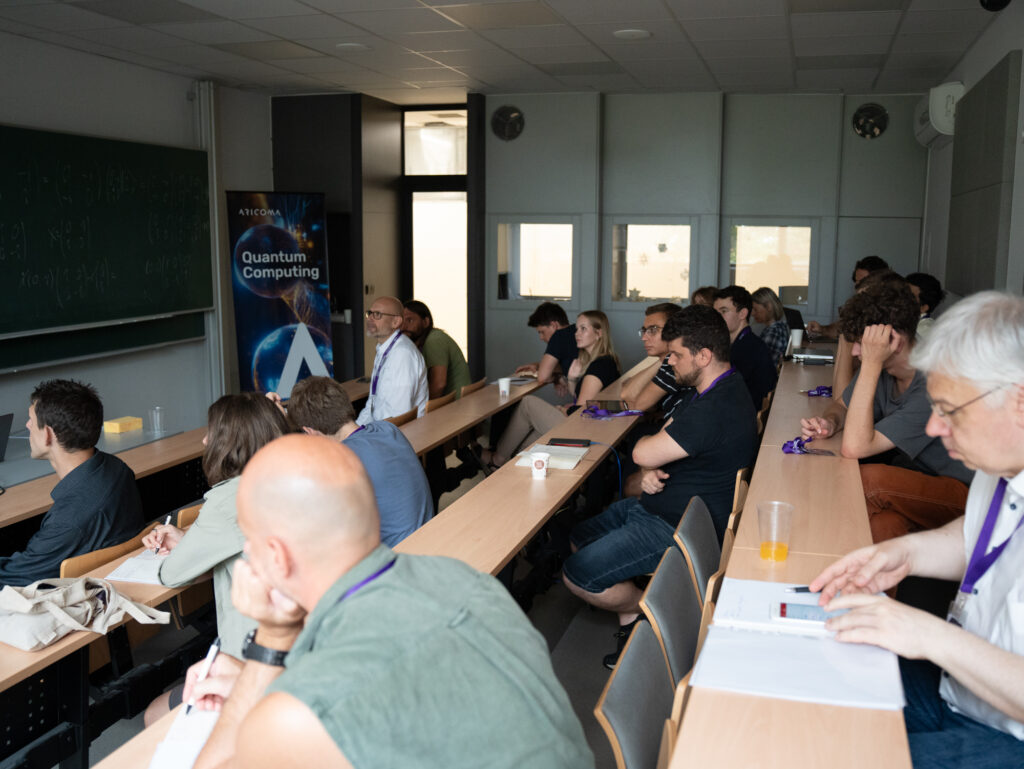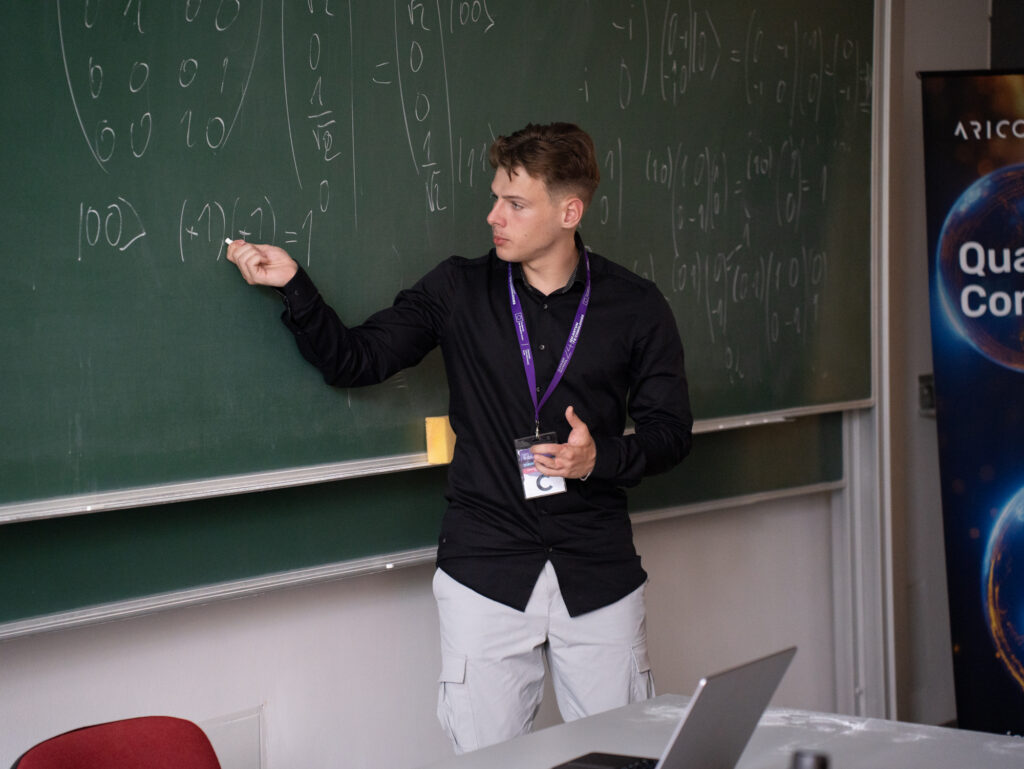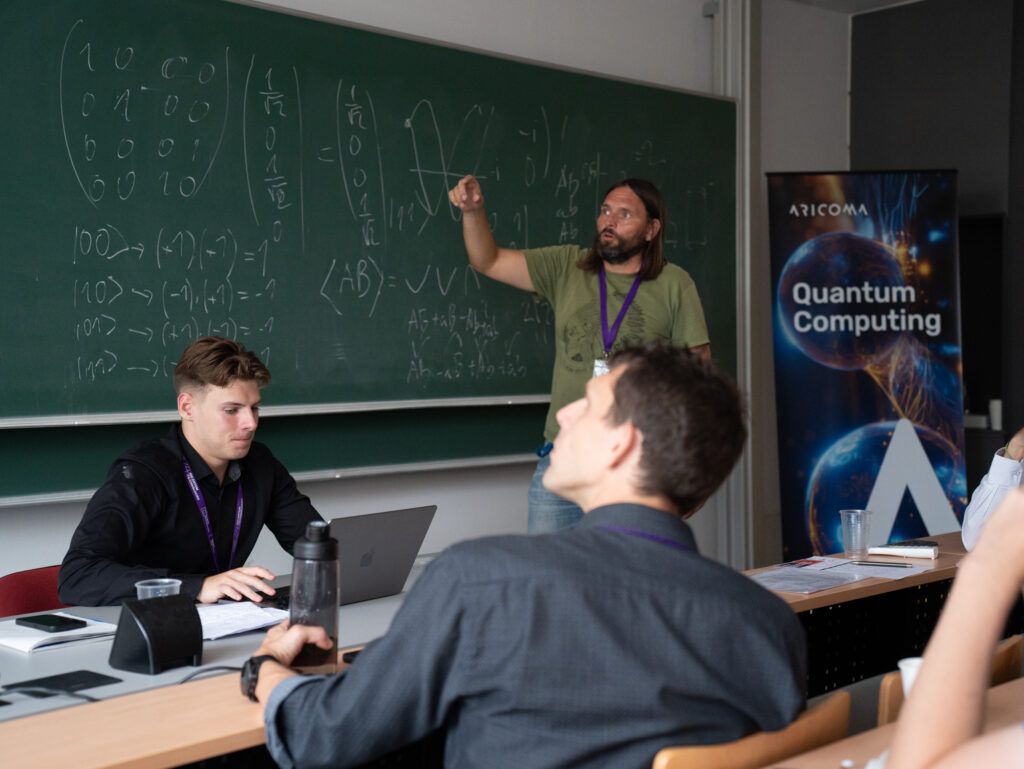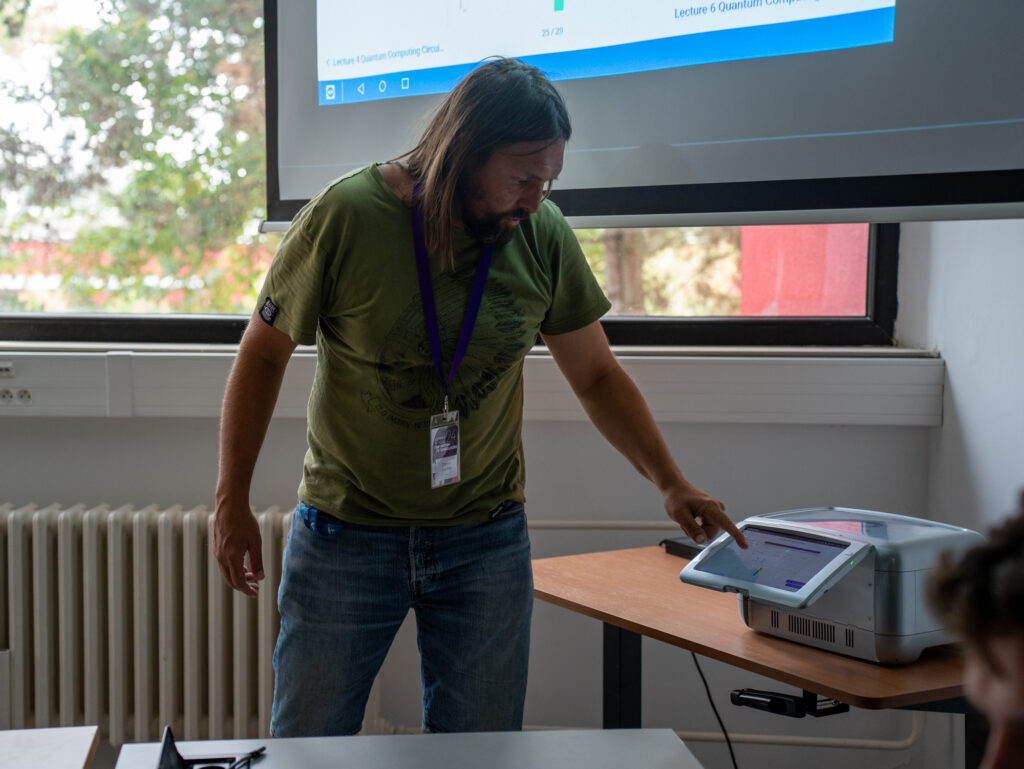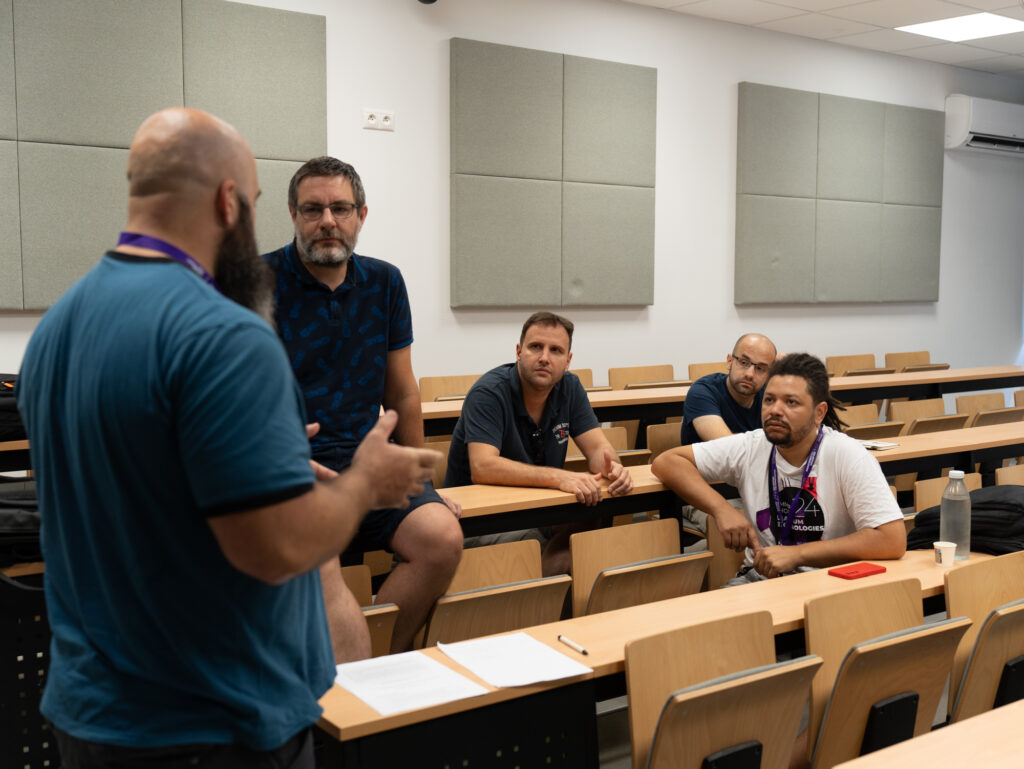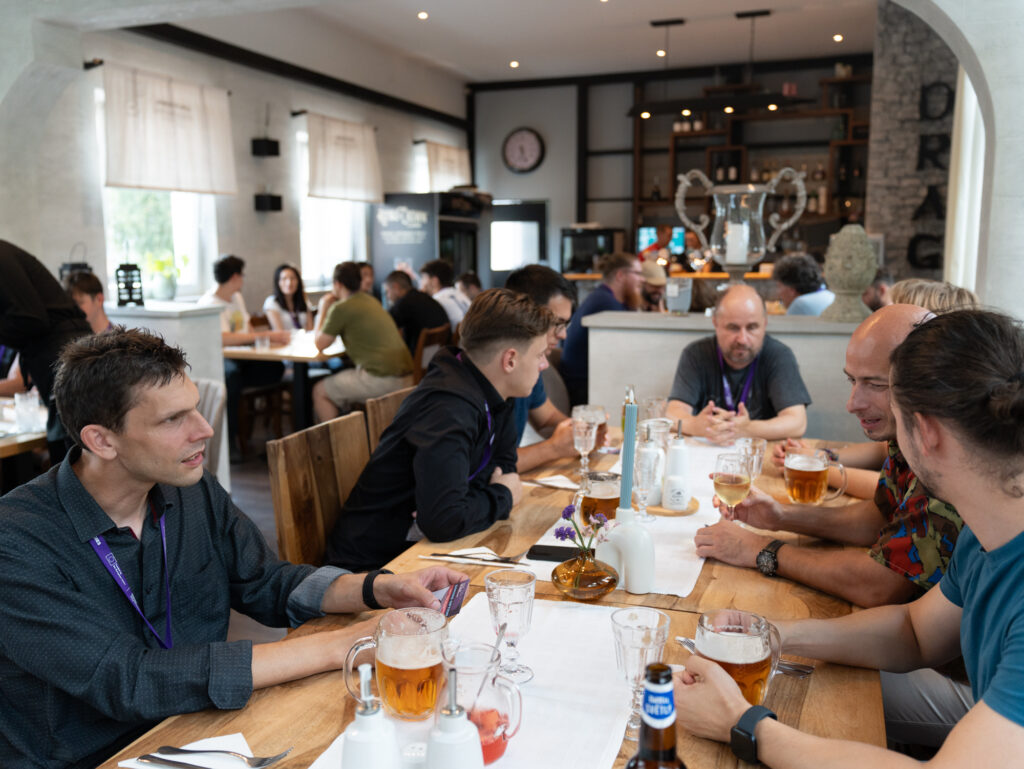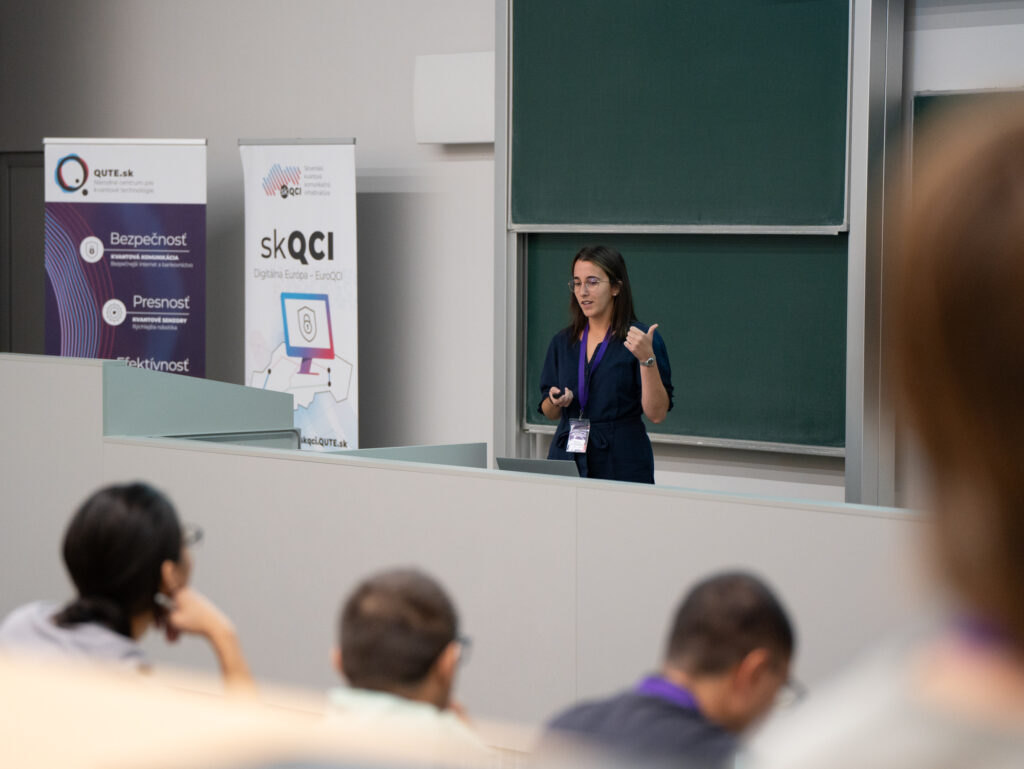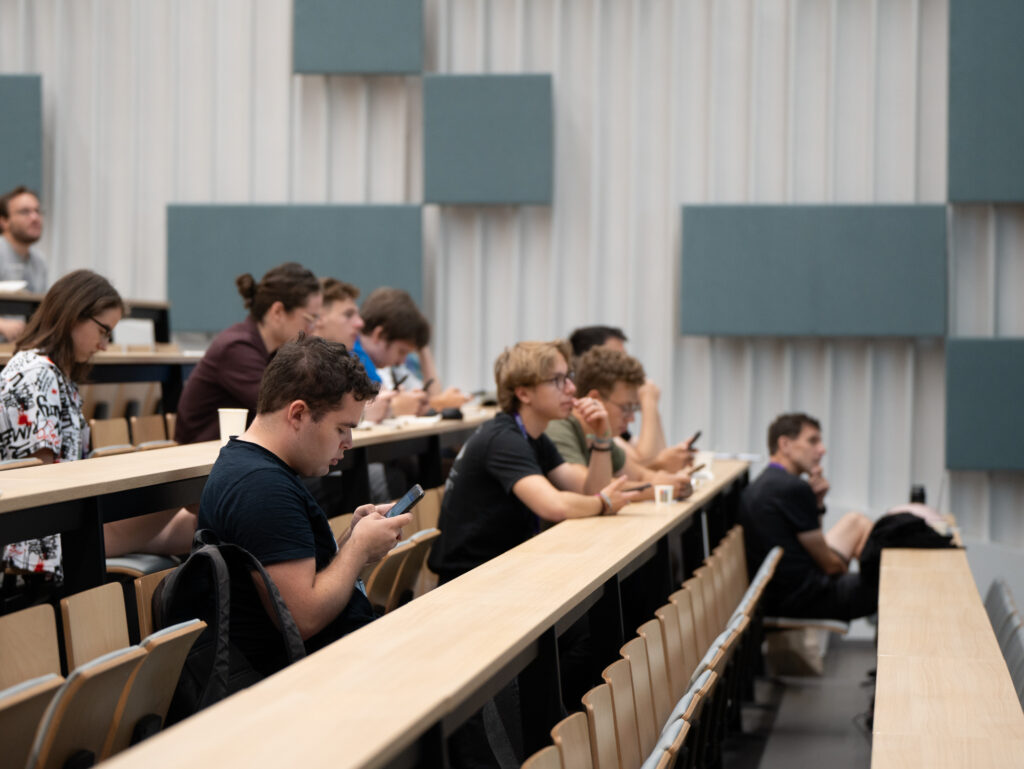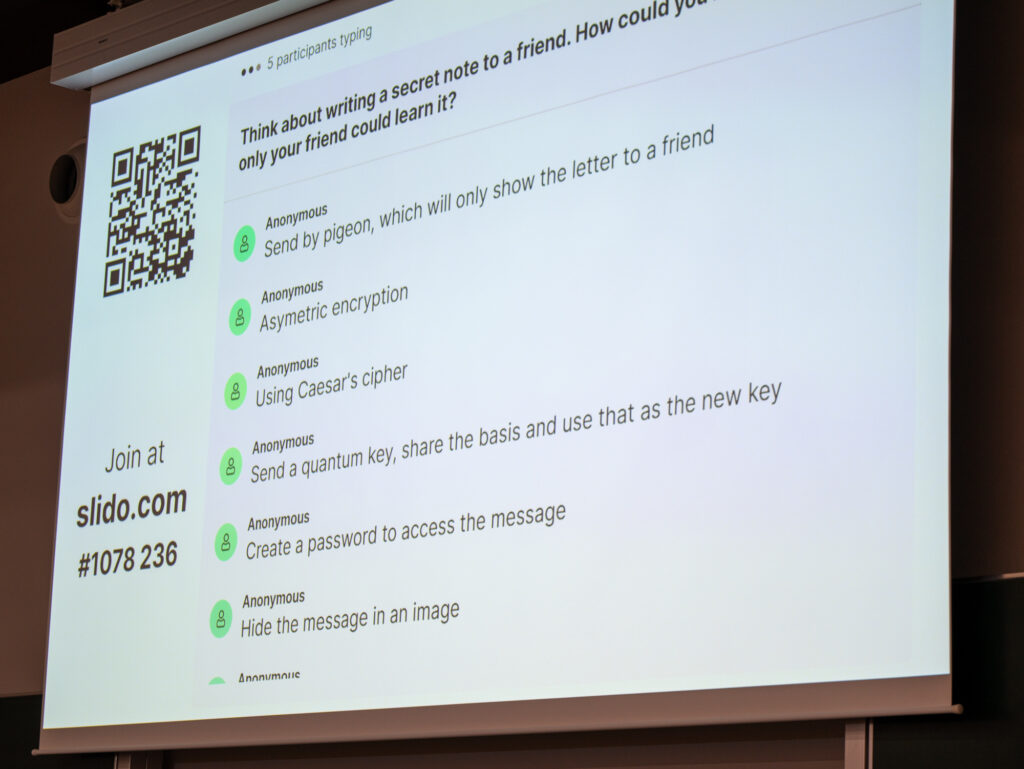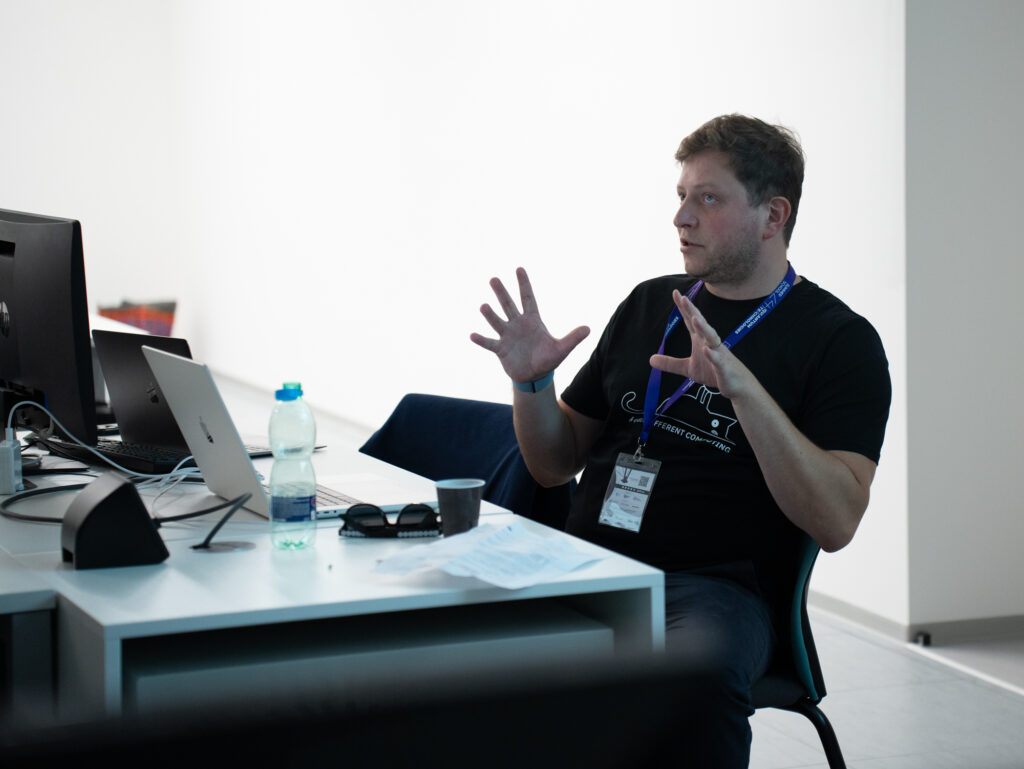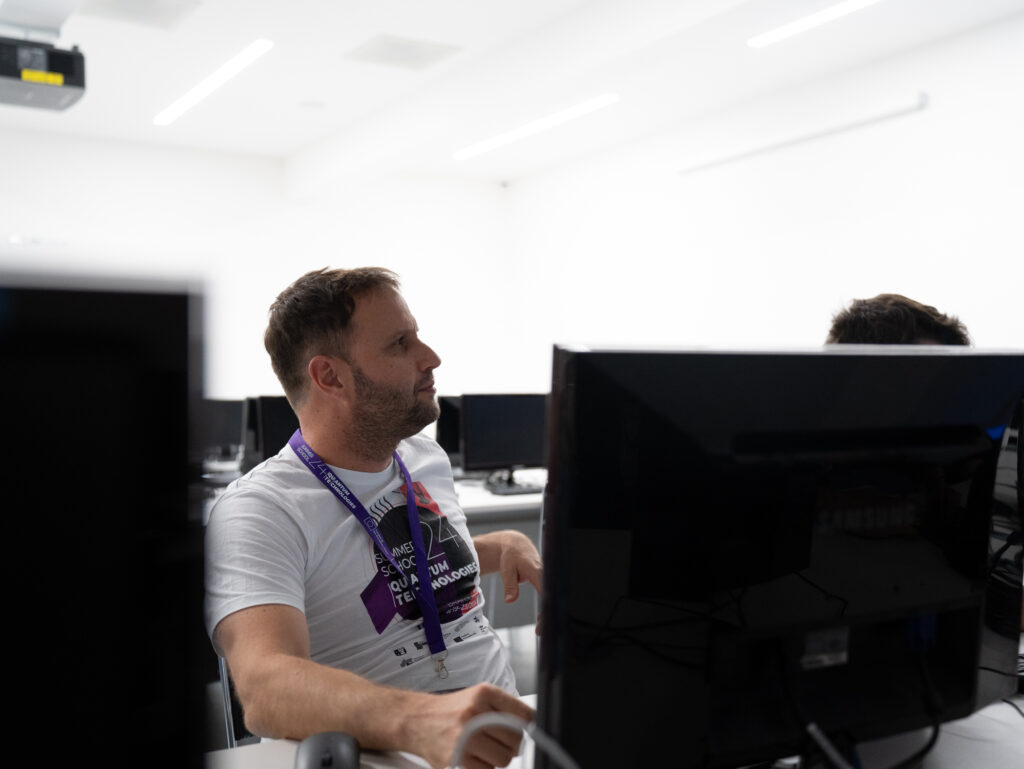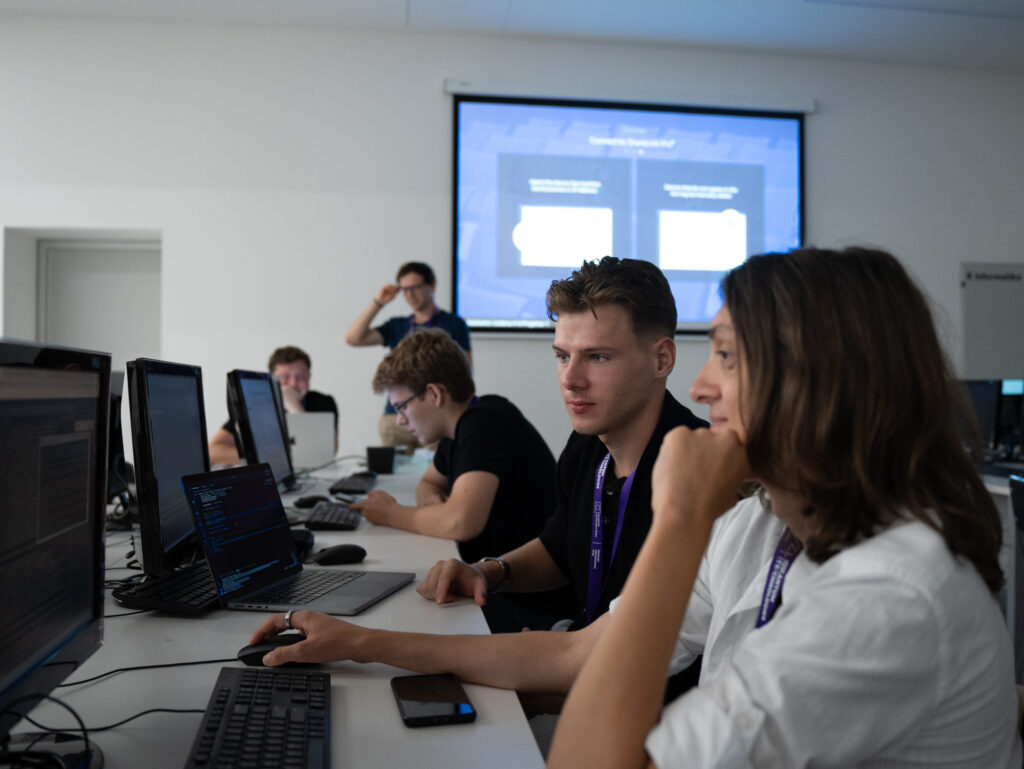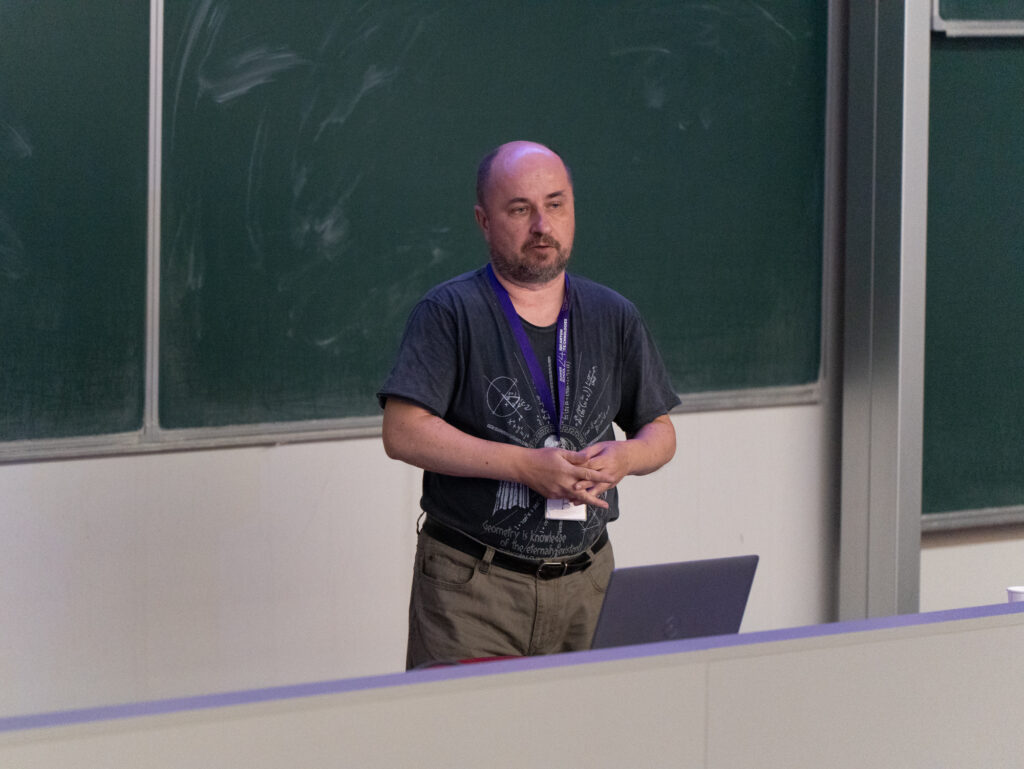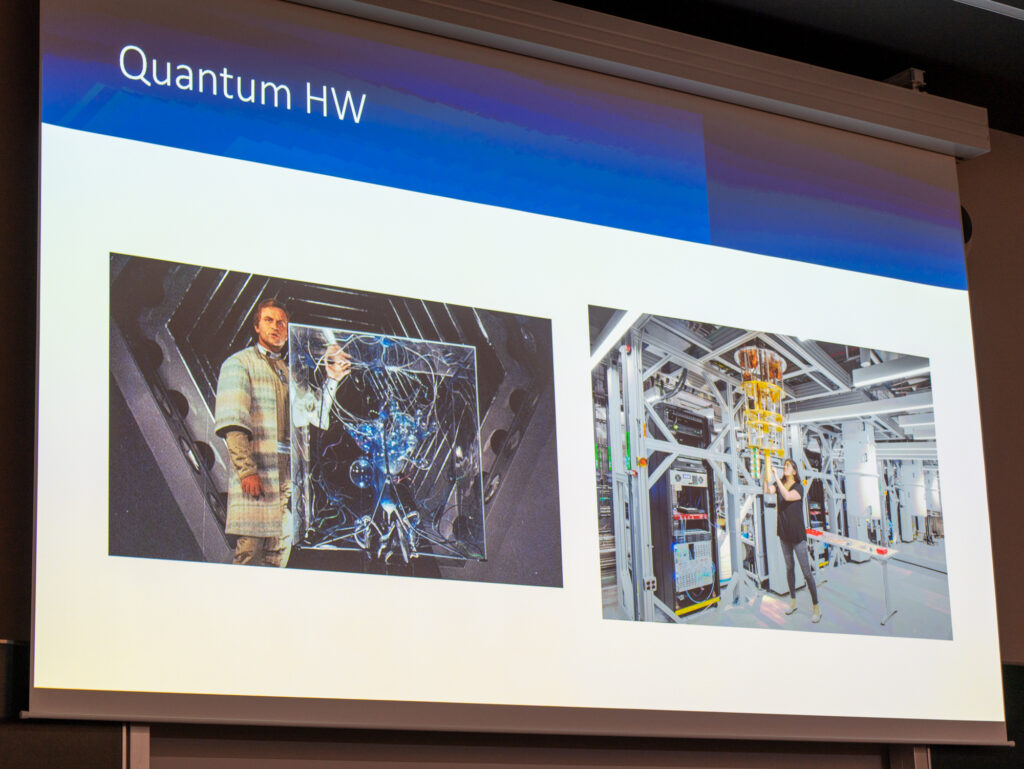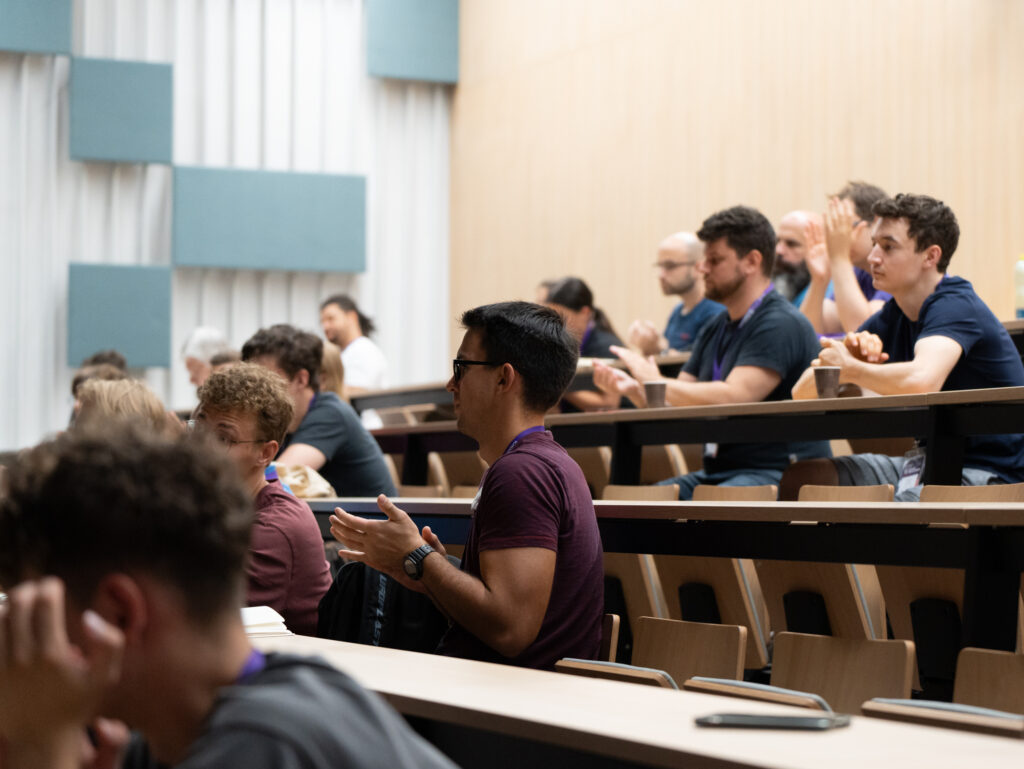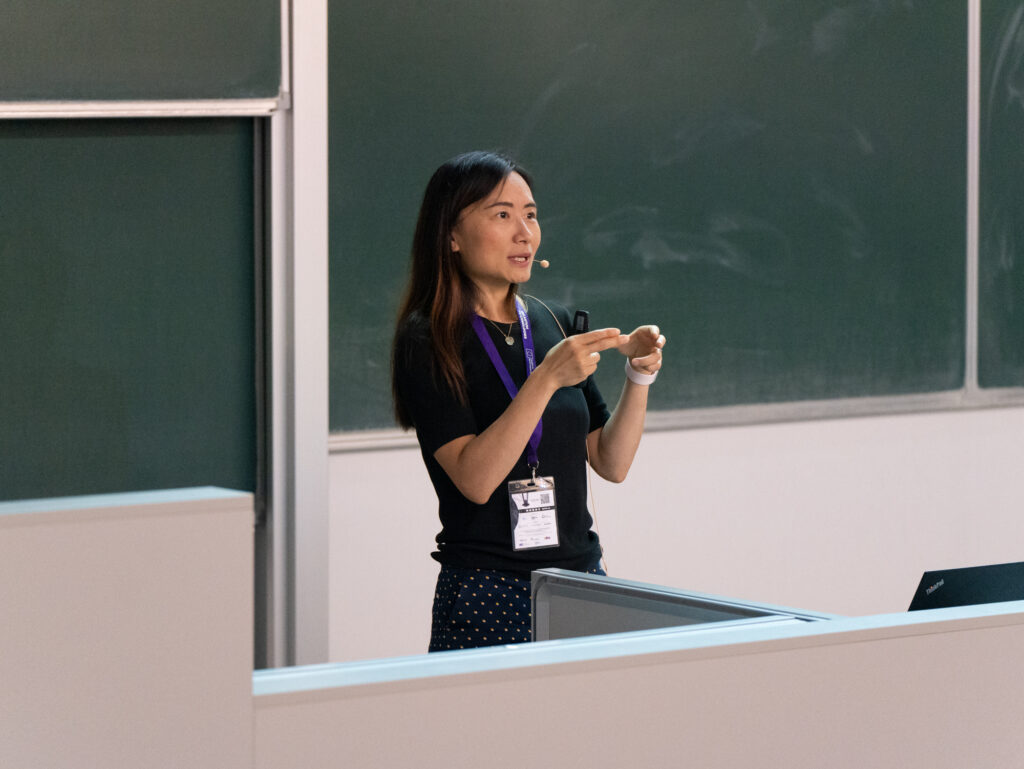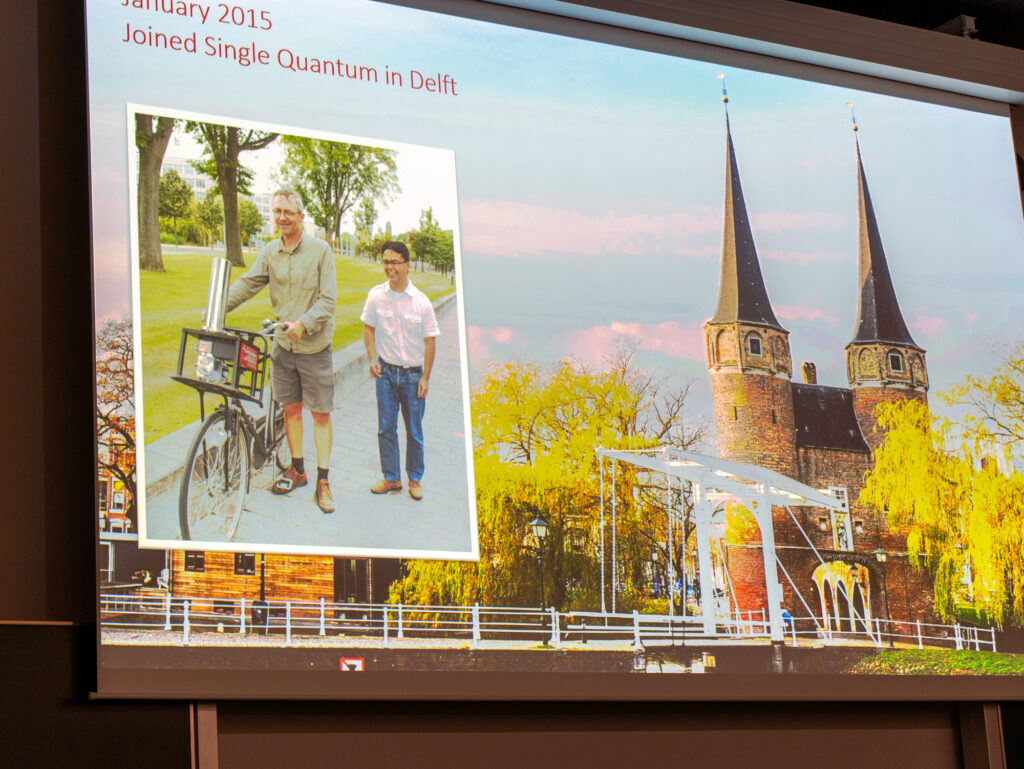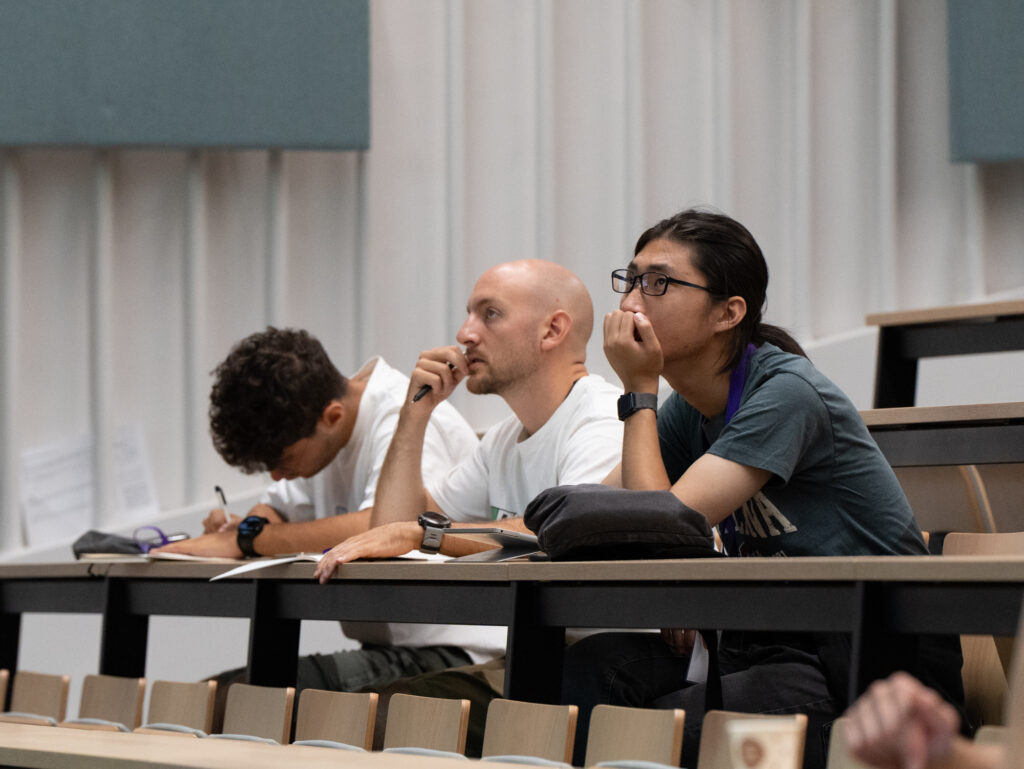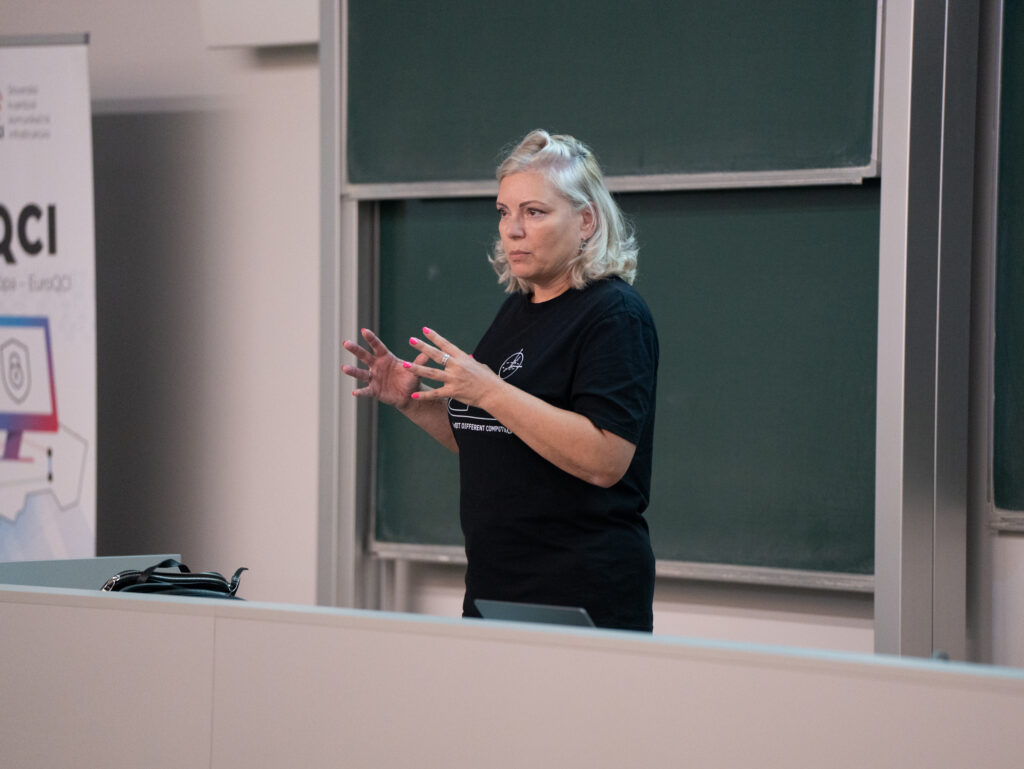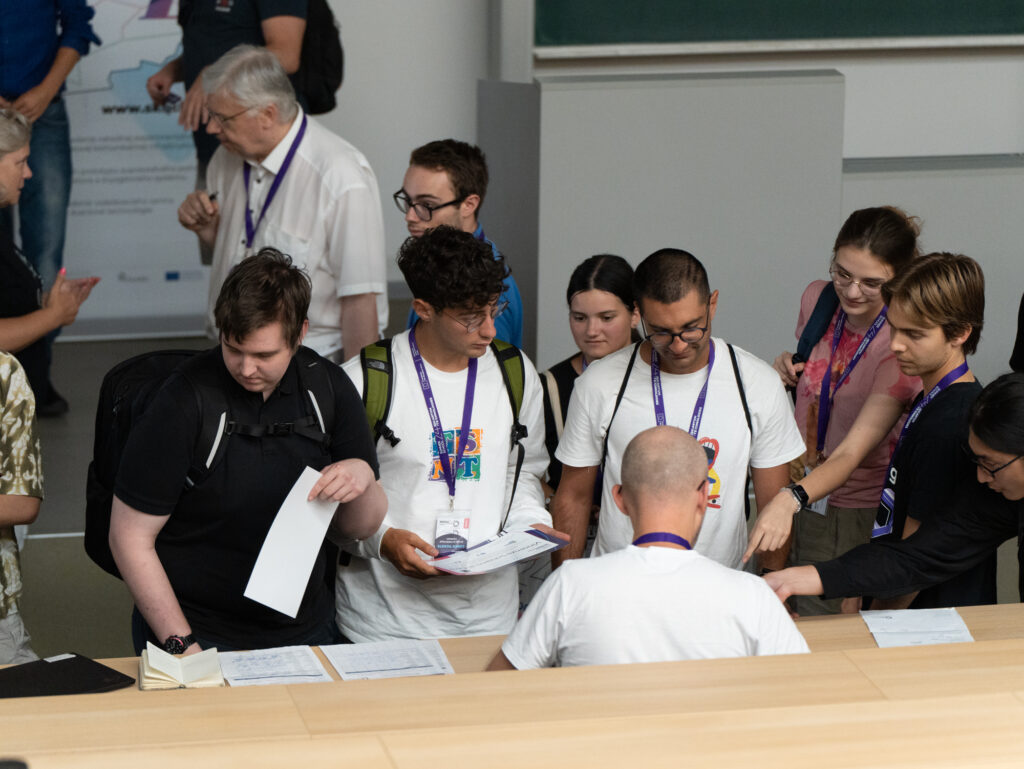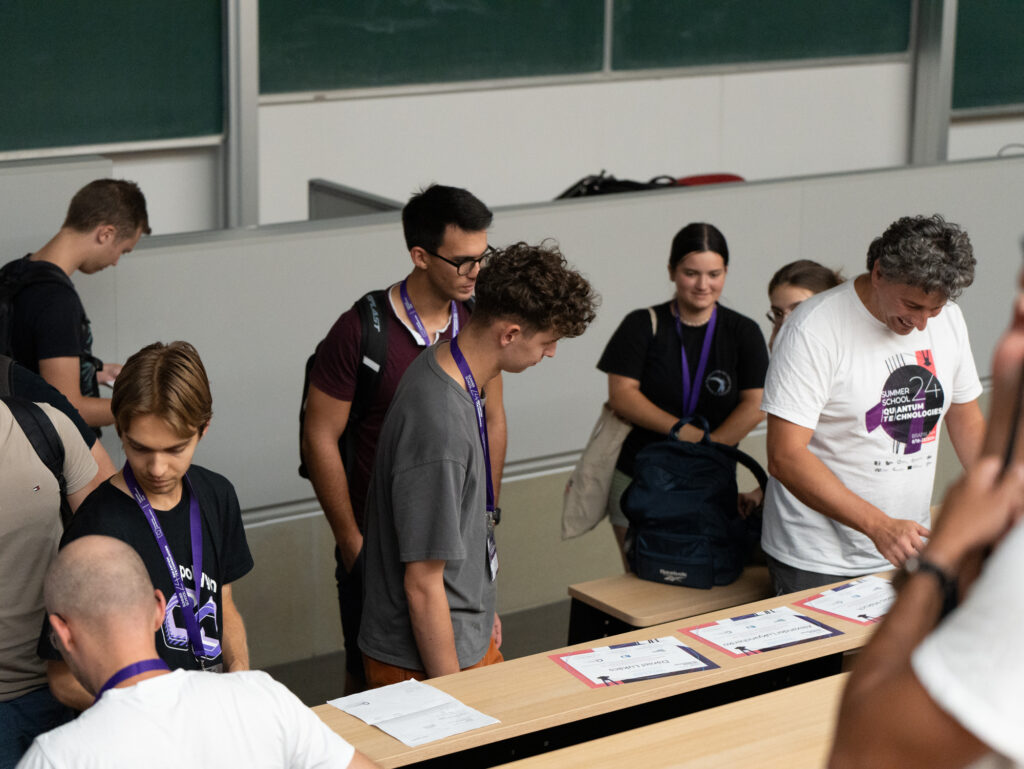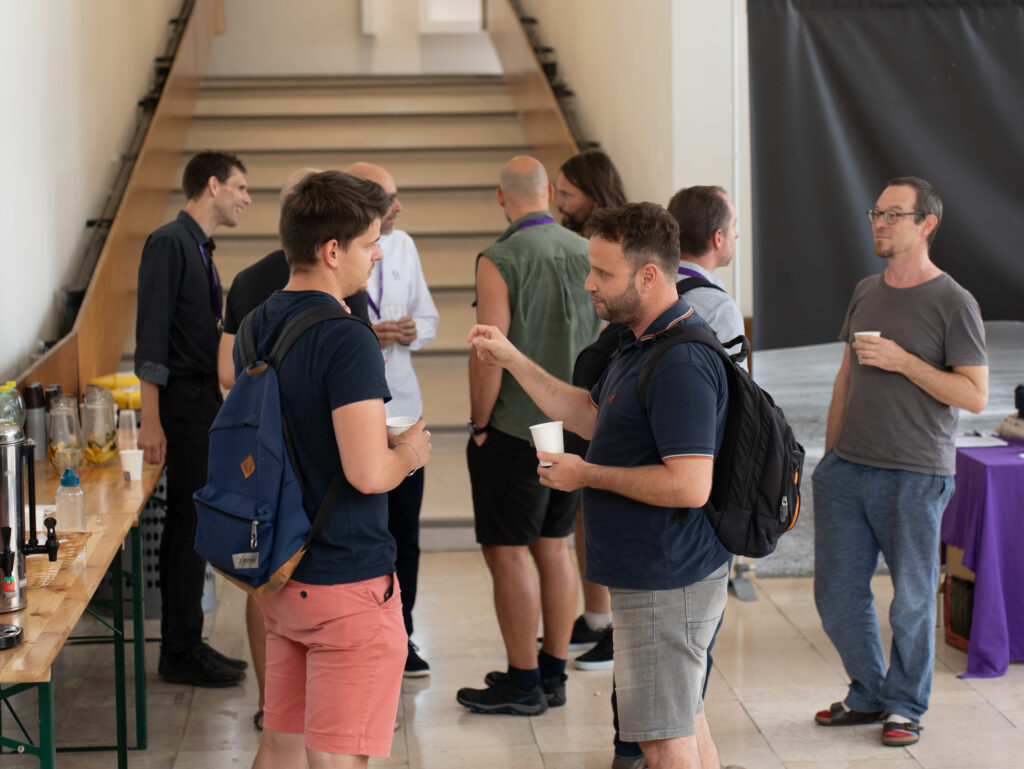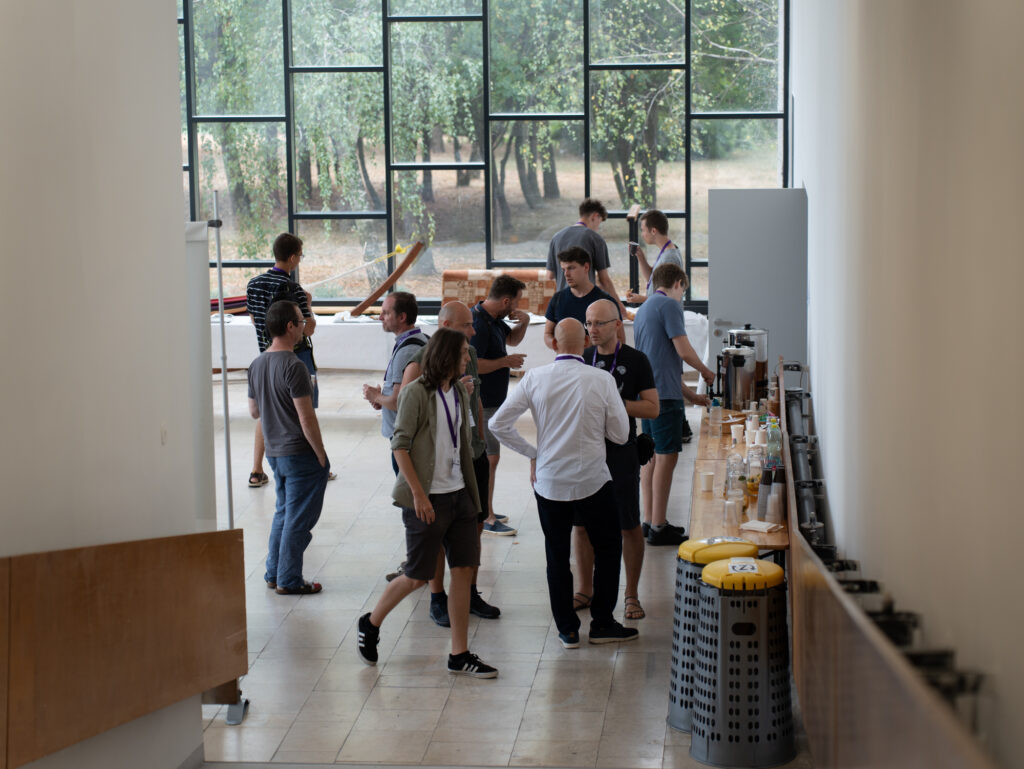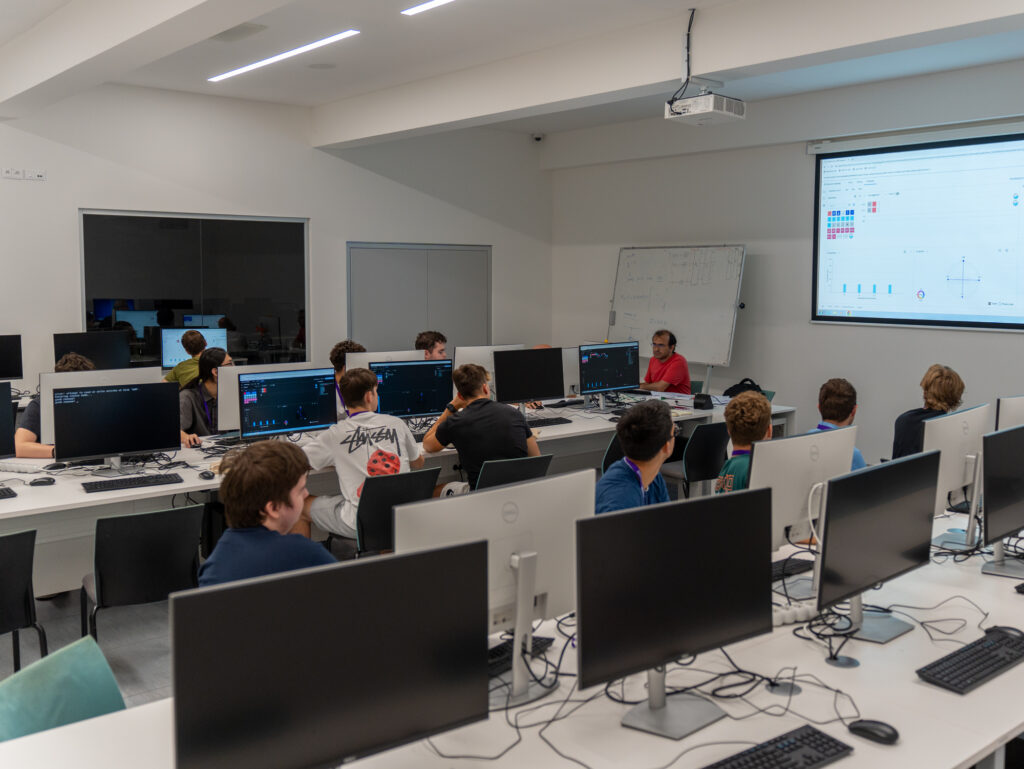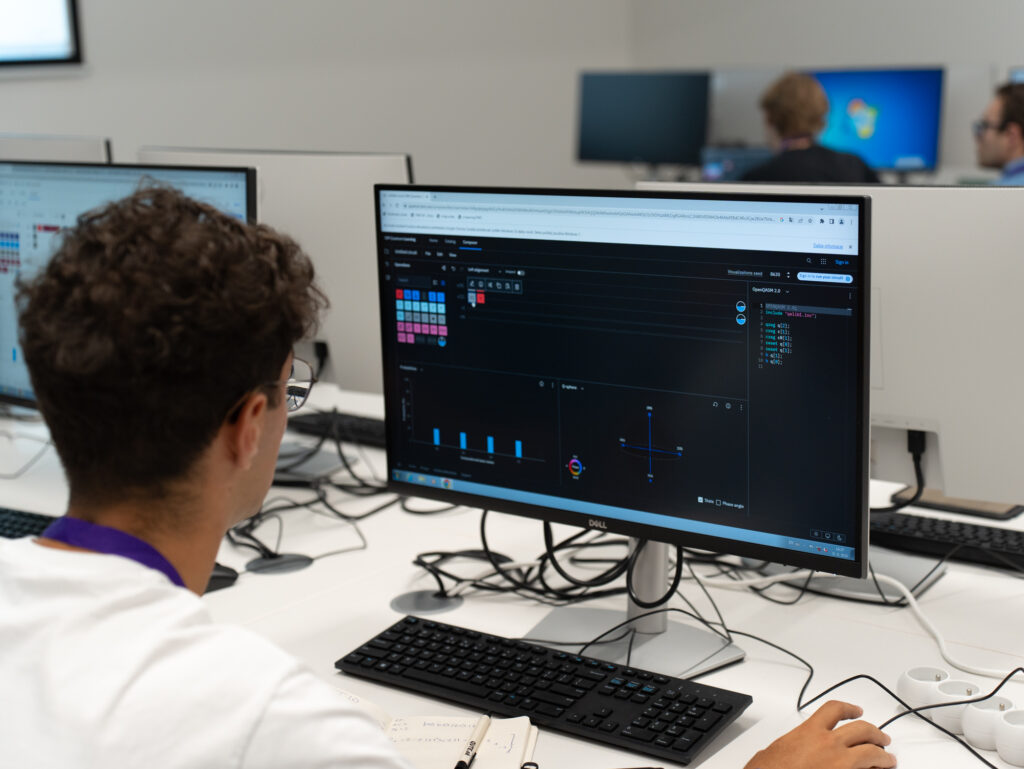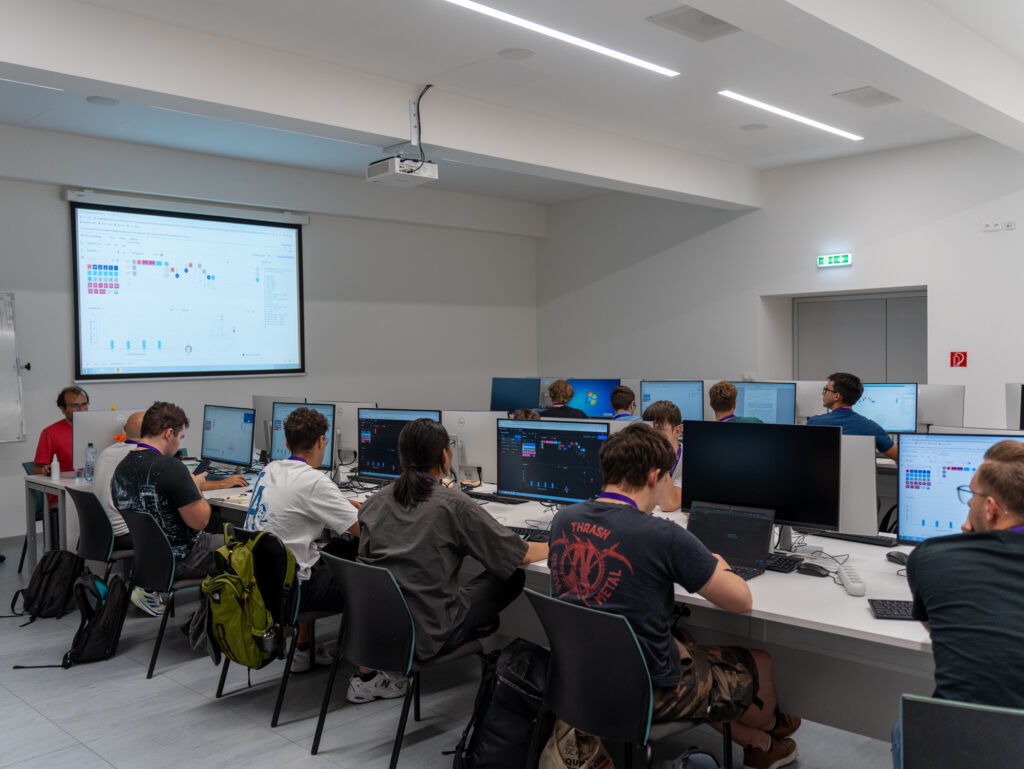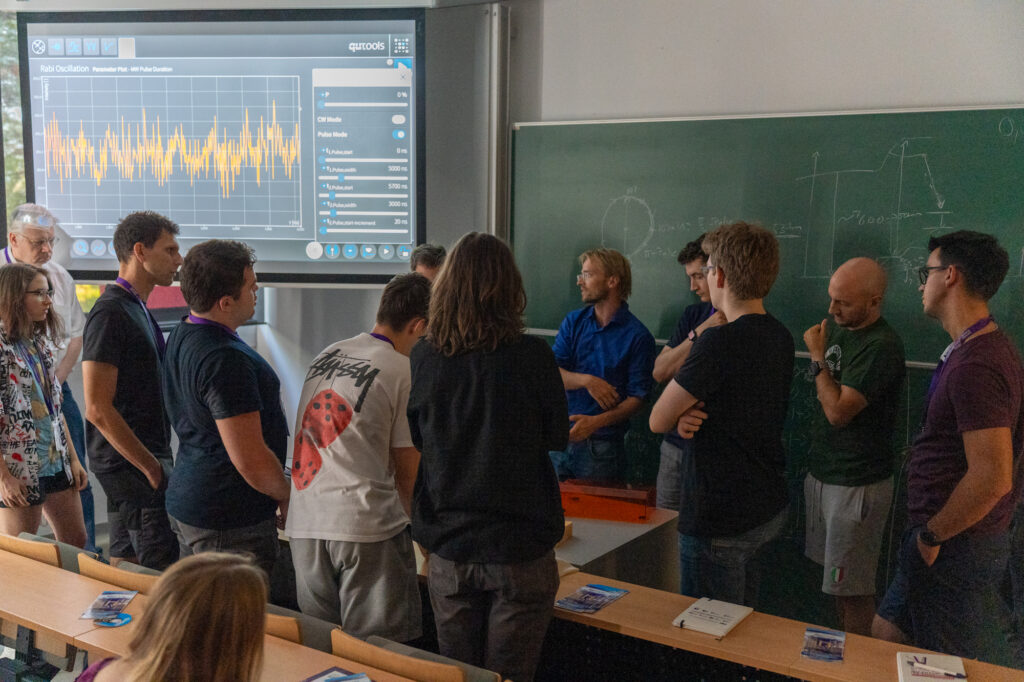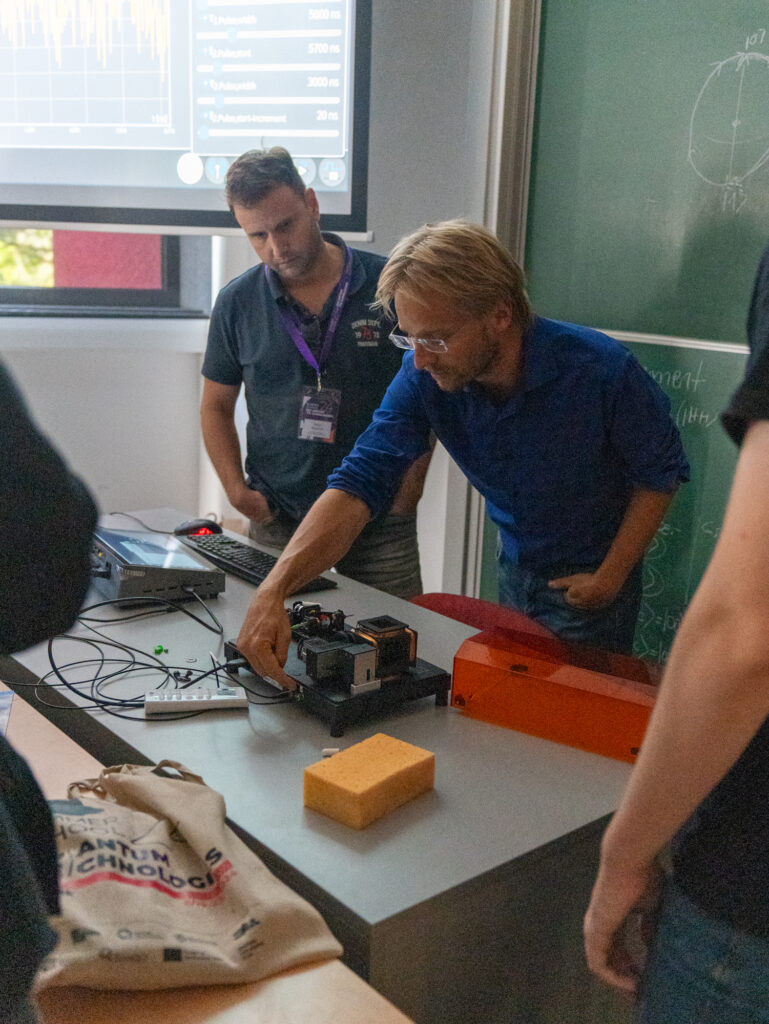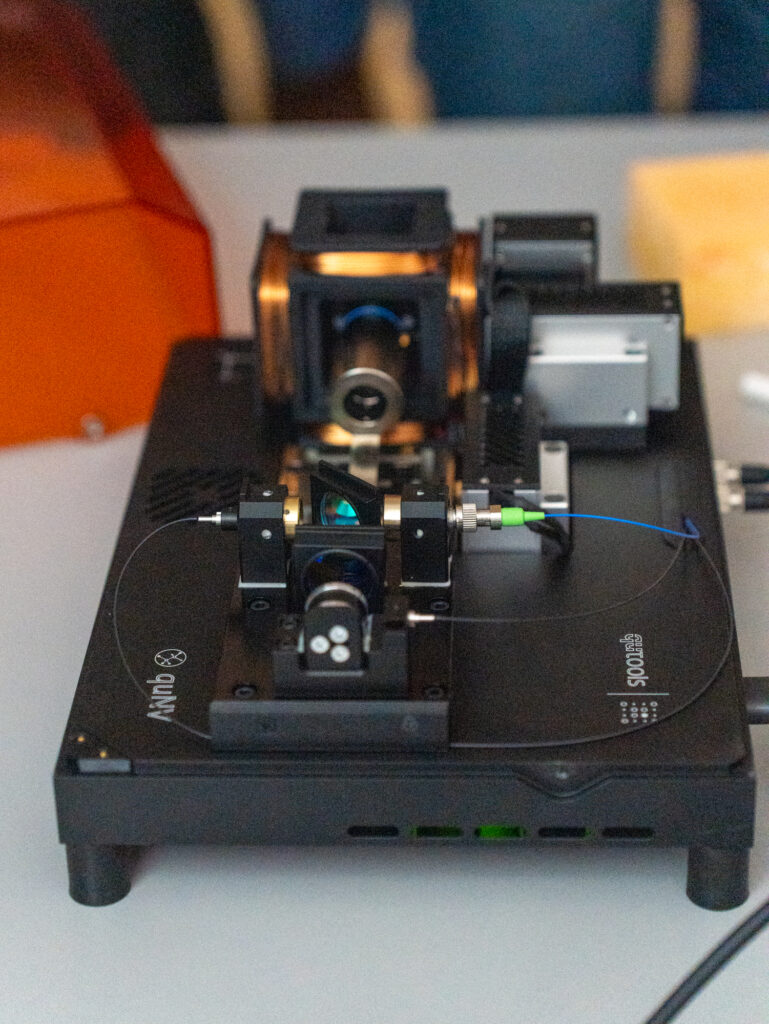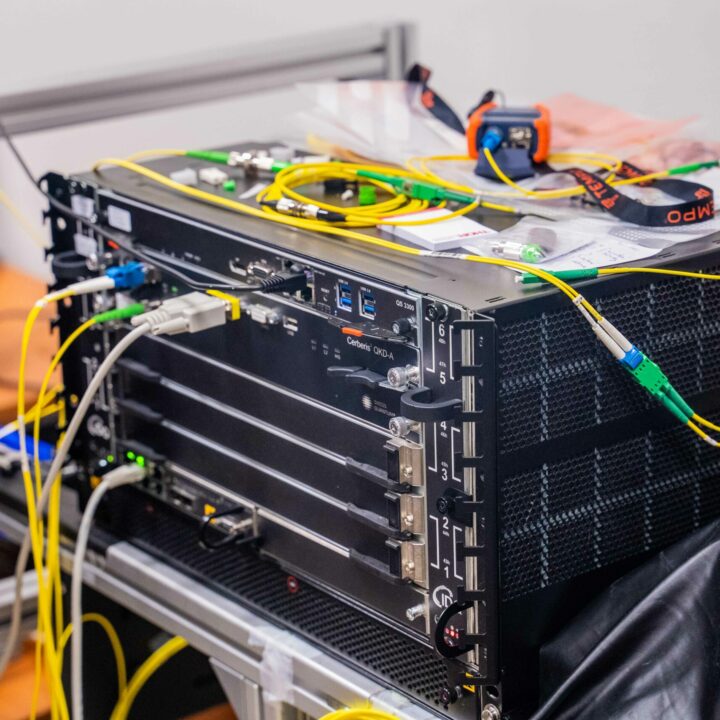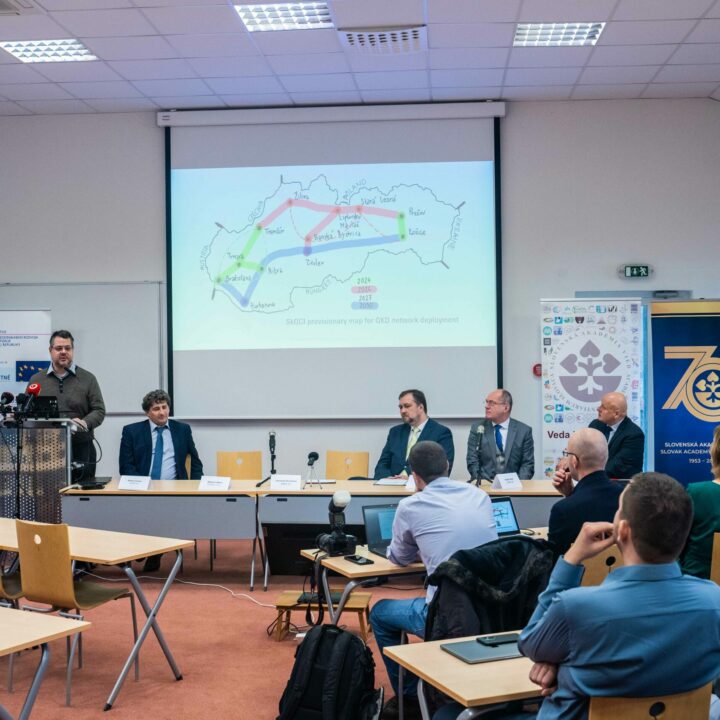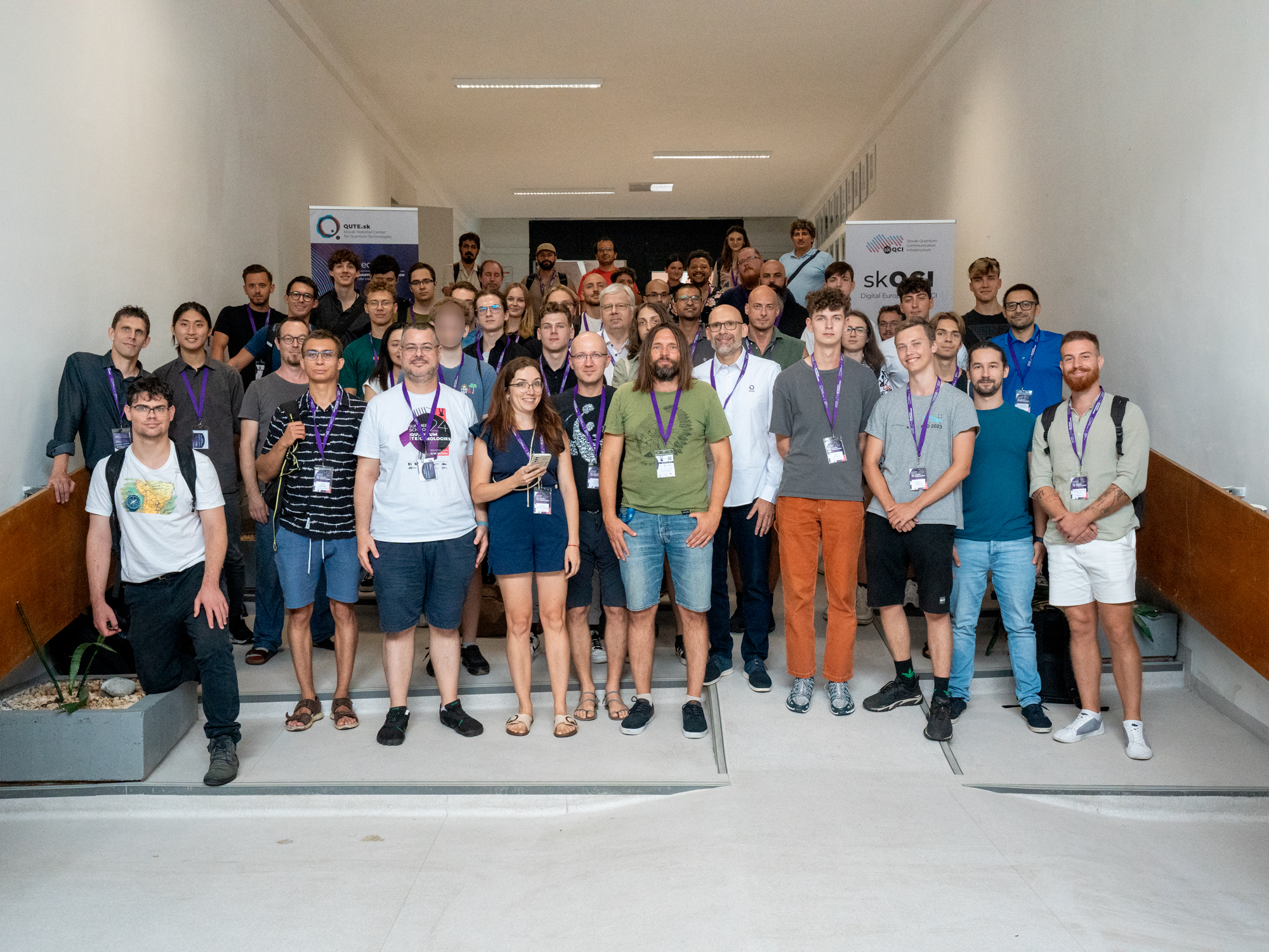Hands-On with Quantum: Wrapping Up the 2024 Summer School
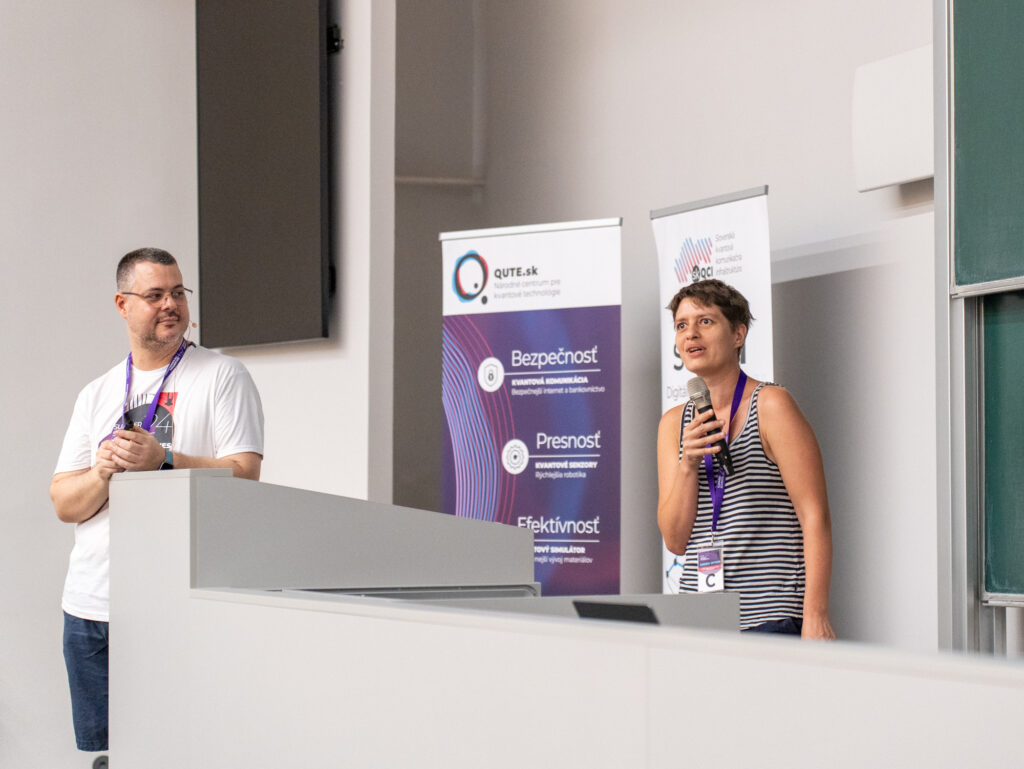
After last year’s edition in Vienna, the Quantum Technologies Summer School 2024 successfully took place at the Faculty of Mathematics, Physics, and Informatics, Comenius University in Bratislava, offering participants a unique blend of theoretical and hands-on learning in the cutting-edge field of quantum technologies. Co-organized by the Institute of Physics Slovak Academy of Sciences, Fachhochschule Technikum Wien and QUTE.sk – Slovak National Center for Quantum Technologies, the event featured a combination of academic insights and private sector expertise, providing students with a well-rounded understanding of how quantum mechanics is applied in both research and real-world industries.
A Holistic Learning Experience
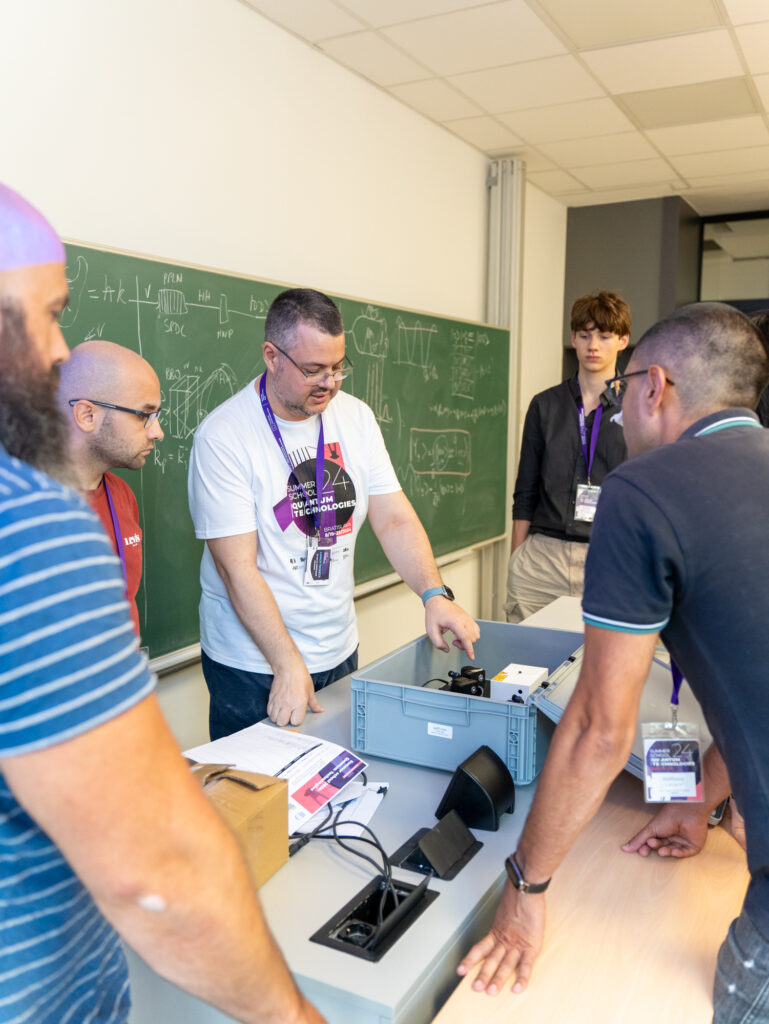
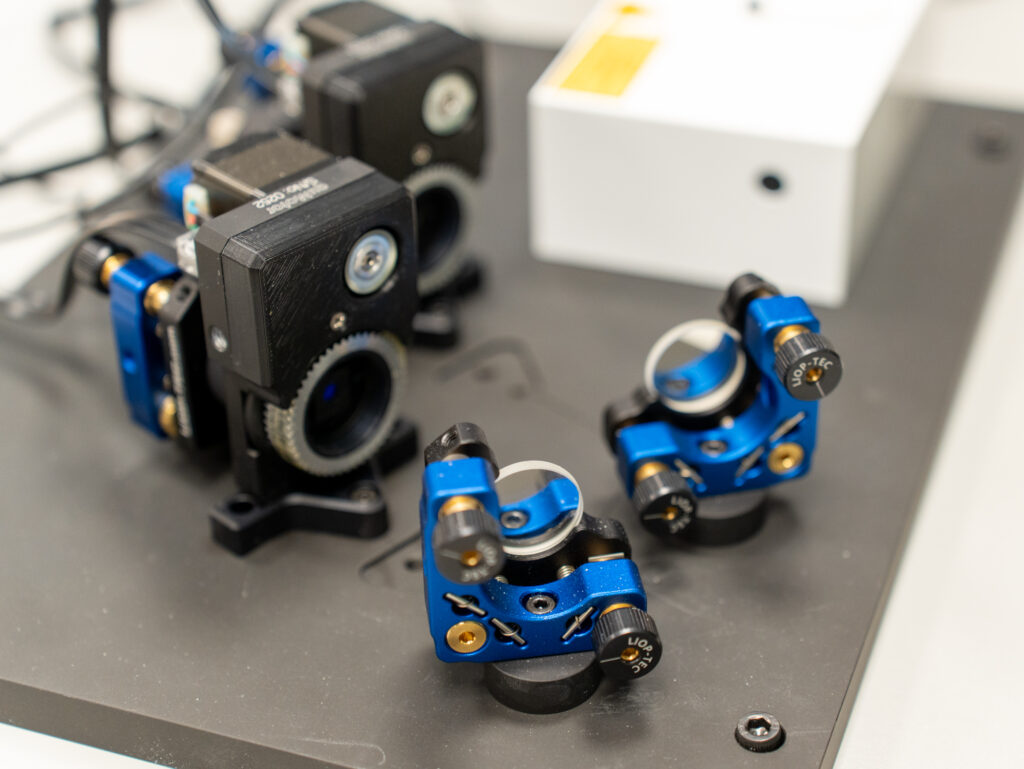
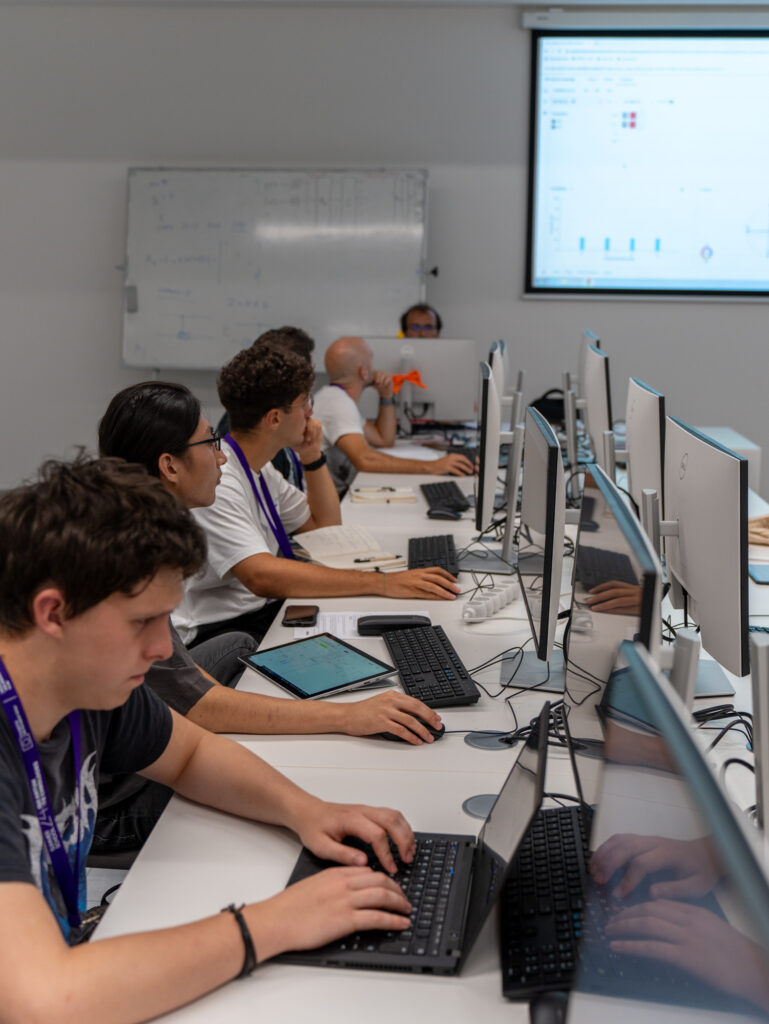
Each day of the summer school was structured into two parts. Mornings featured insightful lectures from a mix of academic and industry leaders, highlighting the theoretical aspects of quantum mechanics and its growing role in various sectors. Speakers from both academic institutions and leading companies, including qtLabs, Single Quantum, AIT, Aricoma, Accenture and IBM, shared their knowledge, showcasing the real-world applications of quantum technologies.
Afternoons were dedicated to hands-on workshops, where students had the chance to apply what they had learned using state-of-the-art equipment. This direct interaction with quantum technology allowed participants to experiment with quantum phenomena that even seasoned scientists rarely experience firsthand.
Hands-On Workshops
Group 1 & 2: Exploring Quantum Phenomena with the quED Demonstrator
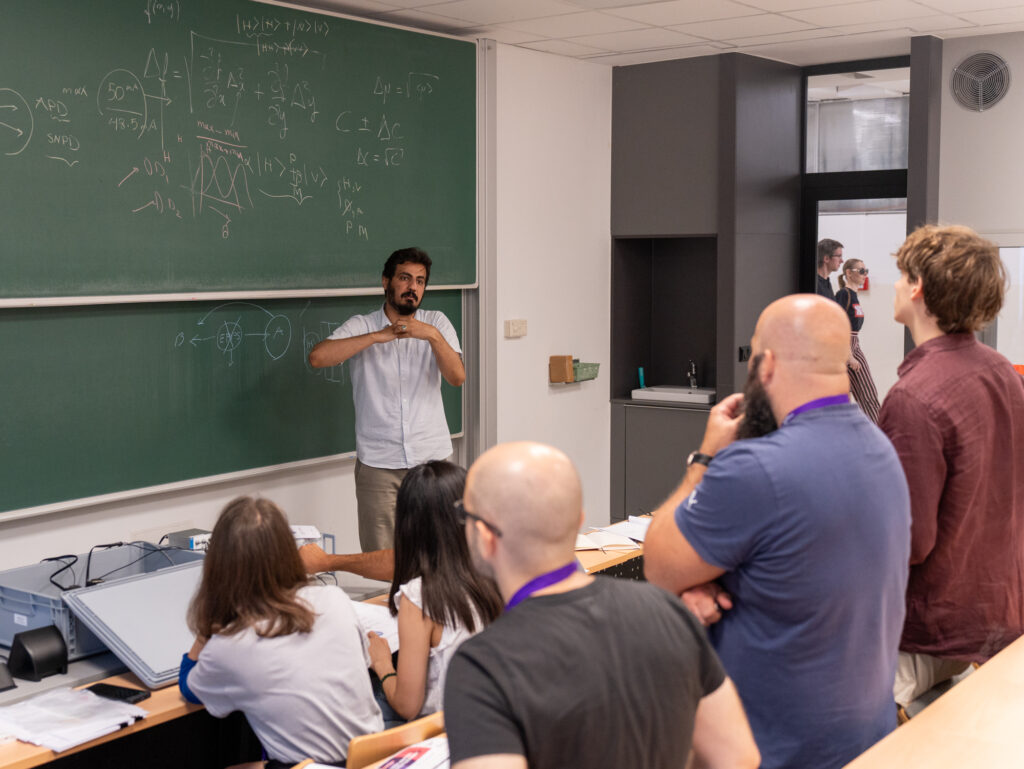
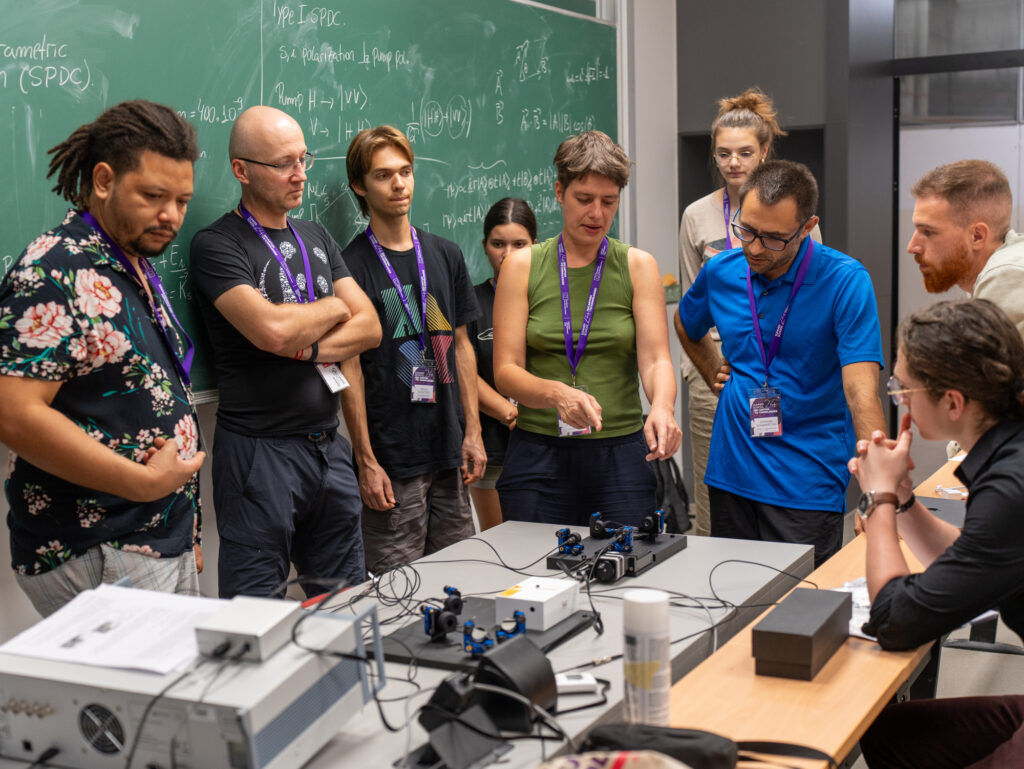
In the Quantum Technologies Summer School 2024, Group 1 and Group 2 embarked on hands-on explorations using the quED demonstrator, a cutting-edge device designed to make complex quantum phenomena accessible. Both groups focused on fundamental quantum experiments, gaining a deeper understanding of concepts that challenge even seasoned researchers.
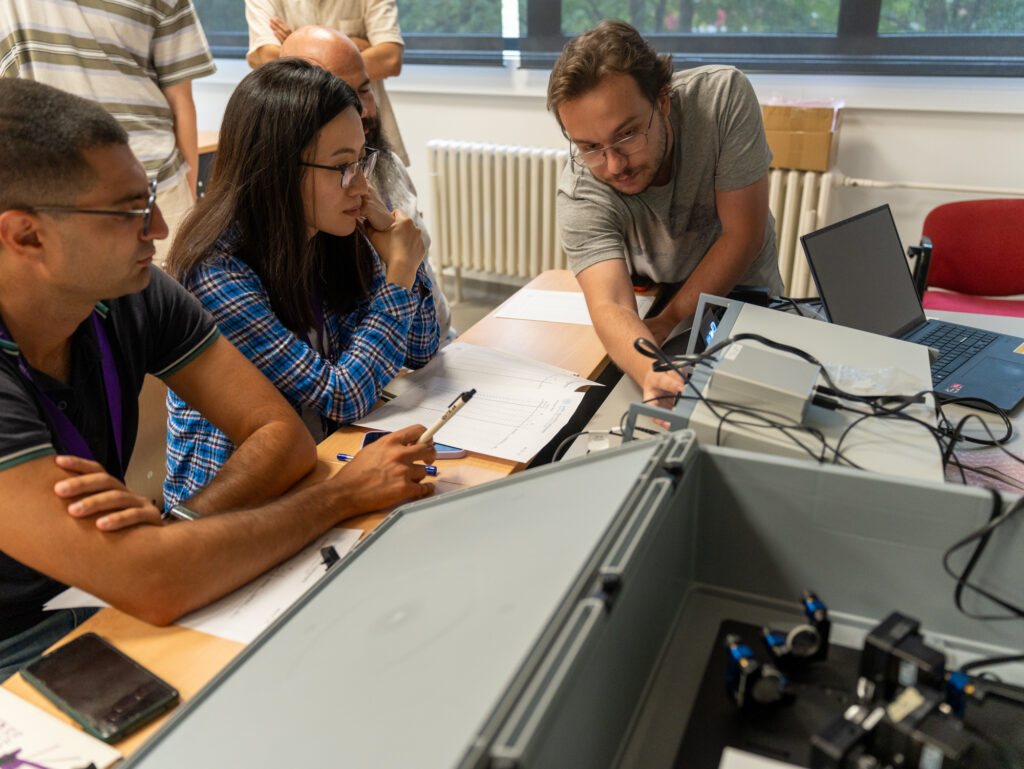
Group 1 delved into the Bell experiment and Quantum Key Distribution (QKD). The Bell experiment, a cornerstone in understanding quantum entanglement and nonlocality, allowed participants to test the very boundaries of classical physics, exploring how quantum particles can influence each other instantaneously, even across large distances. This laid the foundation for understanding how quantum information can be transmitted securely. Building on this, they explored the principles behind QKD, which uses the properties of quantum mechanics to create an unbreakable cryptographic system, emphasizing the real-world applications of quantum technology in secure communication.
Group 2, also utilizing the quED system, worked independently on more complex experiments like the Hong-Ou-Mandel (HOM) dip. This experiment is a fascinating demonstration of two-photon interference, revealing how quantum particles behave when they interact under specific conditions. Through their hands-on engagement, students learned how quantum coherence and interference play a role in modern quantum technologies. Later, they revisited the Bell experiment, adding their insights from previous work, and dove into the BB84 protocol, a pioneering method for quantum communication. This protocol is one of the earliest quantum cryptography techniques, and through it, students could directly observe how quantum states can be used to secure information transfer.
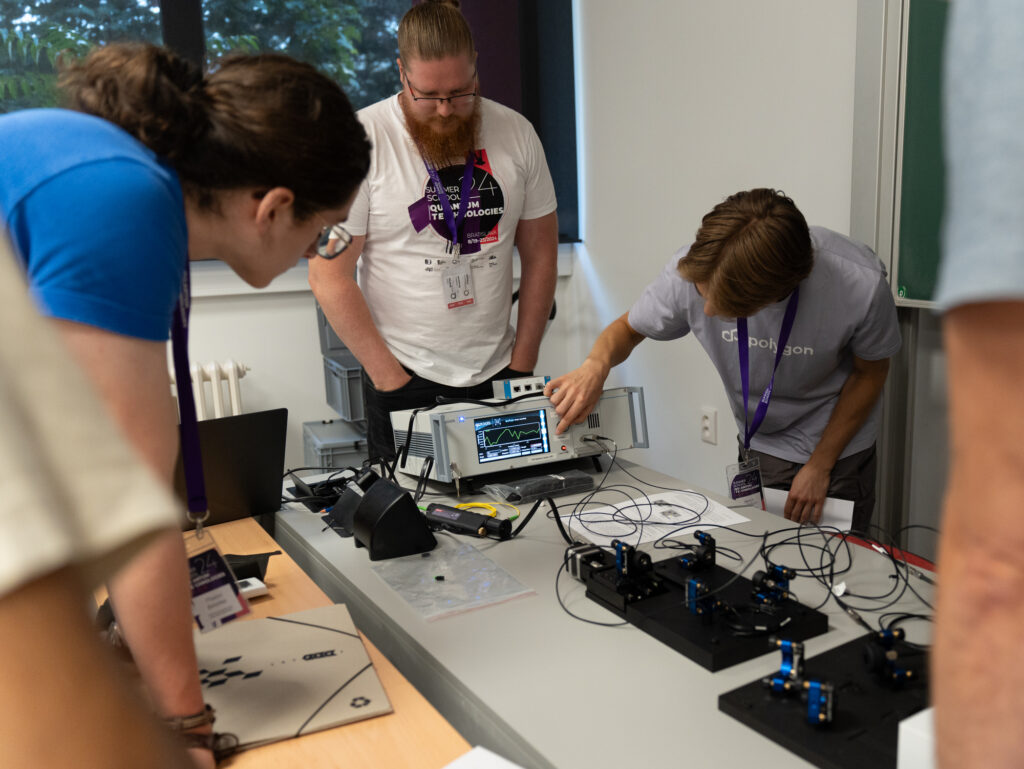
Both groups gained invaluable practical experience, moving from theoretical foundations to tangible applications, bridging the gap between abstract quantum phenomena and their implications in technology. This immersive approach made the intricacies of quantum theory more comprehensible, leaving participants with a solid understanding of the mechanics behind quantum communications and cryptography.
Group 3: Quantum Computing with Industry Experts

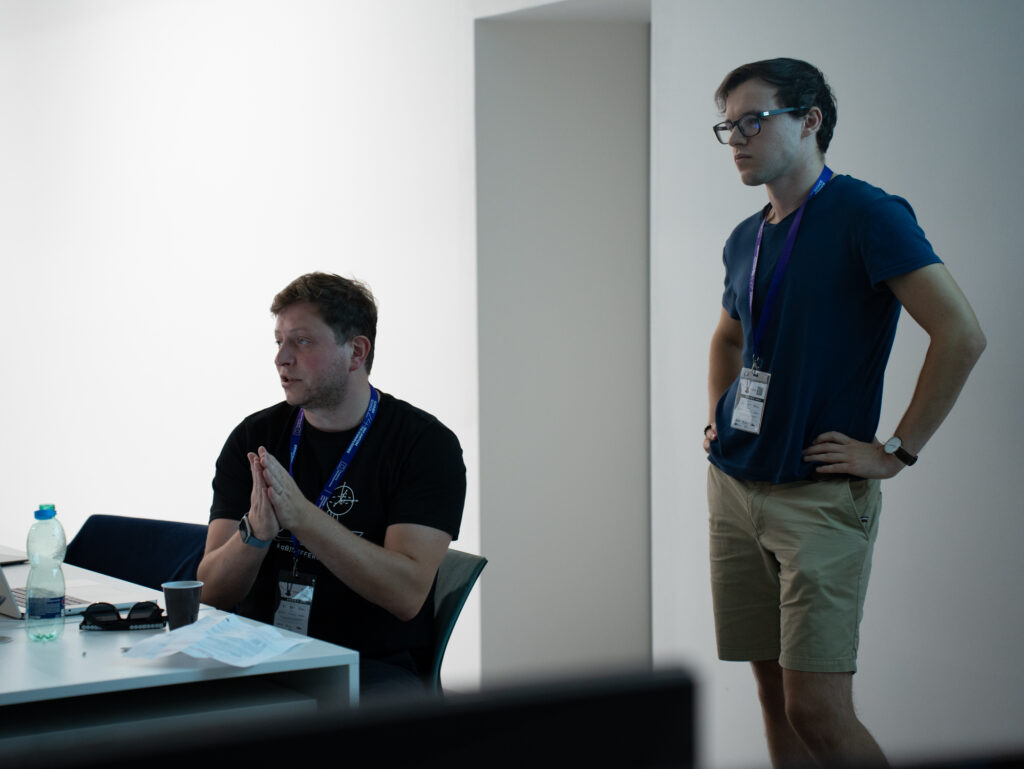
Group 3 was fortunate to have guidance from professionals from Aricoma and IBM, diving into the world of quantum computing using the Gemini Mini Pro, a real desktop quantum computer. This workshop offered students an in-depth look at the foundations of quantum computing, starting with a brief introduction to quantum mechanics. The tutors led participants through the development of quantum theory and explained the principles of qubit (quantum bit), Bloch sphere, quantum gates and quantum circuits, which form the backbone of quantum computing.
Students were introduced to the evolution of quantum technologies and their transformative potential in computing and beyond. As the workshop progressed, they engaged with quantum circuits and experimented with quantum gates and measurements, gaining practical experience in building and running quantum programs. The highlight for many was delving into the CHSH inequality, an essential concept in quantum mechanics related to Bell’s theorem, where they performed hands-on experiments to understand quantum wave collapse and non-locality. The use of IBM Qiskit further solidified their knowledge by allowing them to simulate and execute real quantum algorithms, just as it is used in real-world projects involving quantum computing.
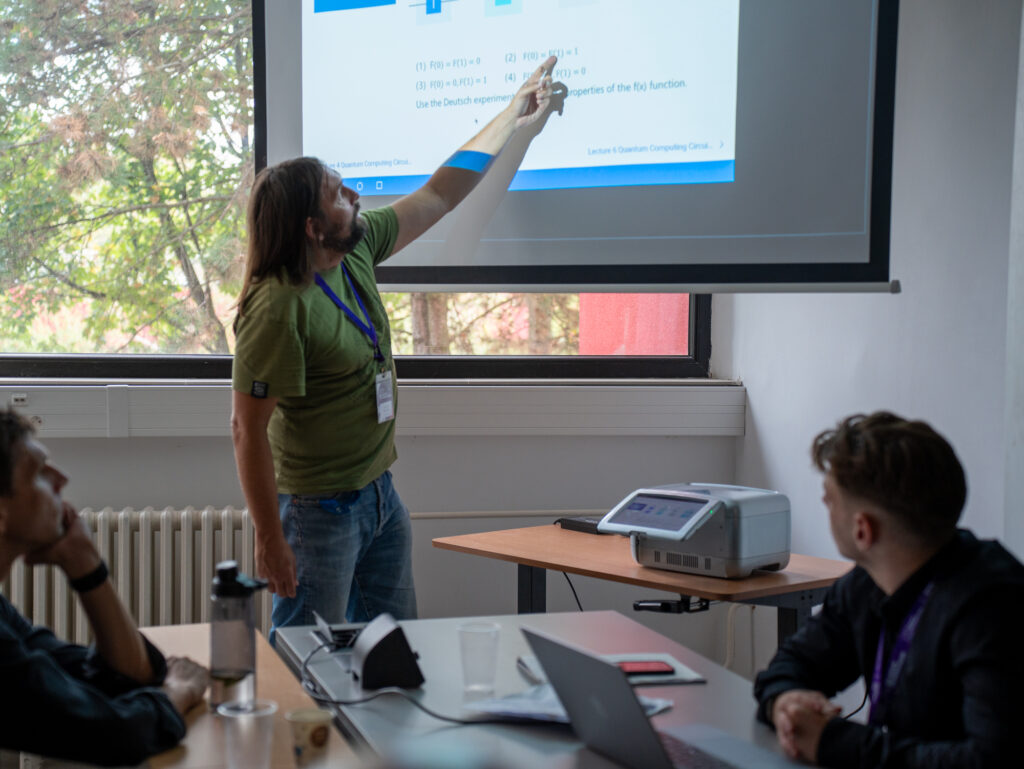
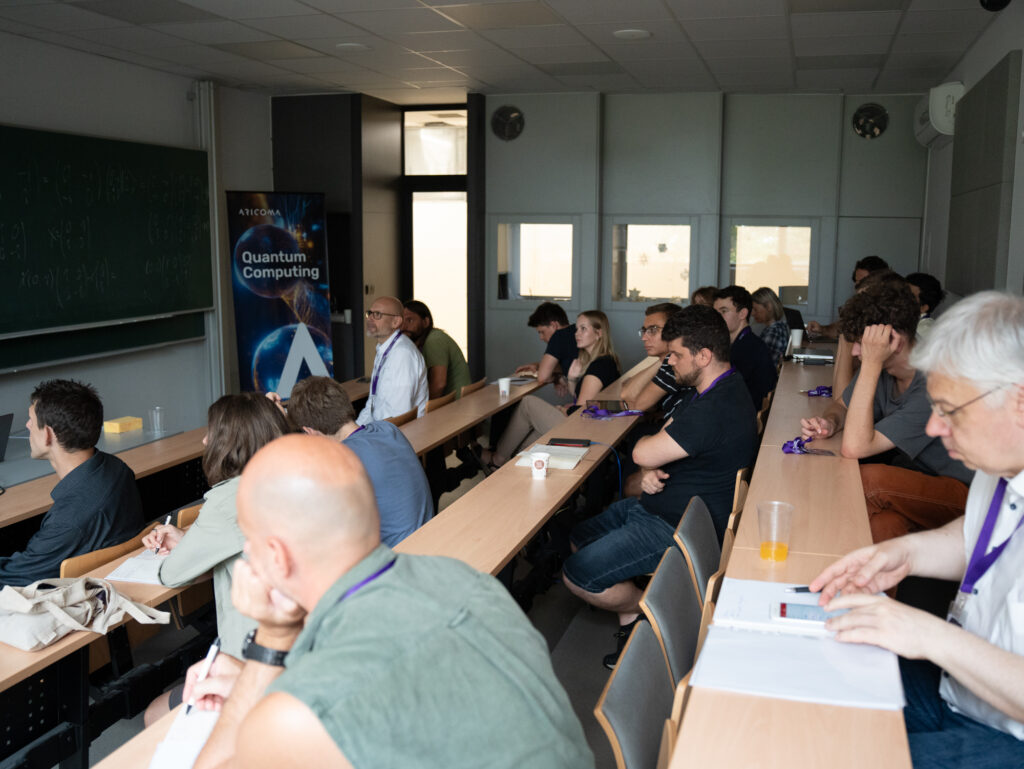
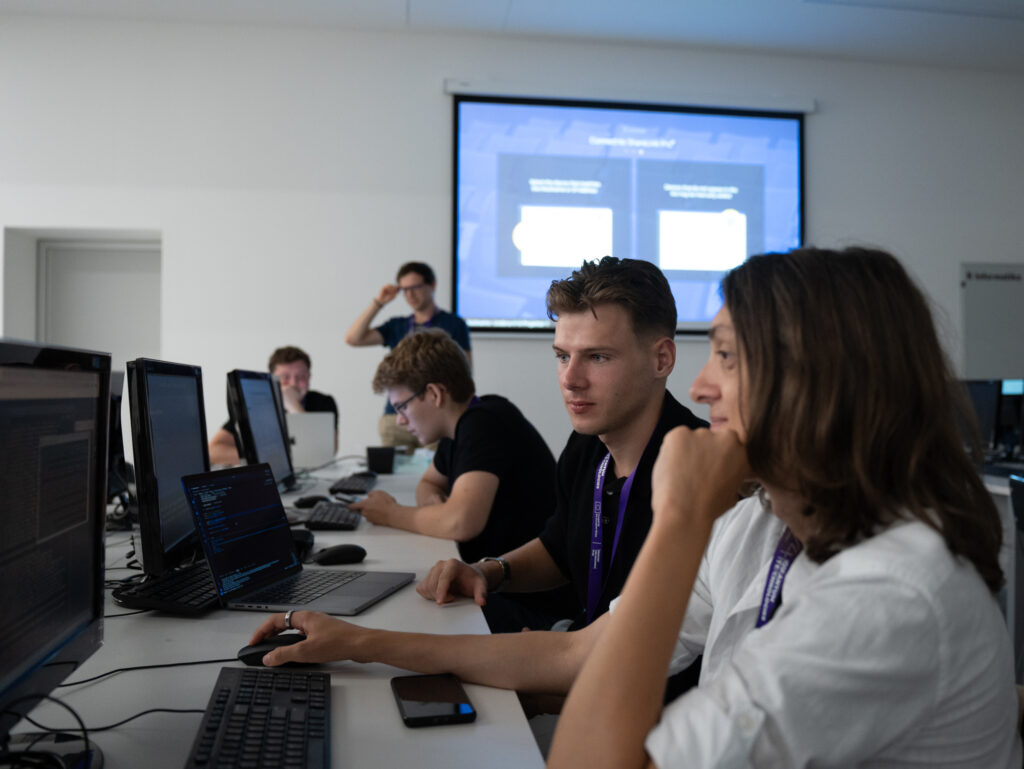
Group 4: Quantum Algorithms and Advanced Gates
Group 4 focused extensively on the study of quantum algorithms and the quantum gates used to build them. This group went beyond foundational concepts, immersing themselves in advanced quantum algorithms that are pivotal in the field, including those used in search and computation applications. The students worked through the mathematical foundations necessary for understanding quantum logic gates, such as Pauli matrices and their impact on quantum states.
The workshop provided a comprehensive understanding of how algorithms like Grover’s algorithm and Bernstein–Vazirani algorithm operate, giving students the tools to not only comprehend but also program and execute these algorithms using quantum computers. With practical sessions on programming quantum circuits and manipulating quantum gates, the group developed a firm grasp of how quantum principles are applied to solve complex problems. Through this experience, they also became familiar with essential quantum computing software, further preparing them for future exploration in the field.
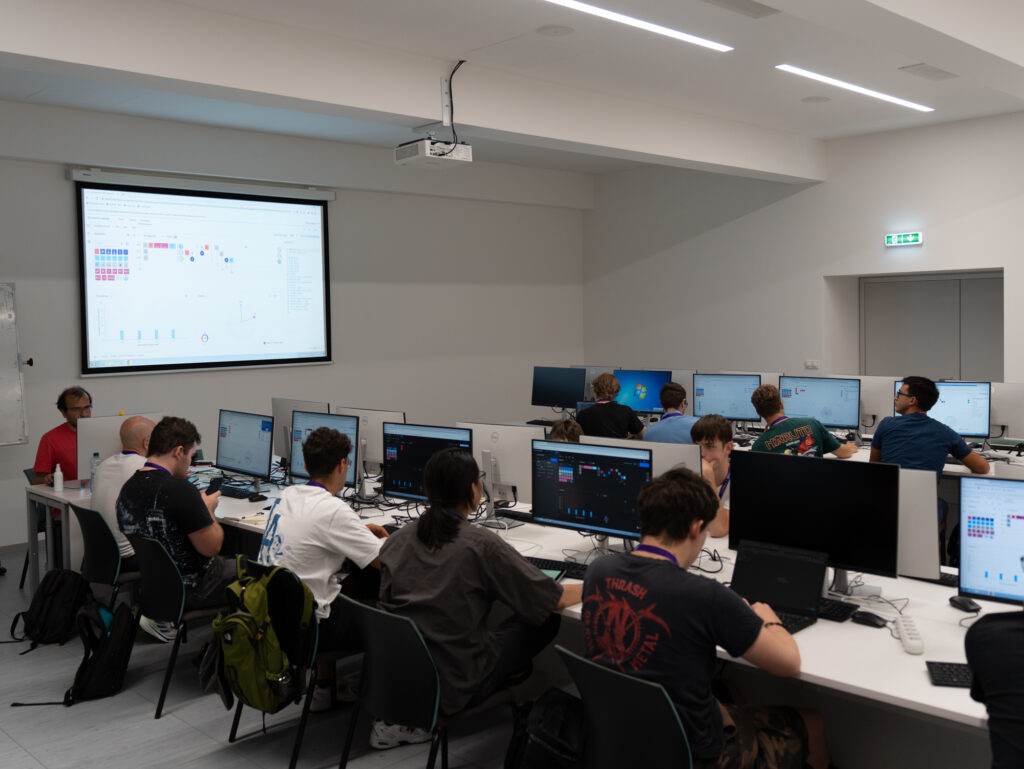
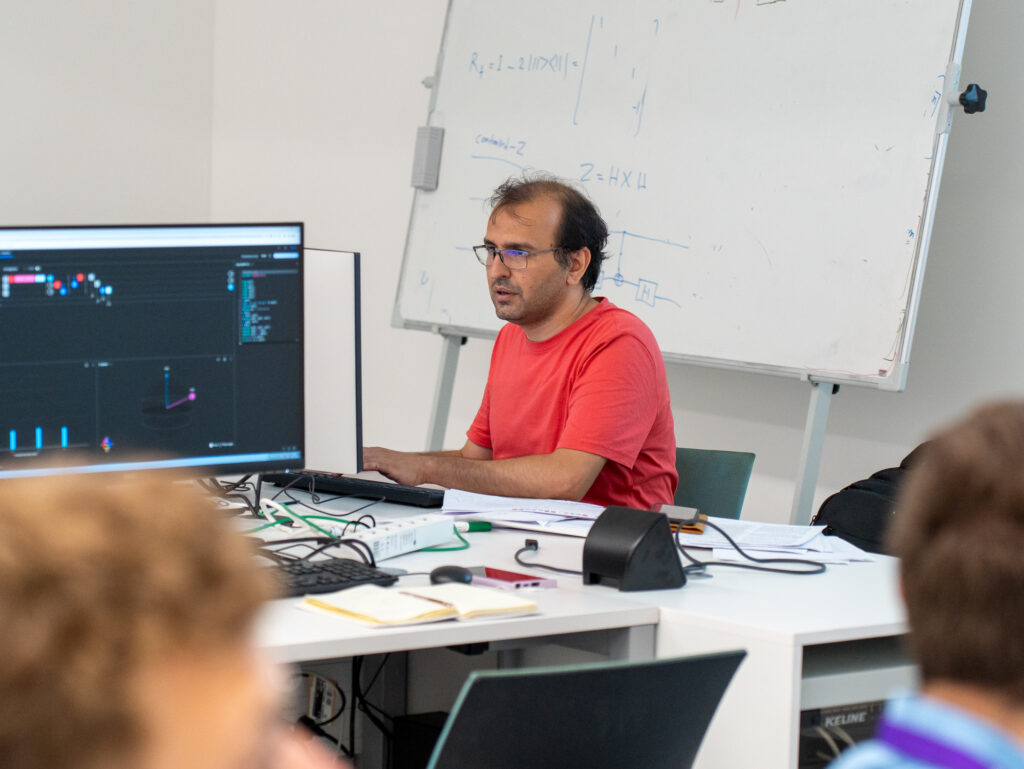
Key Takeaways
By the end of the summer school, participants had gained:
- In-depth knowledge of quantum mechanics and its practical applications in cryptography, computing, and communication.
- Hands-on experience with quantum experiments and algorithms, such as Bell tests, QKD protocols, and quantum teleportation.
- Practical skills in using quantum computers like the Gemini Mini Pro and software tools like Qiskit to run quantum circuits and explore quantum algorithms.
- A broad perspective on how quantum technologies are applied in industries, including computing, cryptography, and telecommunications.
A Week of Quantum Transformation
The Quantum Technologies Summer School 2024 was a transformative journey for all participants. By offering a unique combination of theoretical knowledge and hands-on experimentation, the program bridged the gap between classroom learning and practical application. Students were exposed to cutting-edge tools like the quED Entanglement Demonstrator and the Gemini Mini Pro computer, gaining firsthand experience in conducting real-world quantum experiments. Whether learning about quantum entanglement in Bell’s experiments or navigating the complexities of quantum computing, each participant left with a richer understanding of quantum technology’s potential.
The involvement of industry professionals from IBM and Aricoma not only highlighted the real-world applications of quantum technologies but also gave participants a glimpse into the future of the field, where quantum computing will play a critical role in industries ranging from cryptography to finance. Through workshops that encouraged active participation and experimentation, students left with practical skills that will serve as a foundation for future research and career development.
The summer school’s success lies in its ability to connect theoretical knowledge with hands-on practice, helping participants see the tangible applications of what is often considered an abstract and complex field. From exploring quantum communication protocols to implementing quantum algorithms, the students are now better prepared to contribute to the quantum revolution. As they move forward, they carry with them not only new skills but also a deeper appreciation for the quantum world, its mysteries, and its immense potential to reshape the future of technology.
At the conclusion of the summer school, a heartfelt thank you goes out to all the speakers and tutors, from both academia and industry, who generously donated their time and expertise. Their dedication made this event an unforgettable and transformative experience for all participants.
Gallery
